Methodology
At the Child Welfare Trust, we specialize in early intervention and education for children with disabilities. We focus on assessing the unique needs of each child and providing them with personalized support.
In our approach, involving parents in the intervention process is key, and we create individual education plans to ensure the best outcomes for each child. When needed, we conduct home visits to reach children who may otherwise miss out on our support.
Our primary mission is to seamlessly integrate these students into mainstream society through excursions and social activities. We also closely monitor their progress and implement meditation techniques to foster behavioral improvement.
In essence, at Child Welfare Trust, we are dedicated to providing comprehensive assistance and inclusion opportunities for children with disabilities.
1. Early Intervention
‘At-risk’ infants are brought to the Child Welfare Trust for a comprehensive evaluation. If any developmental concerns or disabilities are identified, tailored intervention strategies are promptly implemented based on the specific diagnosis. In cases where no abnormalities are detected, the child continues to be closely monitored until the age of 6 to identify potential learning and behavioral challenges. Dhanvantri School is well-equipped to offer specialized education and support to children with various conditions such as hearing impairment, intellectual impairments, and cerebral palsy. Early intervention is key in these situations, and it involves a series of assessments:
- Assessment of developmental milestones and motor skills for delays
- Neuro-developmental assessment
- Pediatric audiometry tests
- Behavior observation audiometry tests
- Objective audiometry tests


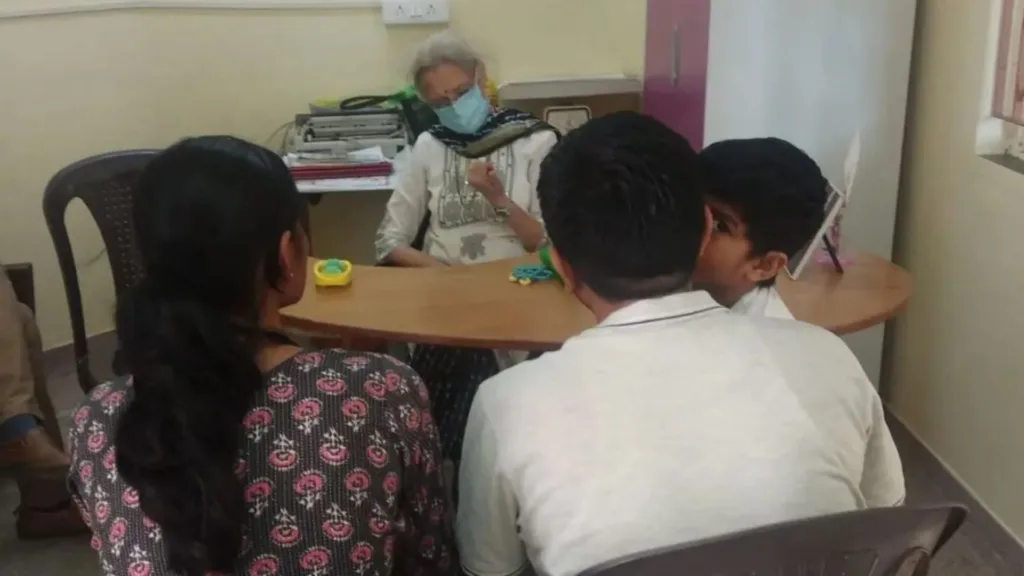

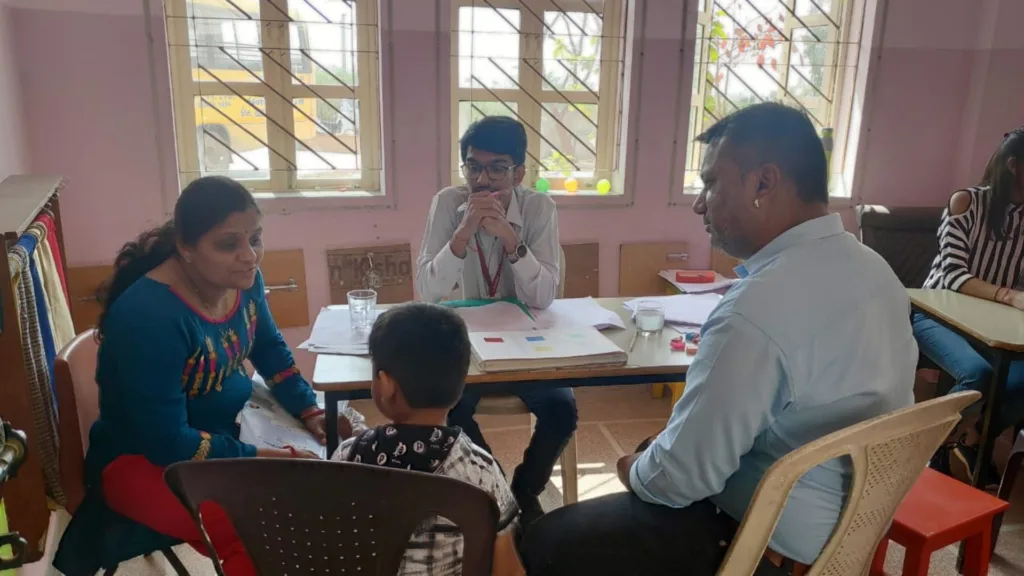
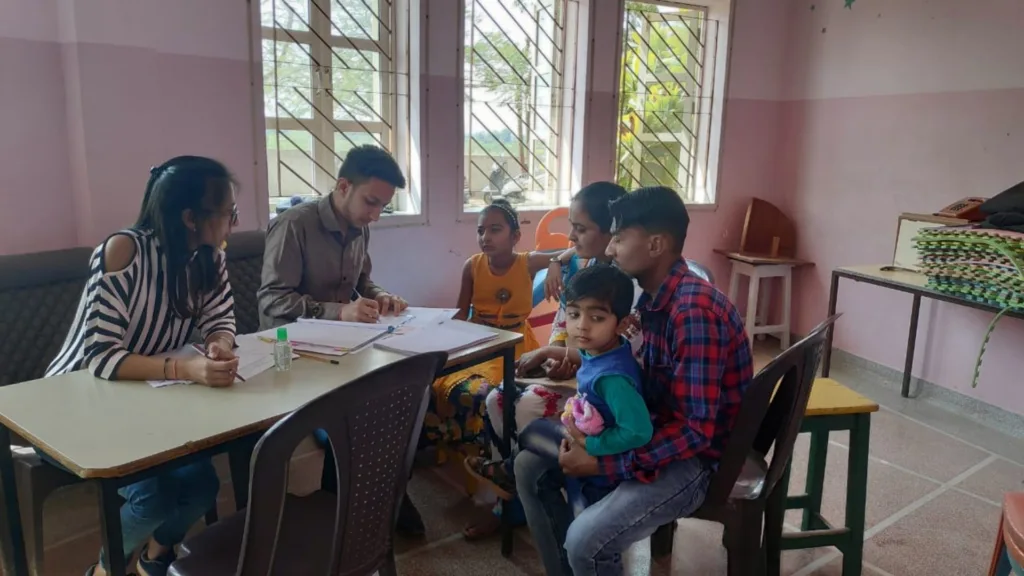
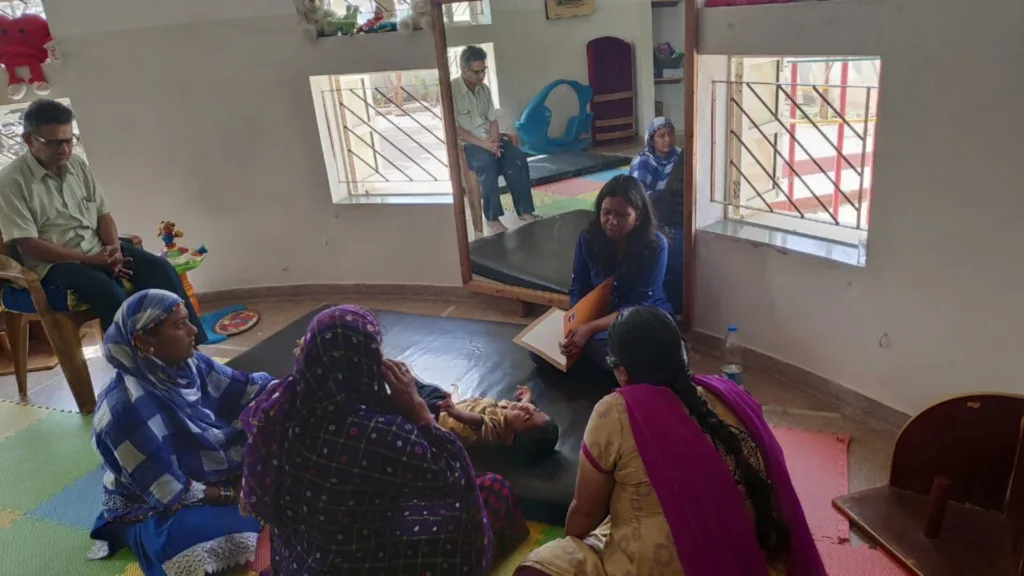
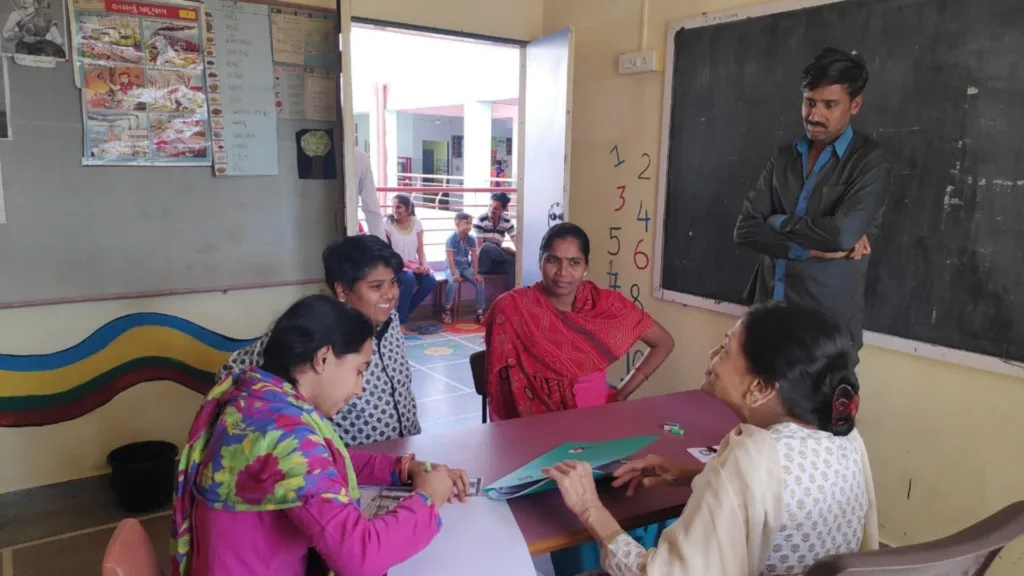


2. Counseling Parents and Family Members
Parents often experience profound distress upon receiving the initial diagnosis of their child’s disability, often entering a phase of denial where they struggle to accept this reality. Moreover, the pervasive stigma associated with disabilities in India further complicates matters, making it exceptionally challenging for both parents and their children to confront and address their concerns constructively.
At the Child Welfare Trust, our dedicated staff invests a significant amount of time in counseling parents and family members, guiding them on how to meet their child’s specific needs. Through these counseling sessions, both the child and parents gradually come to terms with the disability, fostering a shared commitment to the intervention process.
The involvement of parents and extended family members in our intervention strategies is a pivotal element that profoundly influences the child’s progress. We create individualized educational plans tailored to each child’s disability severity, which are openly discussed with the parents. Additionally, parents are entrusted with daily assignments to complete with their children.
These activities not only build a robust support network for the child but also equip the parent to wholeheartedly embrace and support their child’s unique journey with a disability.

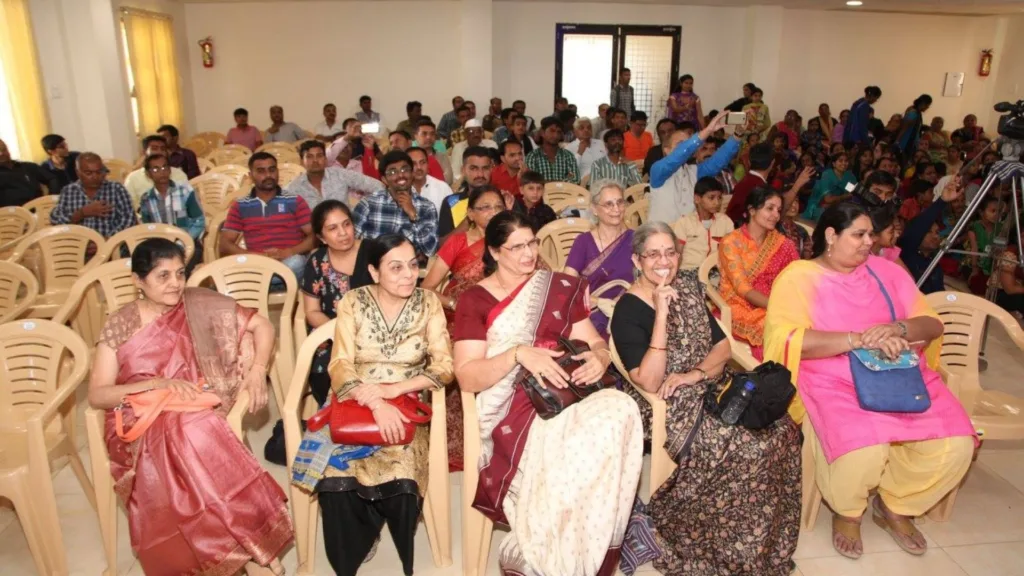
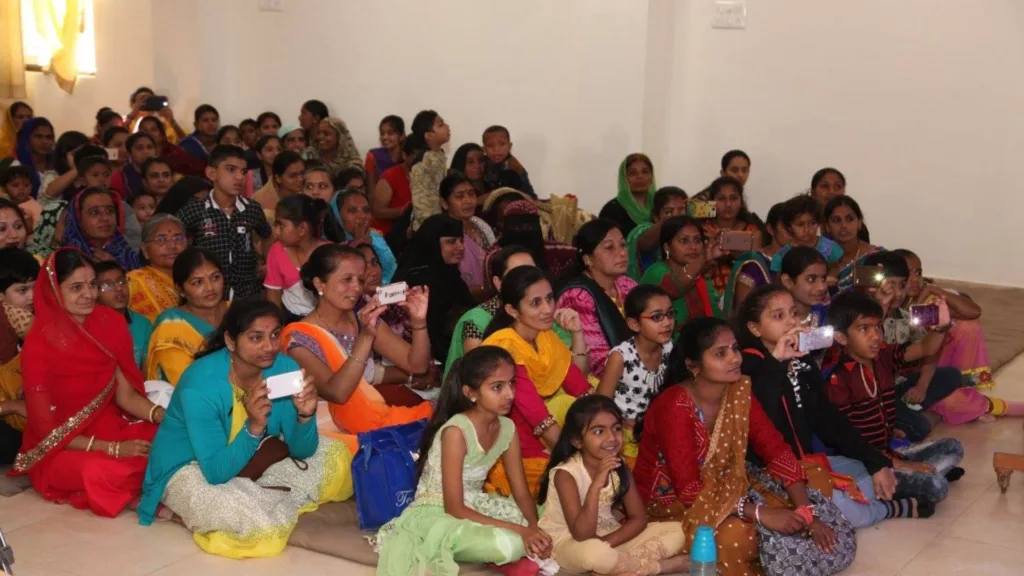
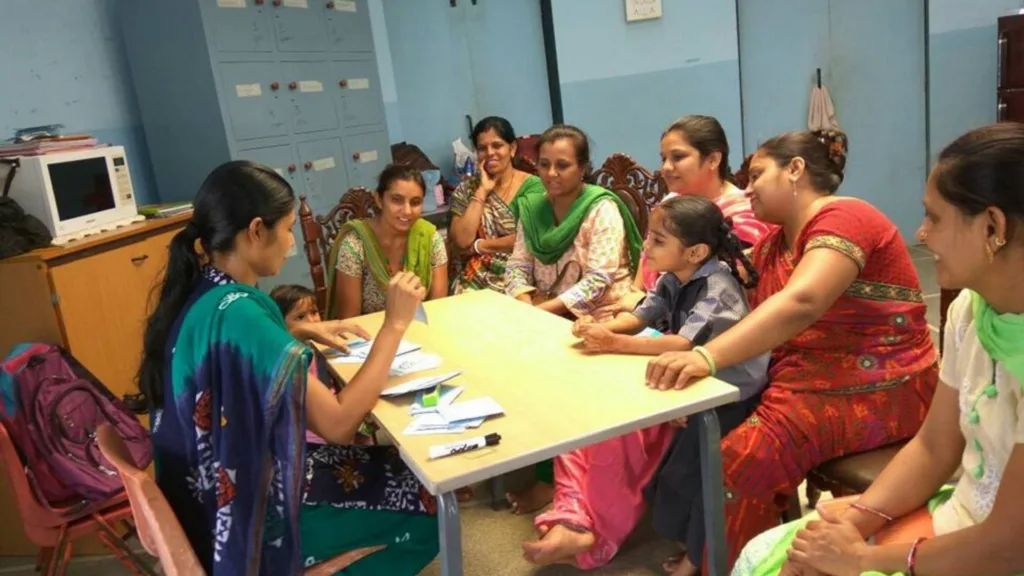
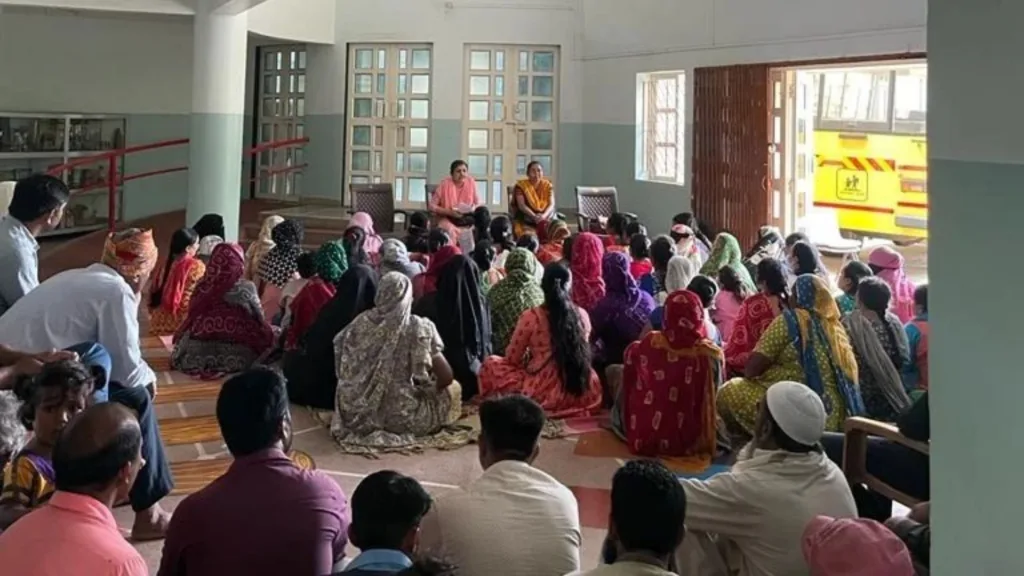


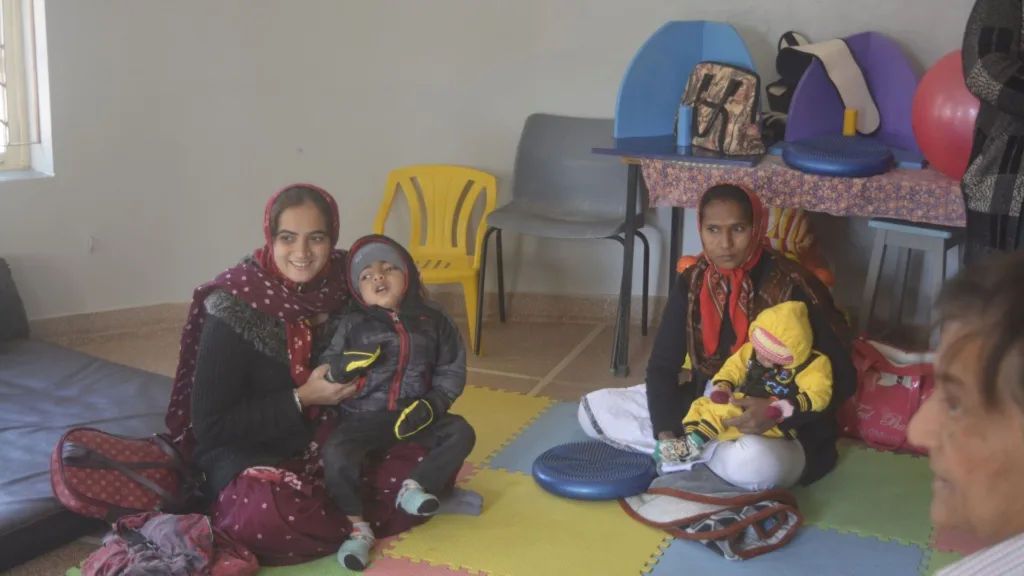
3. Home Visits
Occasionally, parents decline to bring their children to the school for assessments, even when there is clear evidence of a disability. In such situations, the dedicated team at Dhanvantri School, along with parents of children already attending the school, undertake home visits to evaluate the child’s disability and persuade the parents about the necessity of special education. Typically, multiple home visits are necessary before parents ultimately consent to enroll their children in the school.

4. Therapeutic Intervention Strategies
Distinct therapeutic intervention strategies are implemented for each of the three disability areas addressed by the Child Welfare Trust, which include:
1. Hearing Impairment:
- Auditory training and conditioning
- Facial orientation and Oro-motor exercises
- Sensitization to Tactile Stimulation
- Hearing aid management training for both mother and child
- Speech and language training
2. Intellectual Disability:
- Speech and language training
- Classroom learning support
- Behavioral modifications
- Social skills training
- Training in Activities of Daily Living (ADL) skills
3. Cerebral Palsy:
- Physiotherapy and Oro-motor exercises
- Hydrotherapy in Summer
- Occupational therapy
- Sensory Motor
- Integration
Appliances training (calipers and splints) - Sensory Motor
- Integration kits, including footwear, walkers, wheelchairs, sitting aids, toilet training aids, and feeding appliances.

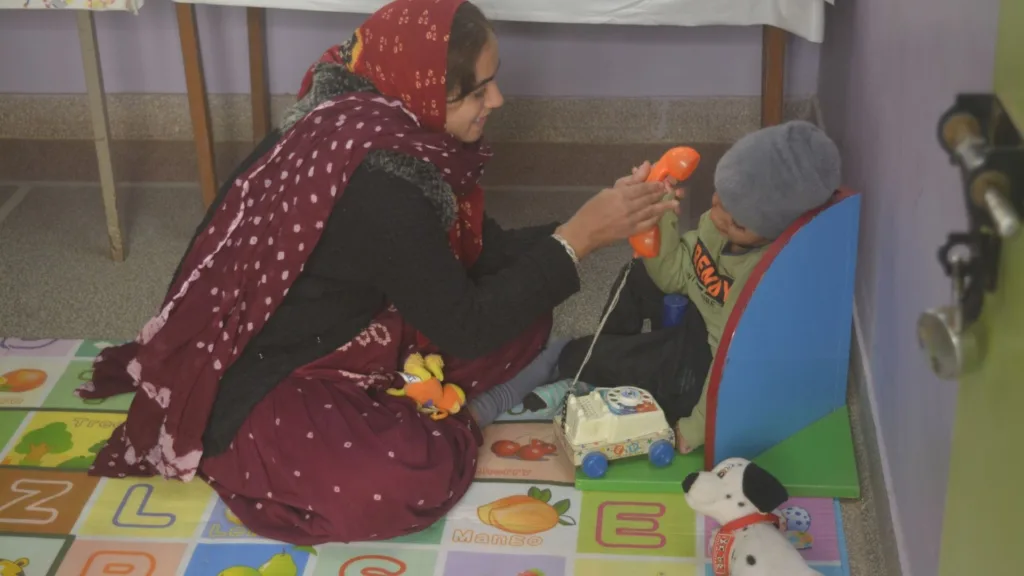
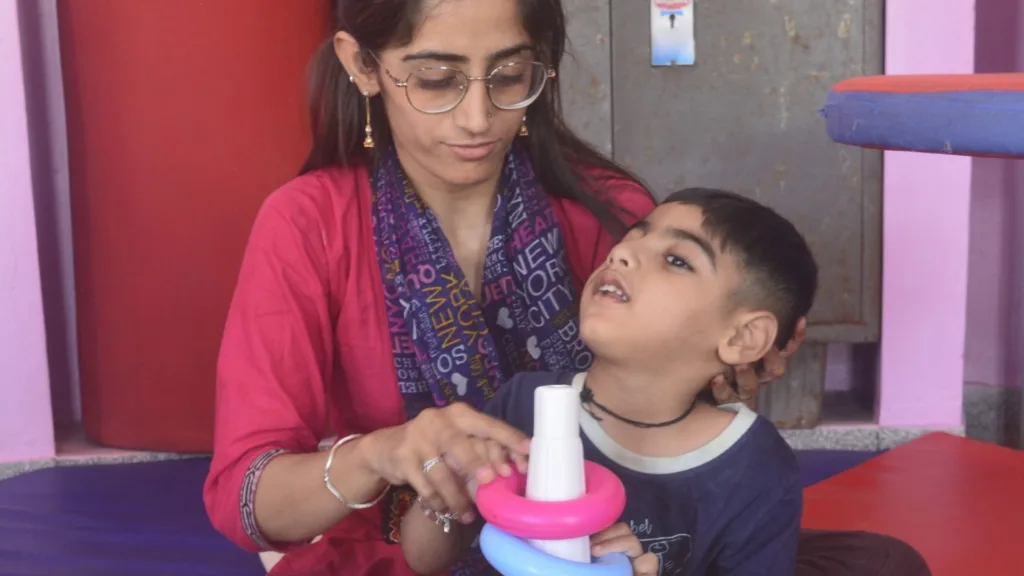
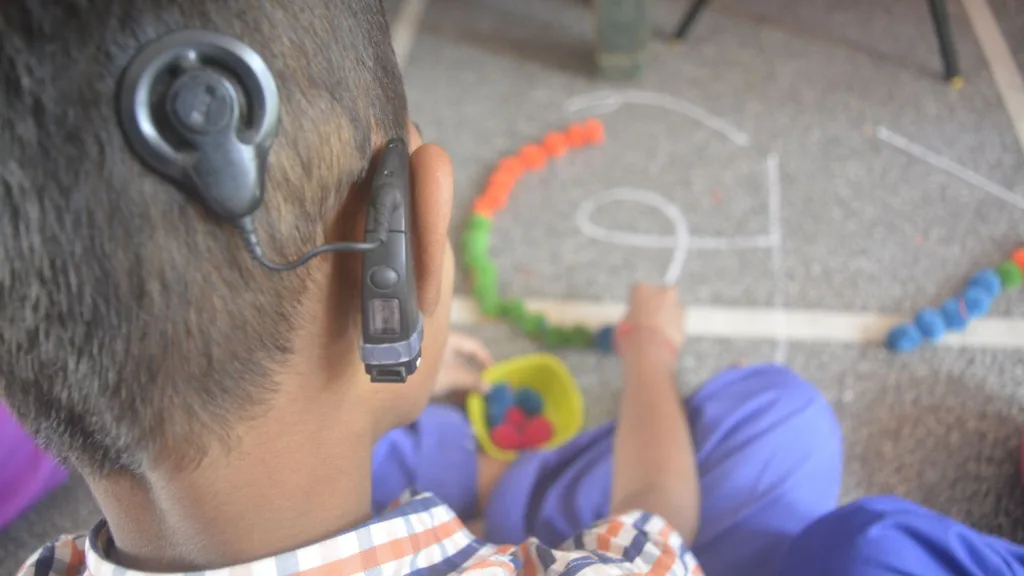
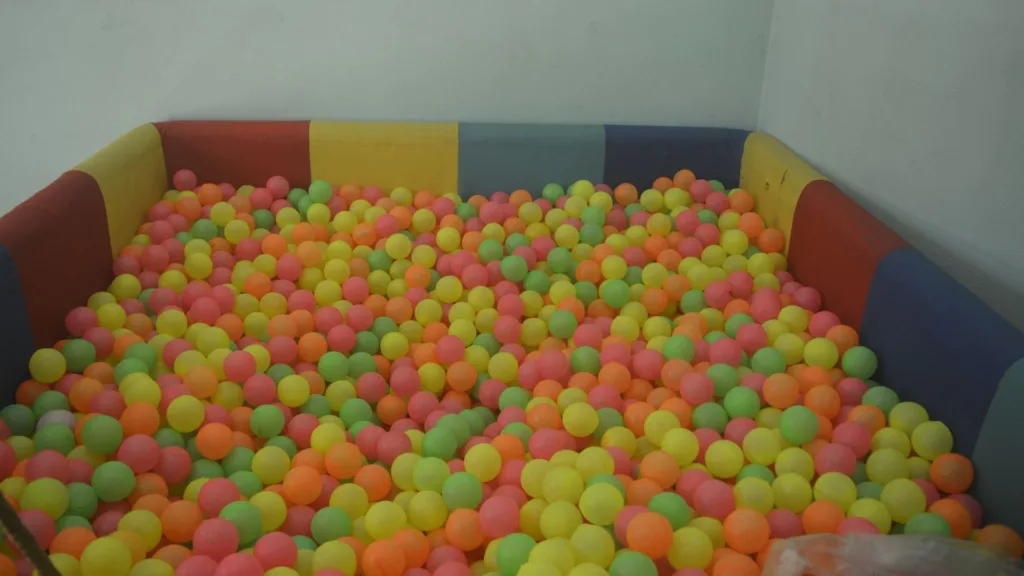
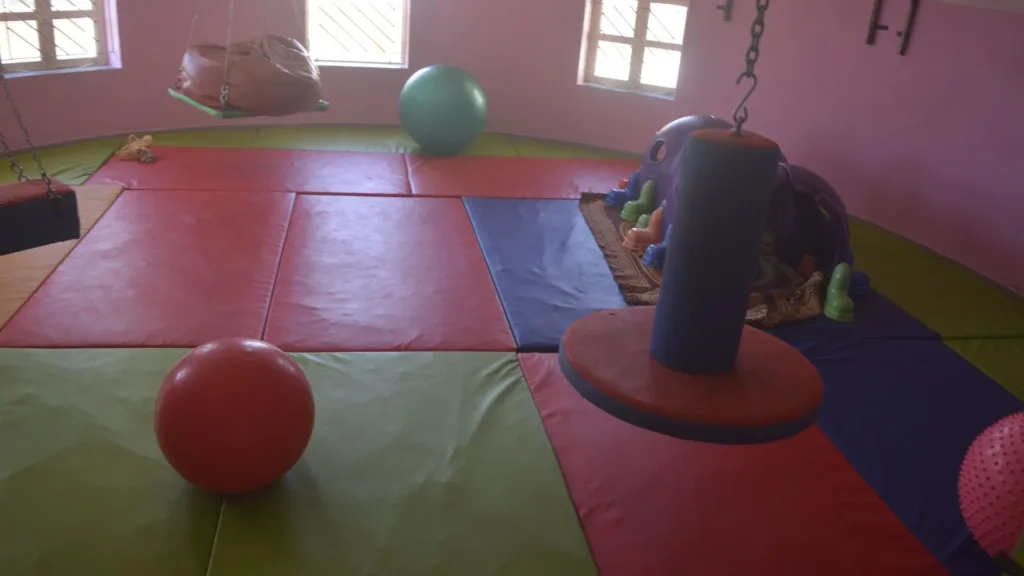
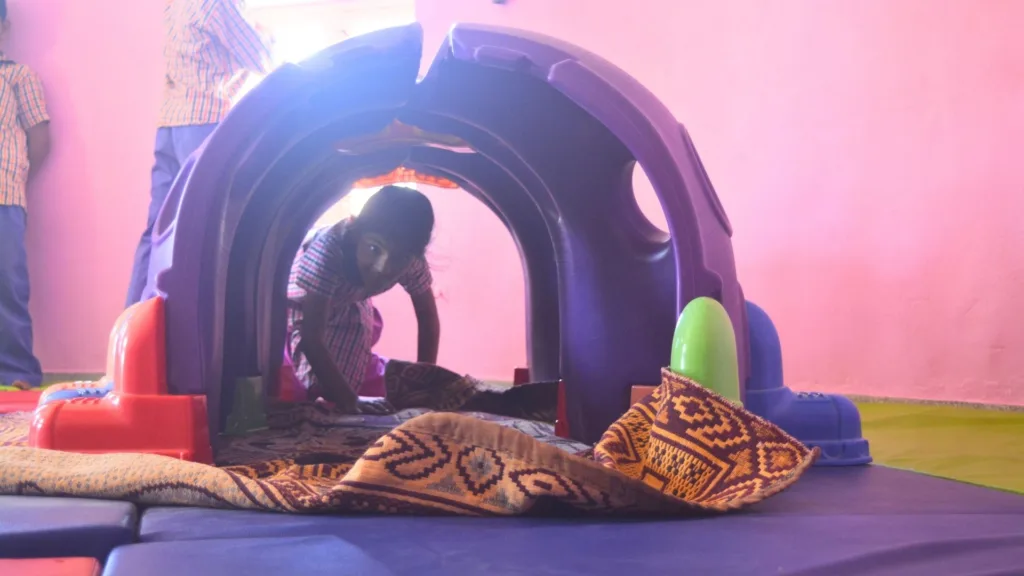
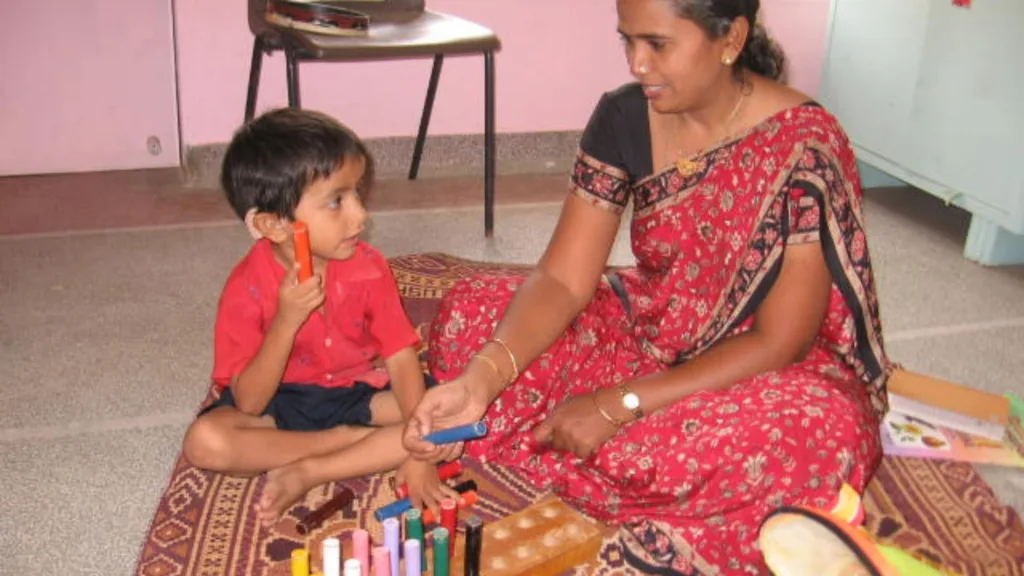
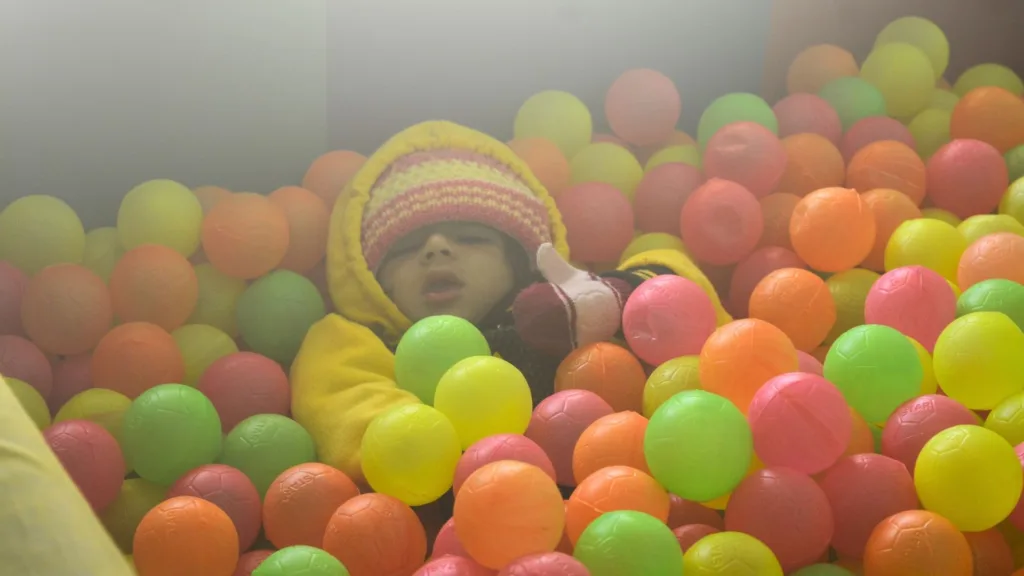


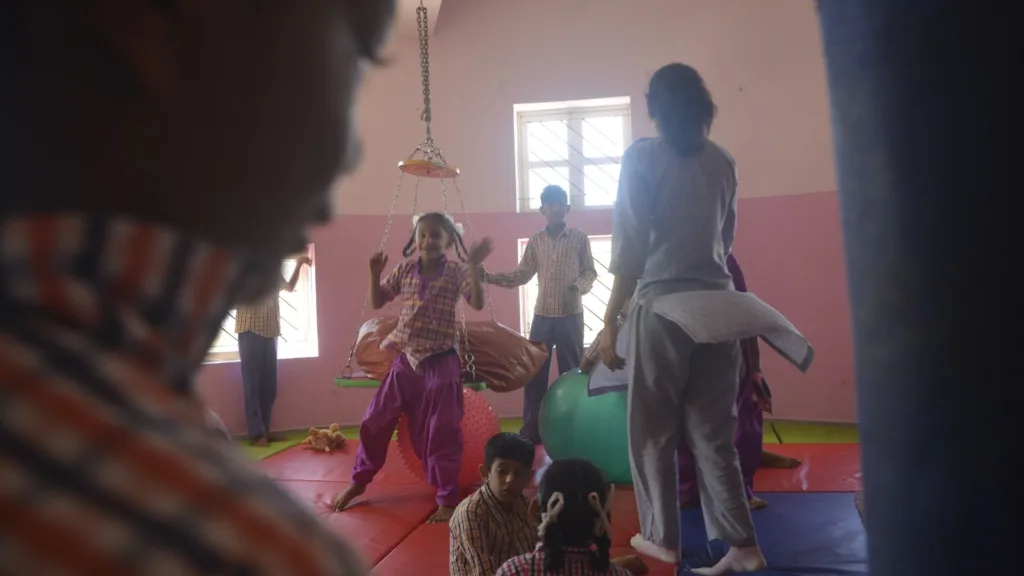
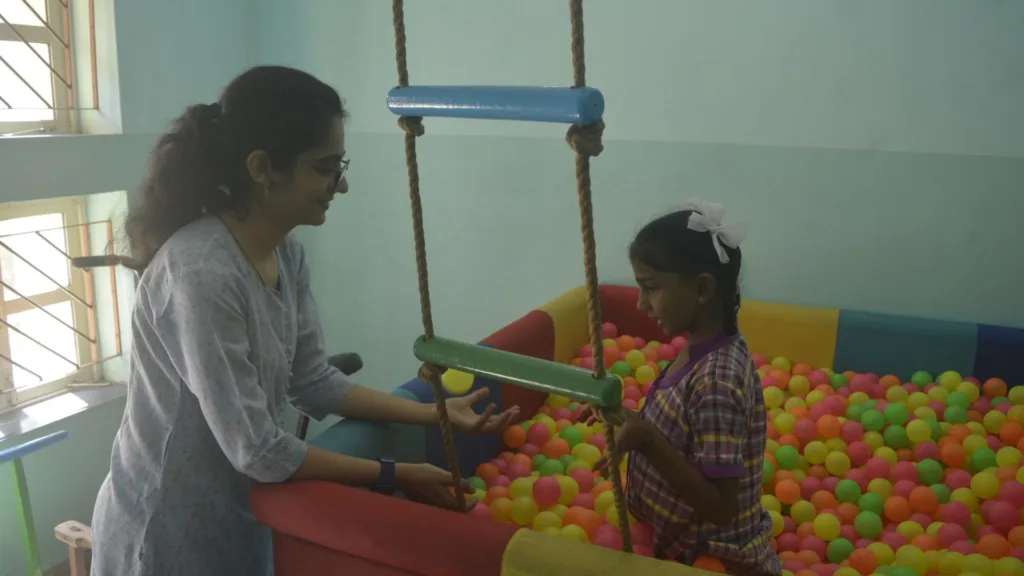
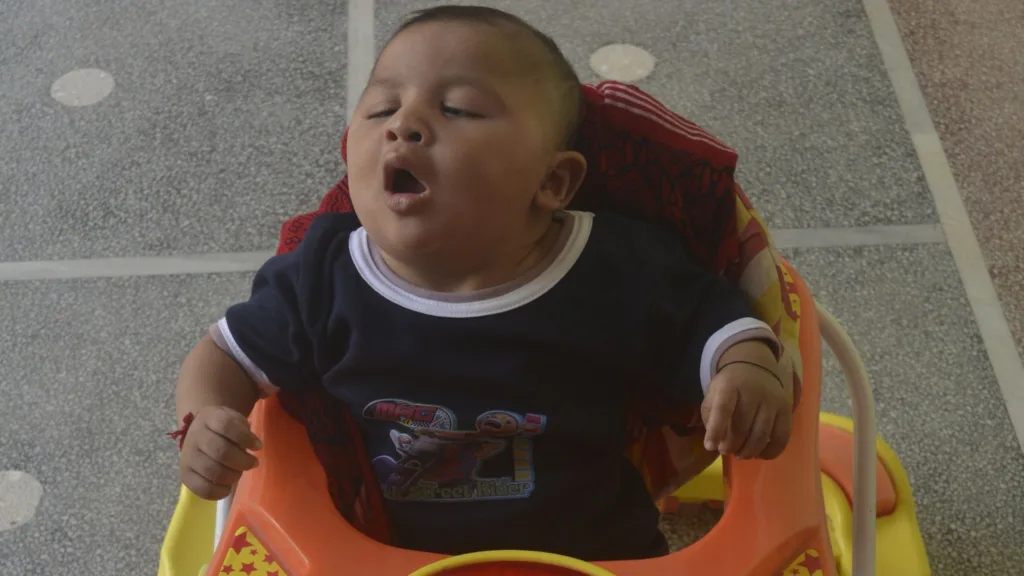
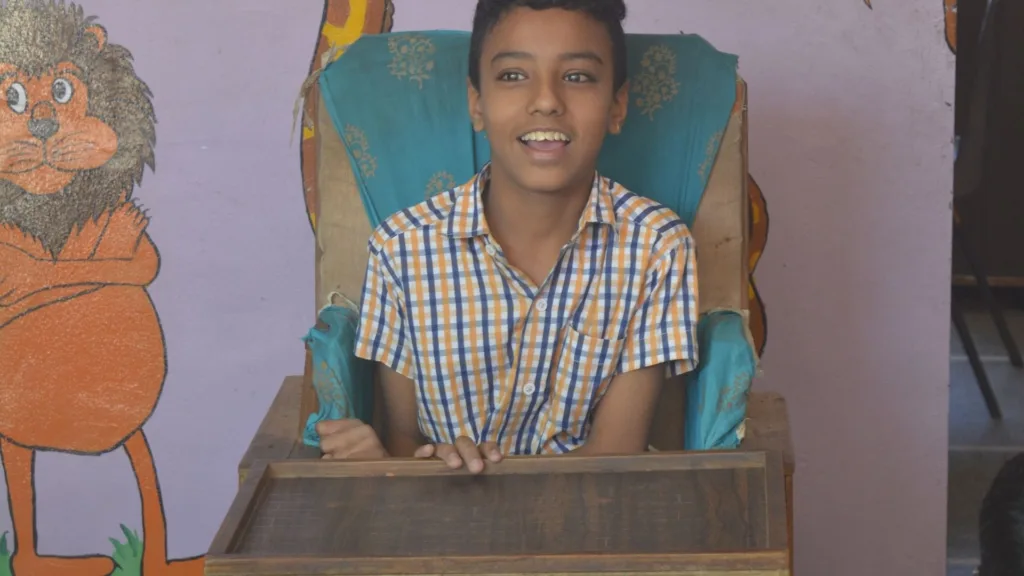
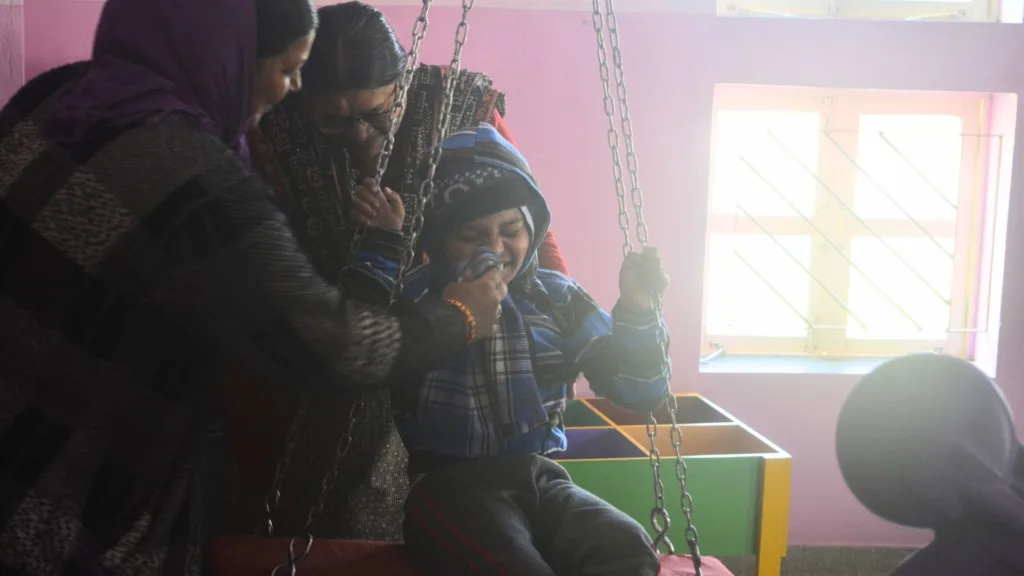
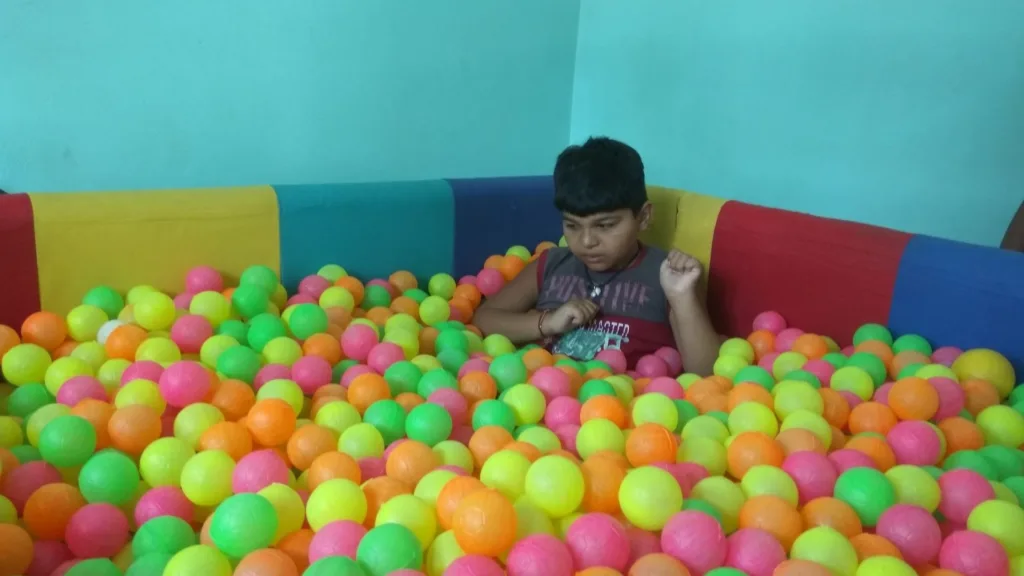

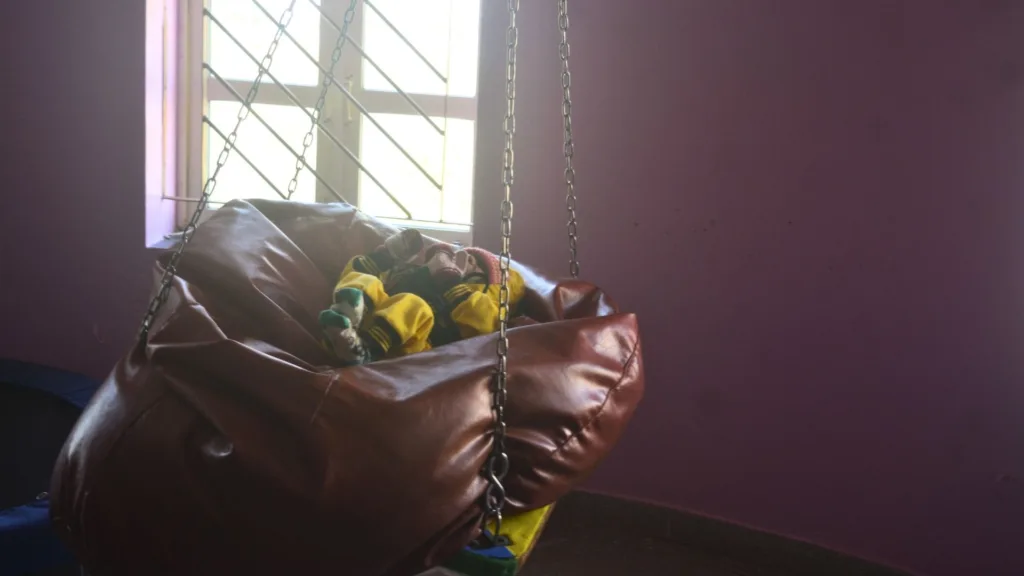
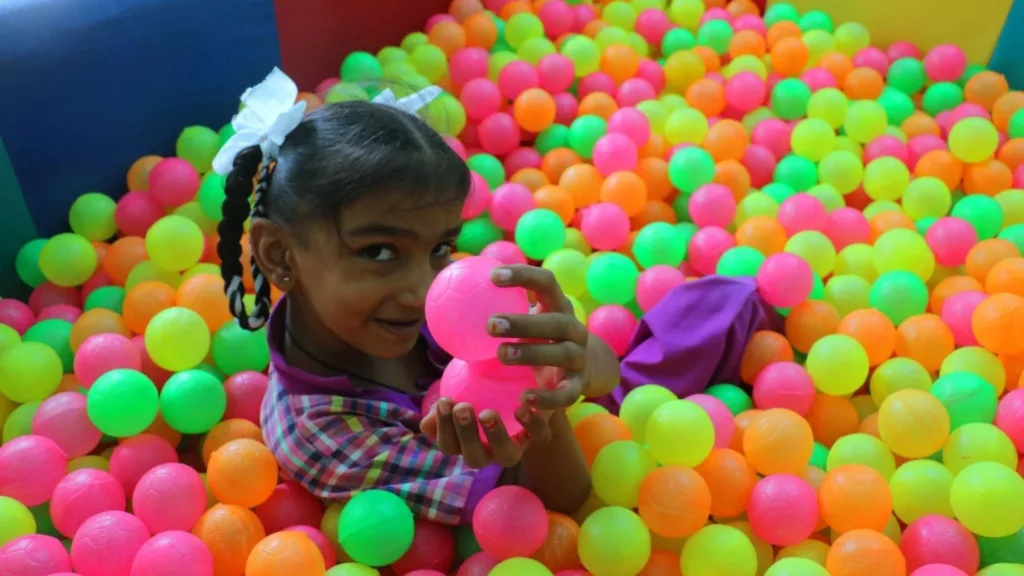
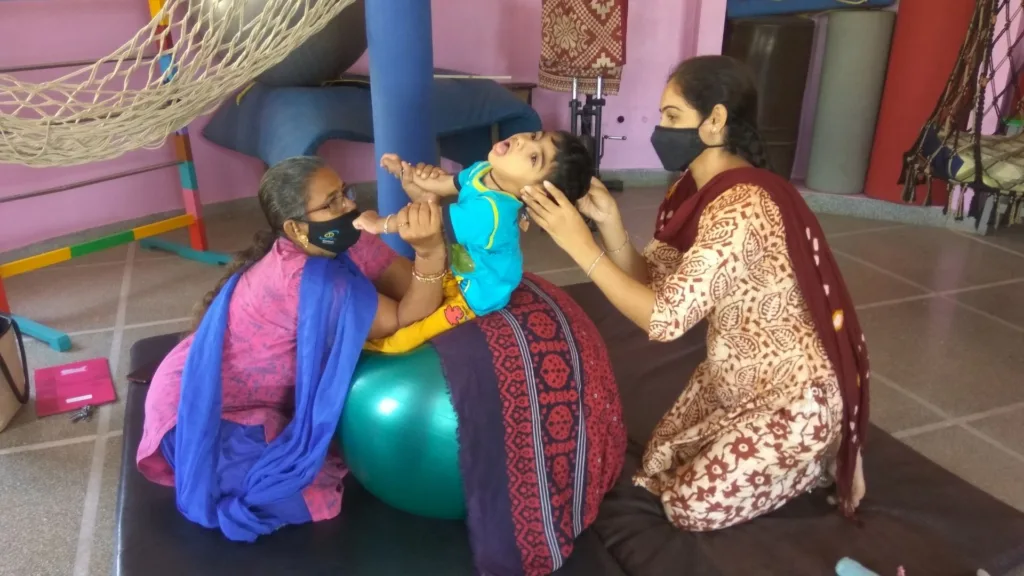

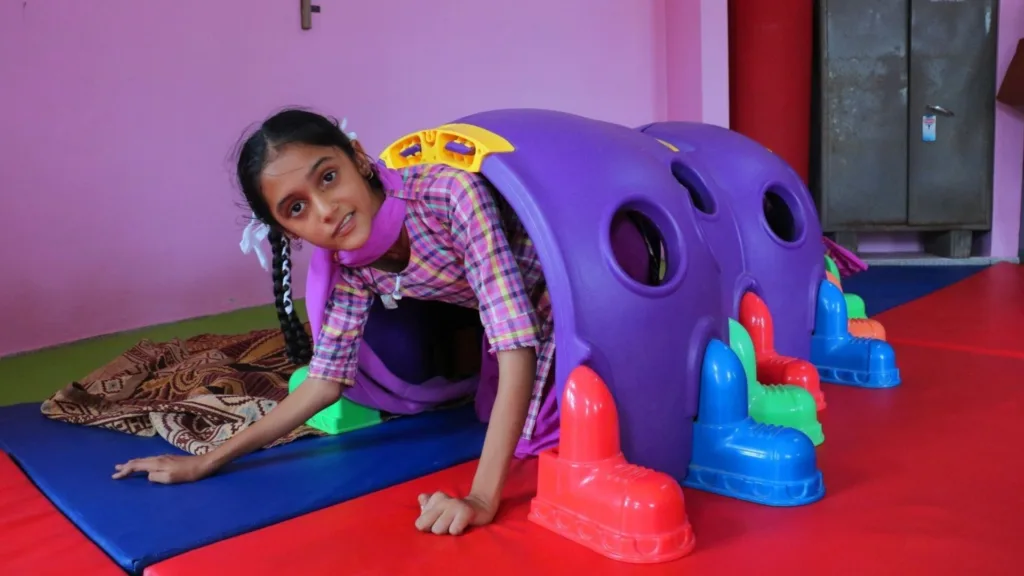
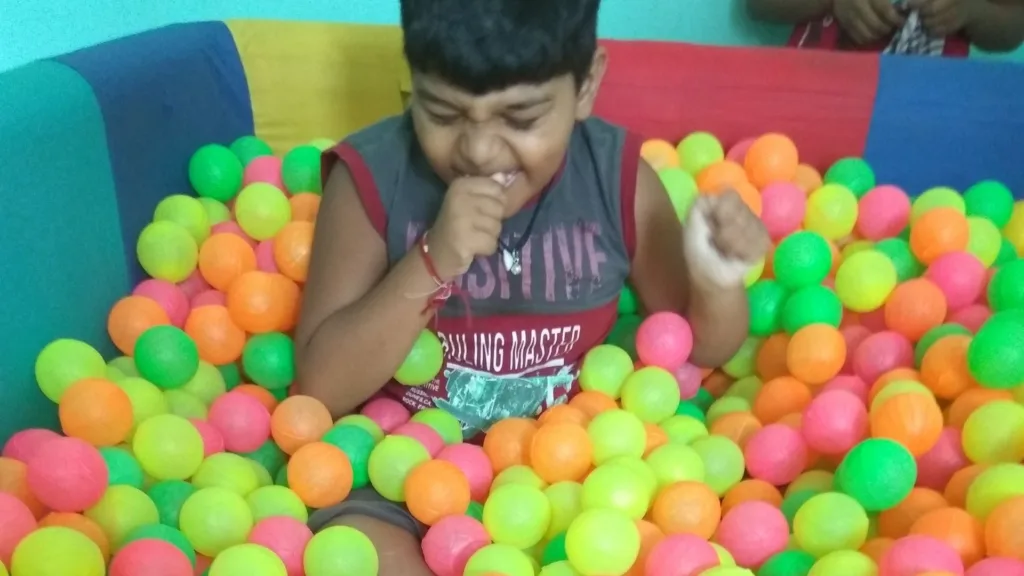
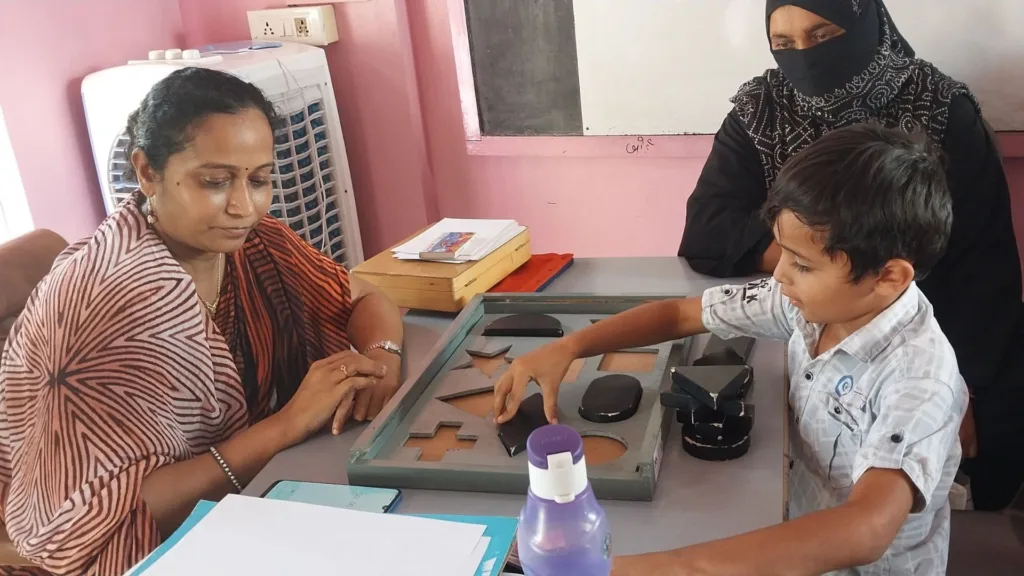
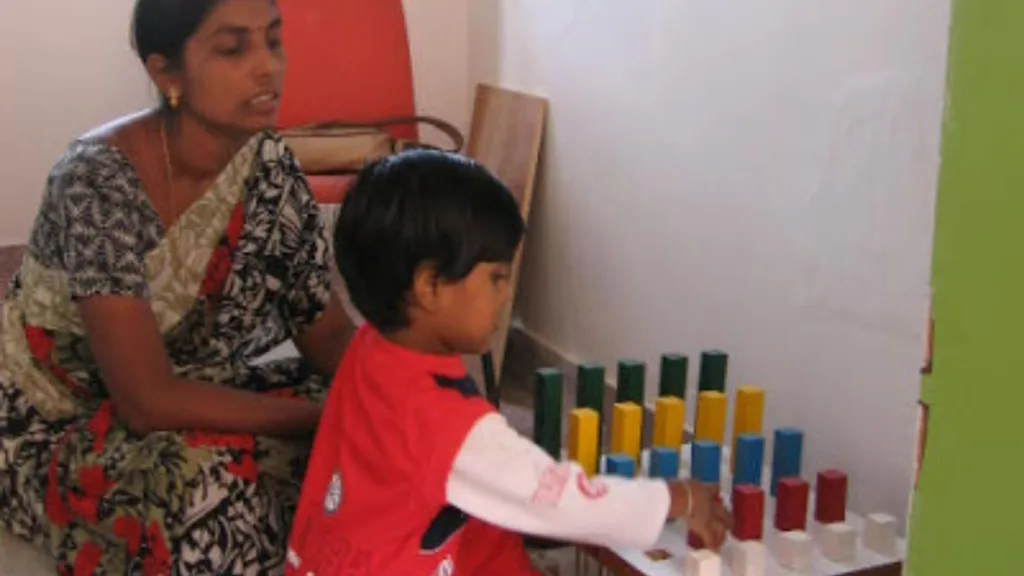


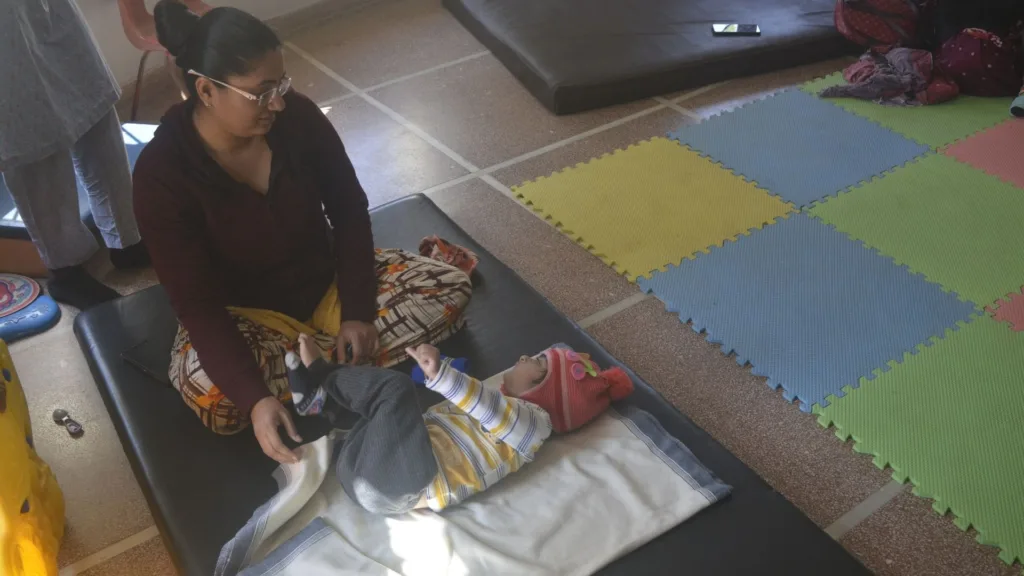

5. Art and Craft
The Child Welfare Trust employs the medium of art and craft as a therapeutic intervention for children with disabilities. Within the curriculum, we integrate various art and craft sessions, including embroidery, sewing, coloring, clay modeling, painting, crafting costume jewelry, stitching, mud work, and mirror work.
These activities serve to enhance fine motor skills and hand-eye coordination in the children while nurturing their creative talents.
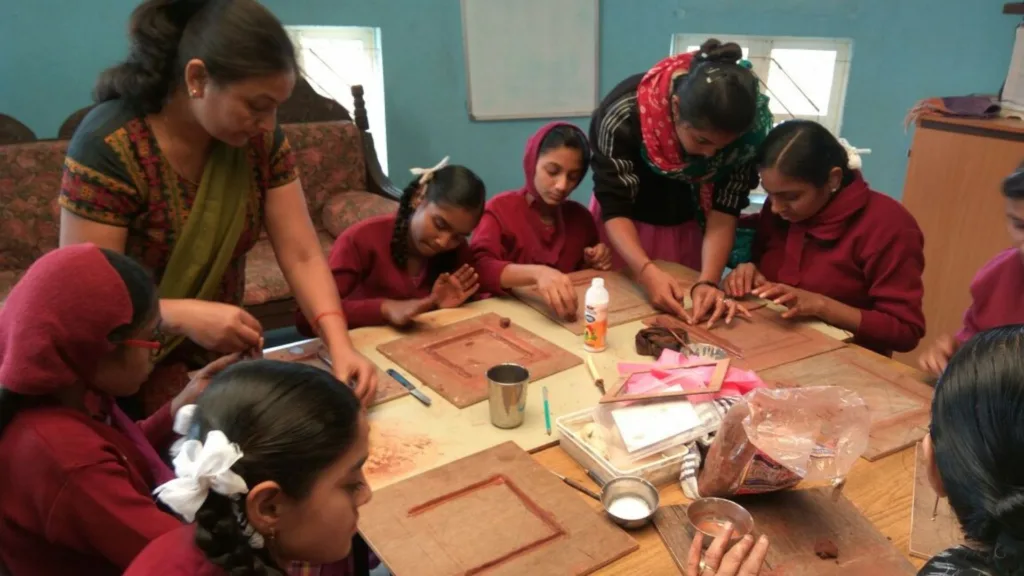
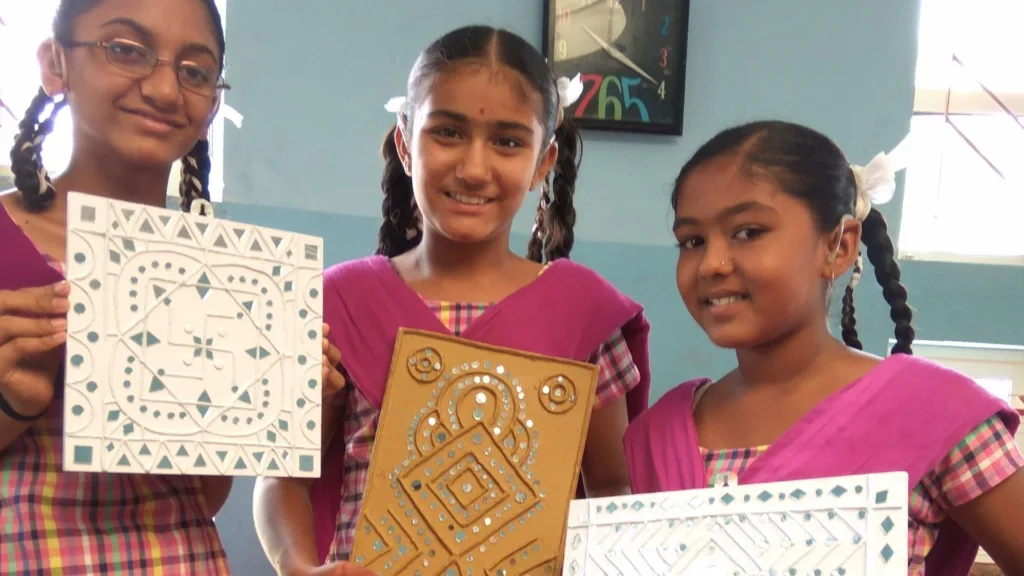
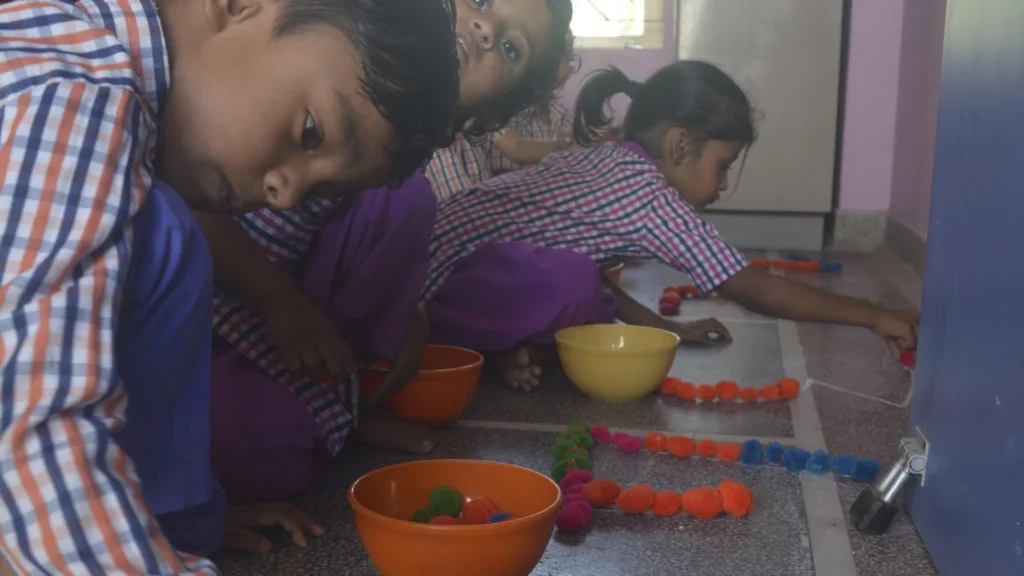
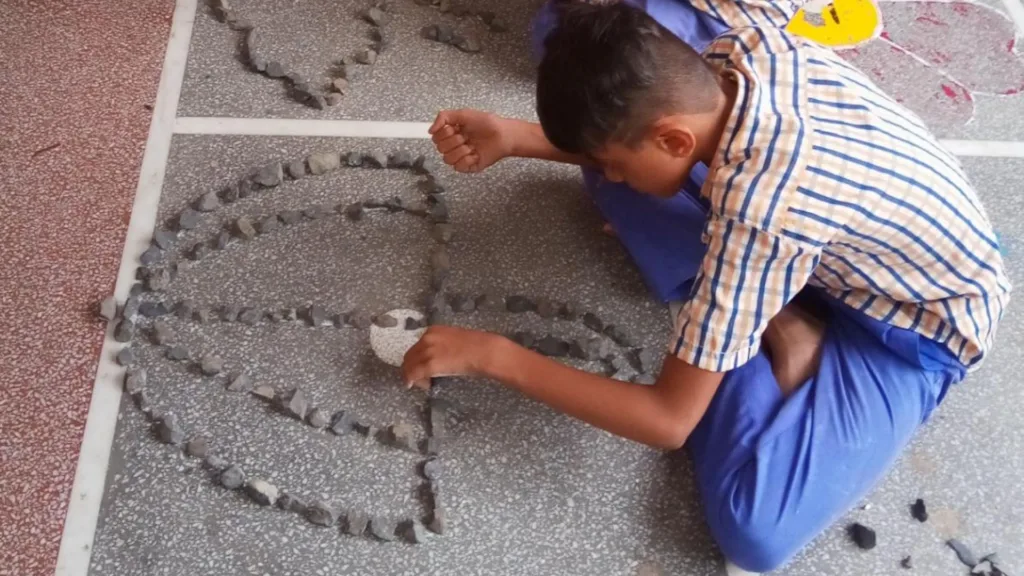

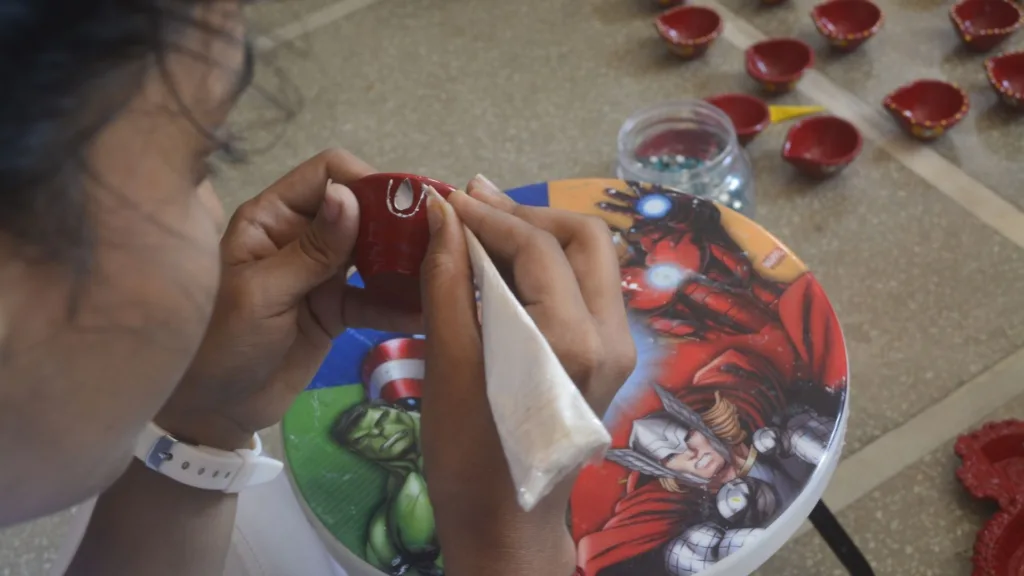


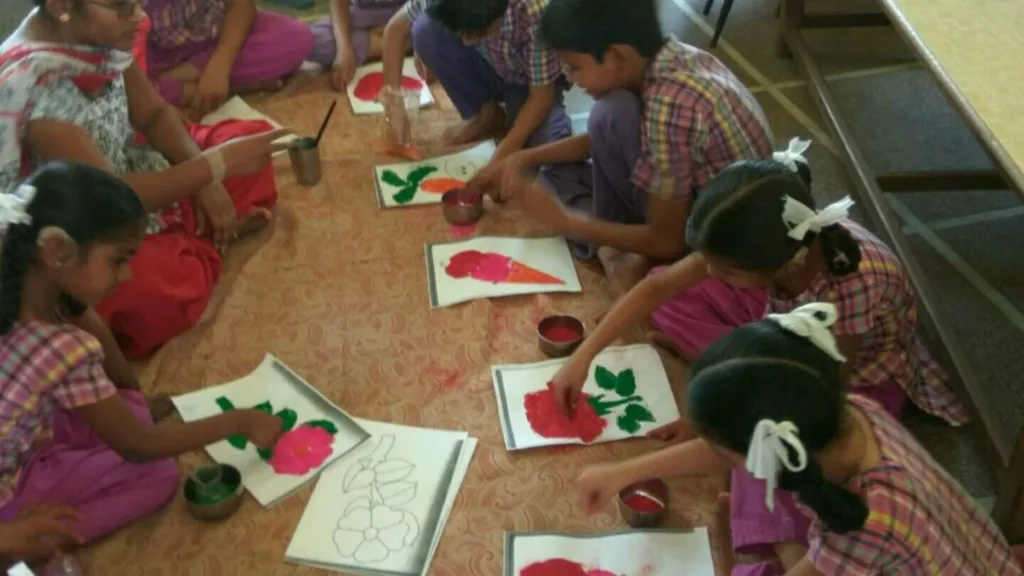
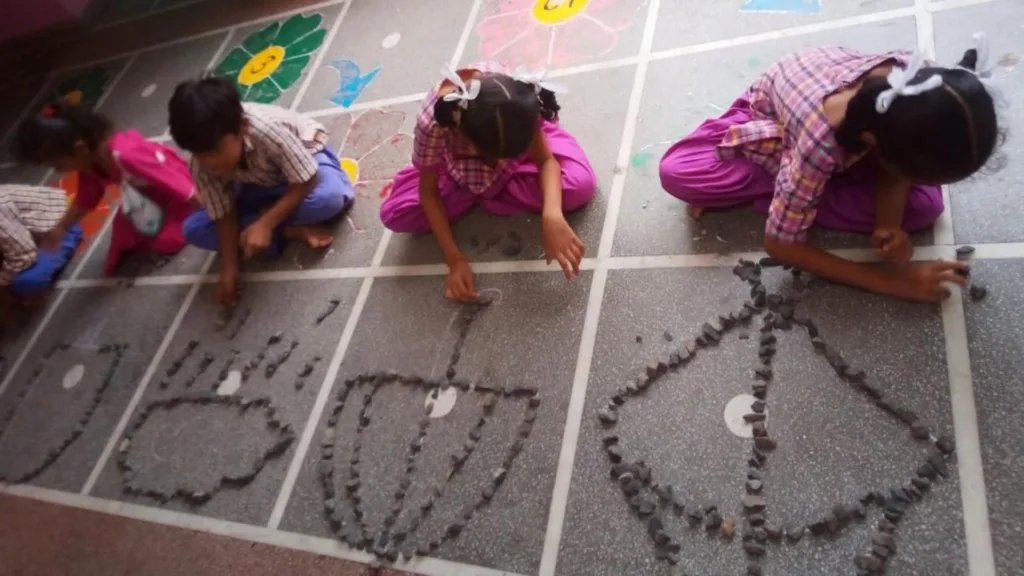
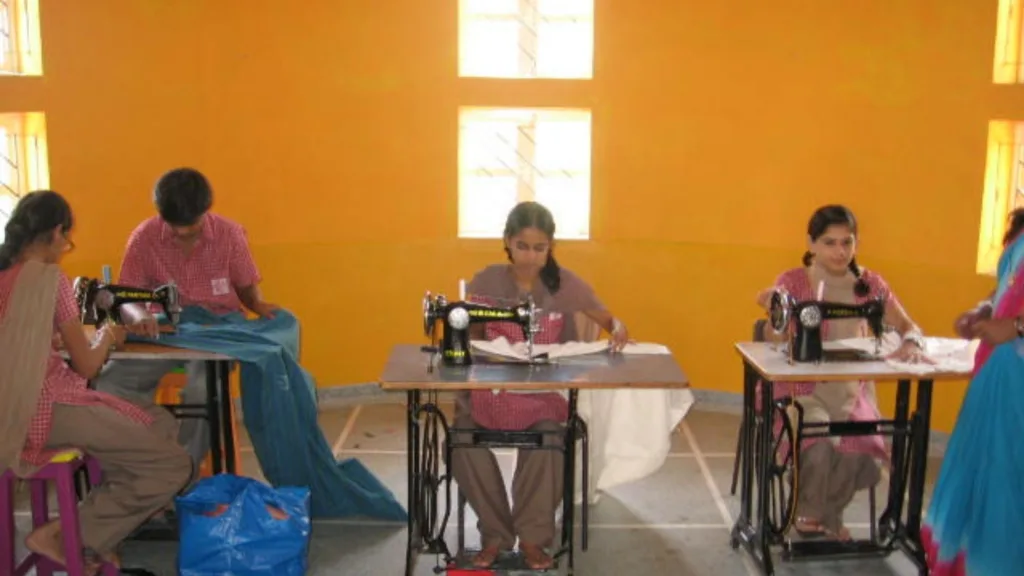

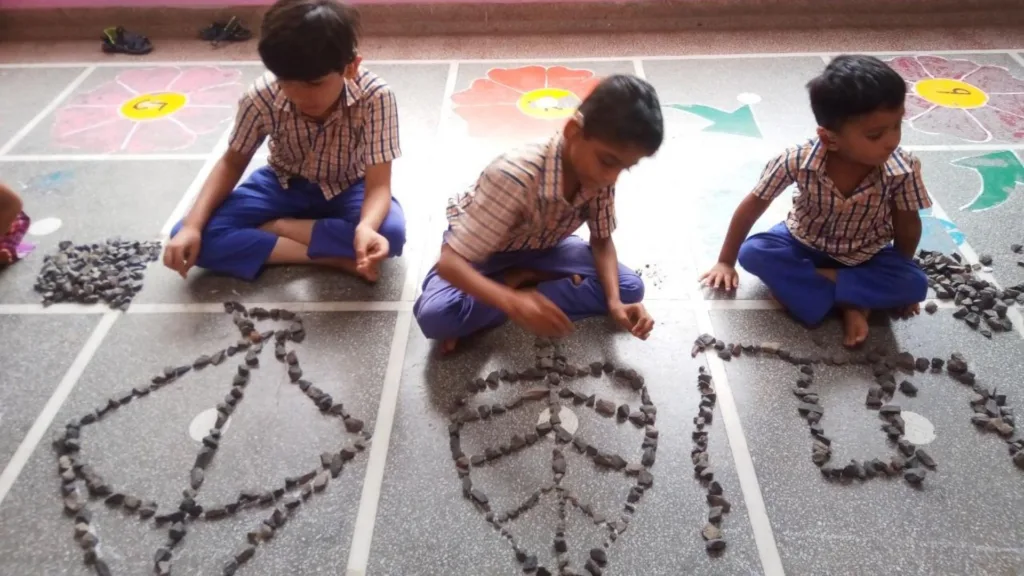
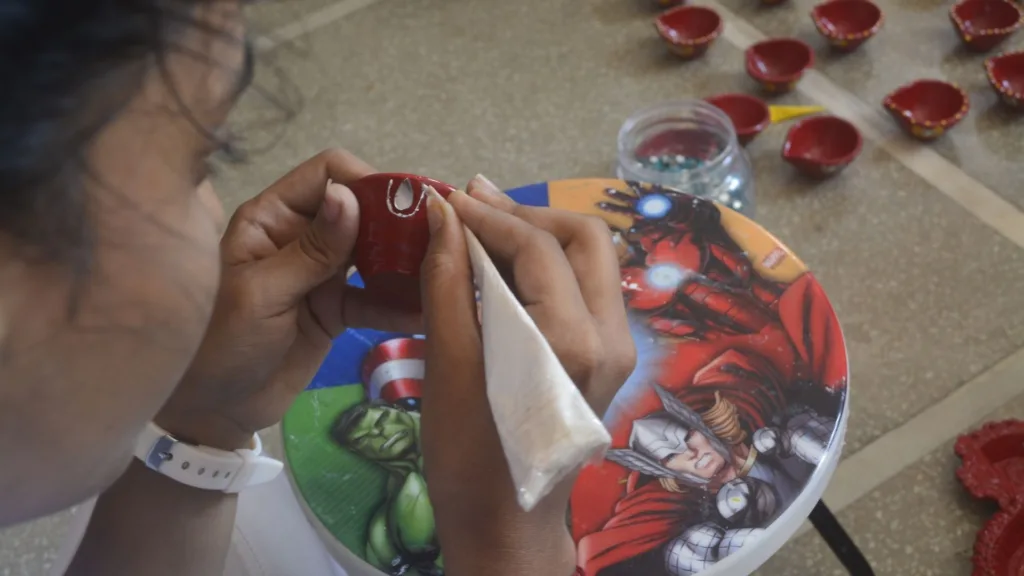
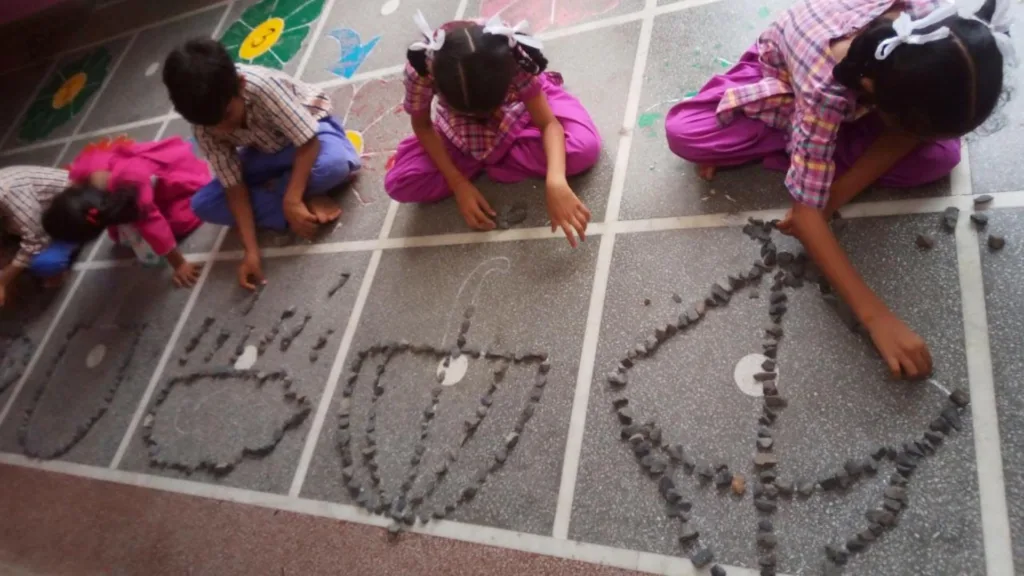
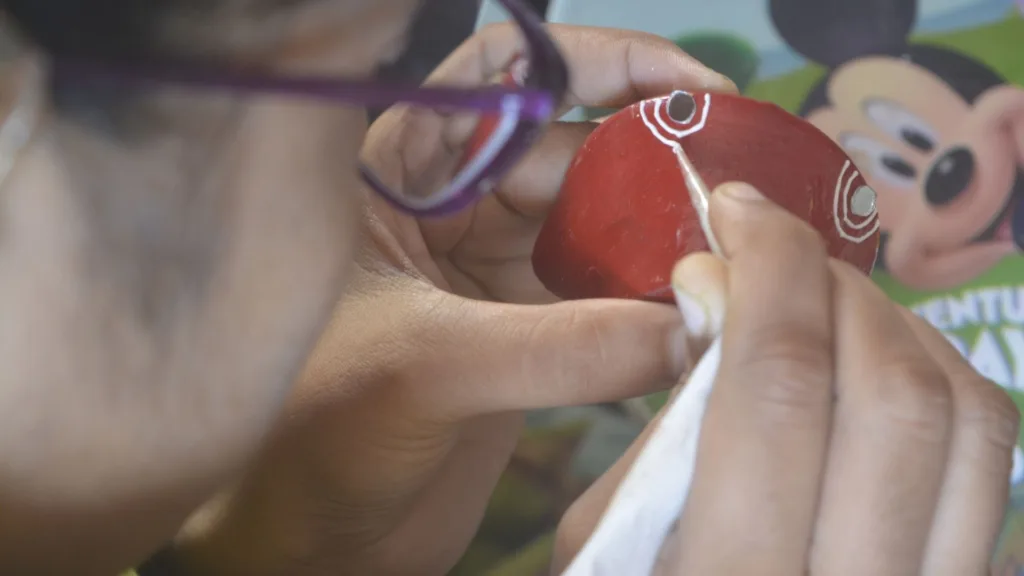
6. Social Integration and Mainstream School Inclusion
Child Welfare Trust’s core mission revolves around the integration of special students into mainstream society and equipping them with the skills to lead independent lives upon completing their education at our institution. To foster social adaptability, we organize numerous excursion trips throughout the year.
These excursions encompass visits to mainstream schools, public utility services, recreational facilities, and various other places. During these outings, Dhanvantri students gain valuable experience in adapting to mainstream society and cultivating the ability to function independently, free from the need for external assistance. The students are also given several opportunities to celebrate various festivals, participate in competitions and programs; and have daily lunch with peers to foster friendship.
These experiences play a pivotal role in their journey towards becoming self-sufficient and active members of the broader community.

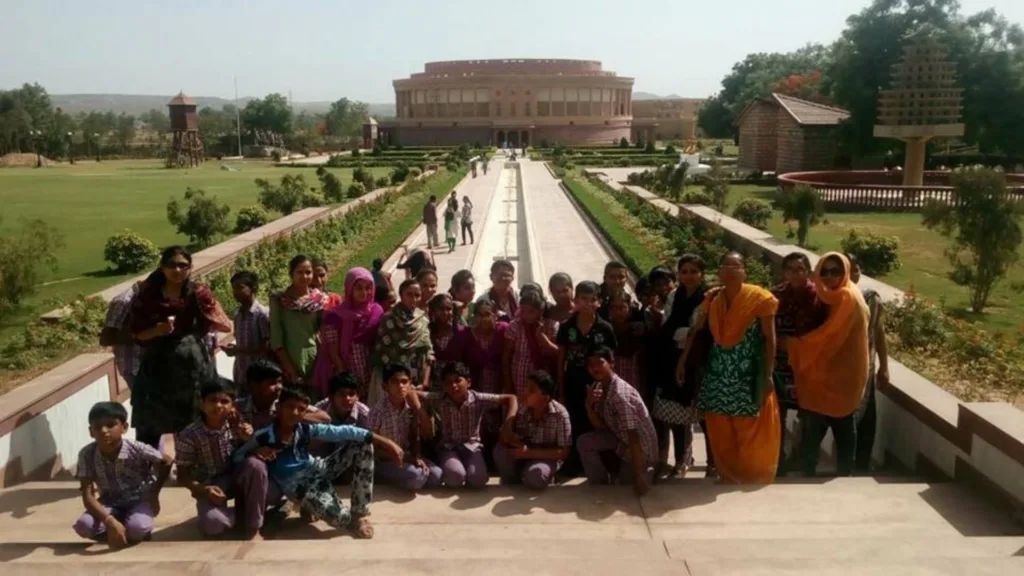
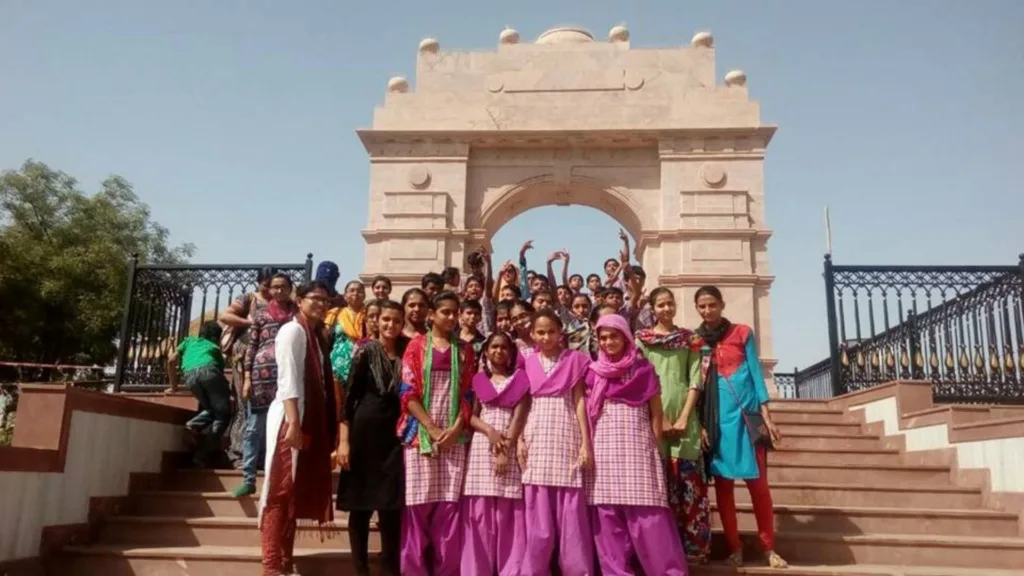
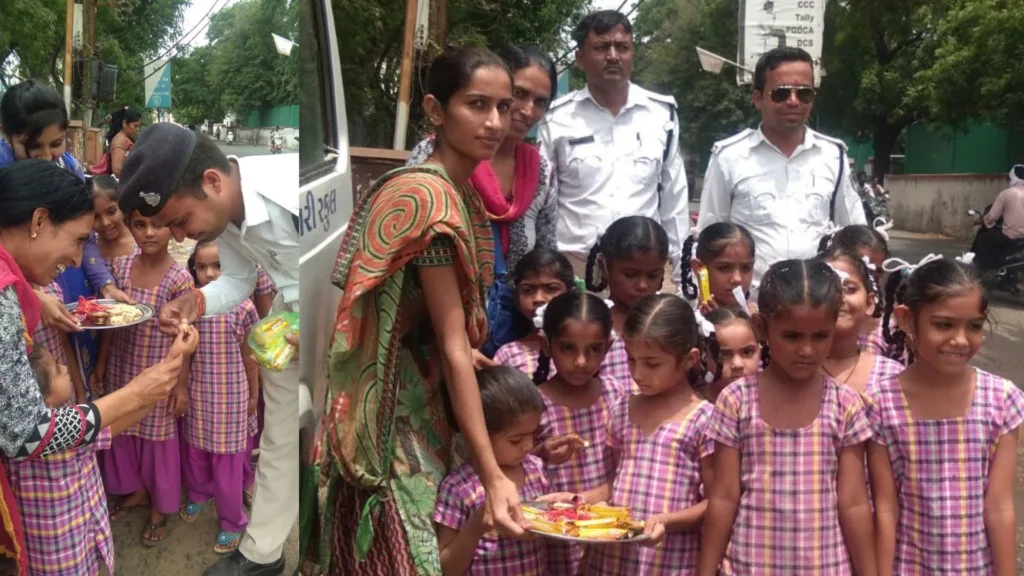

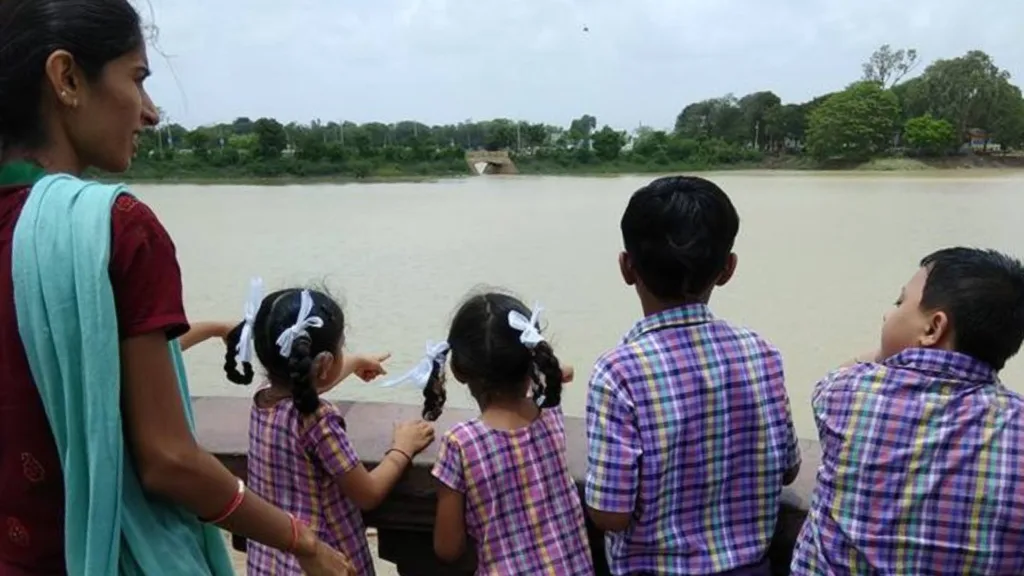
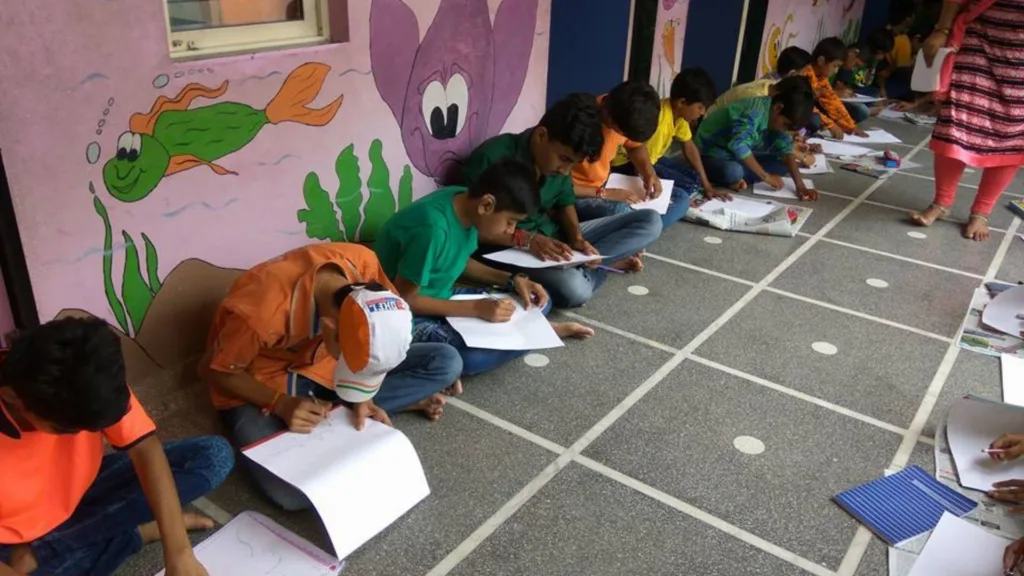
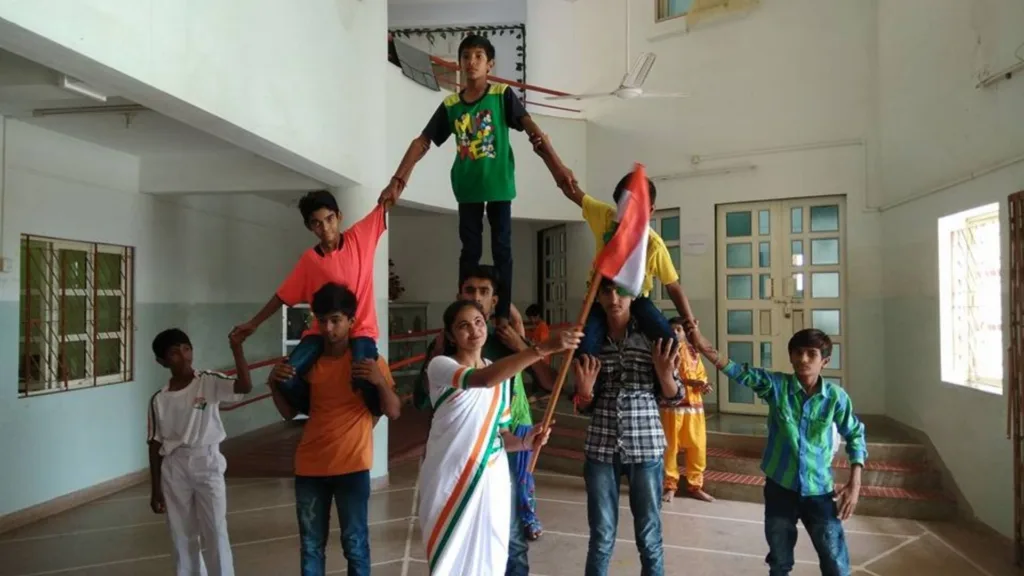
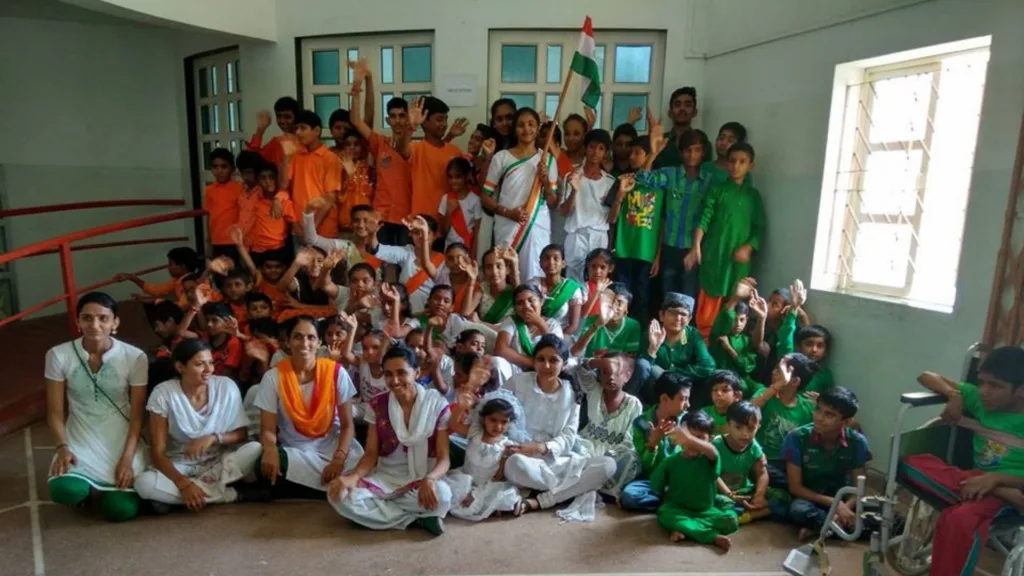
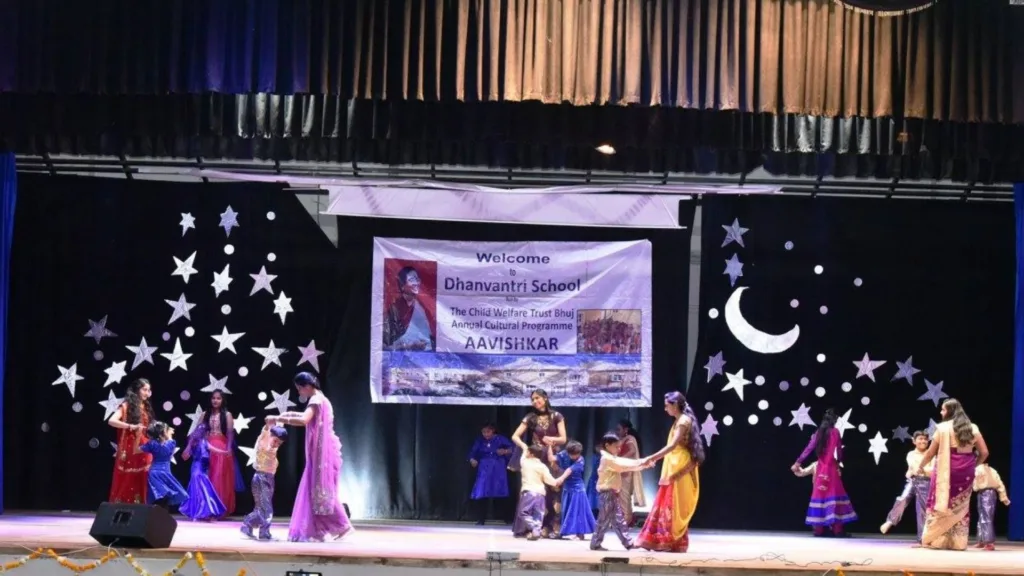
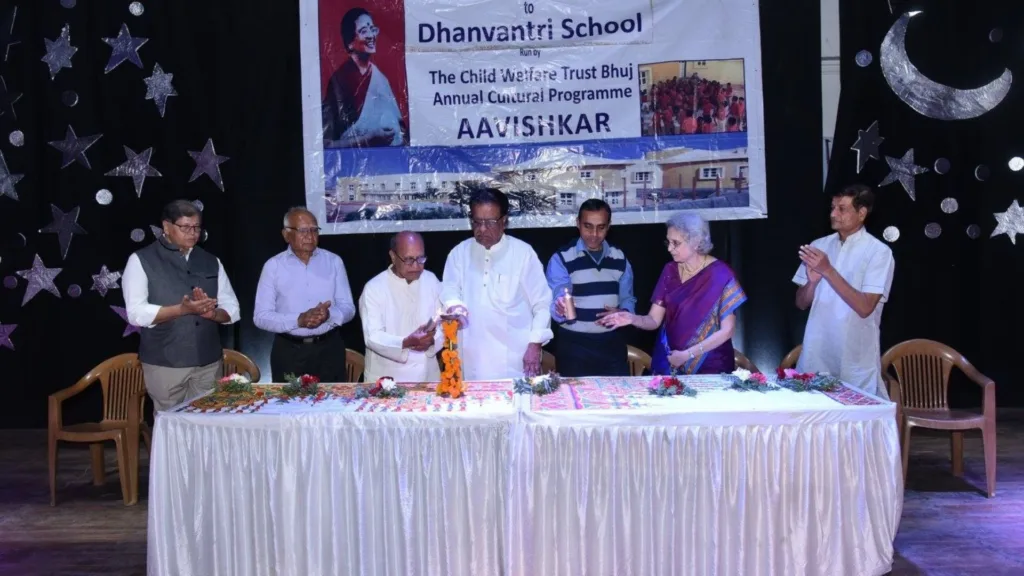
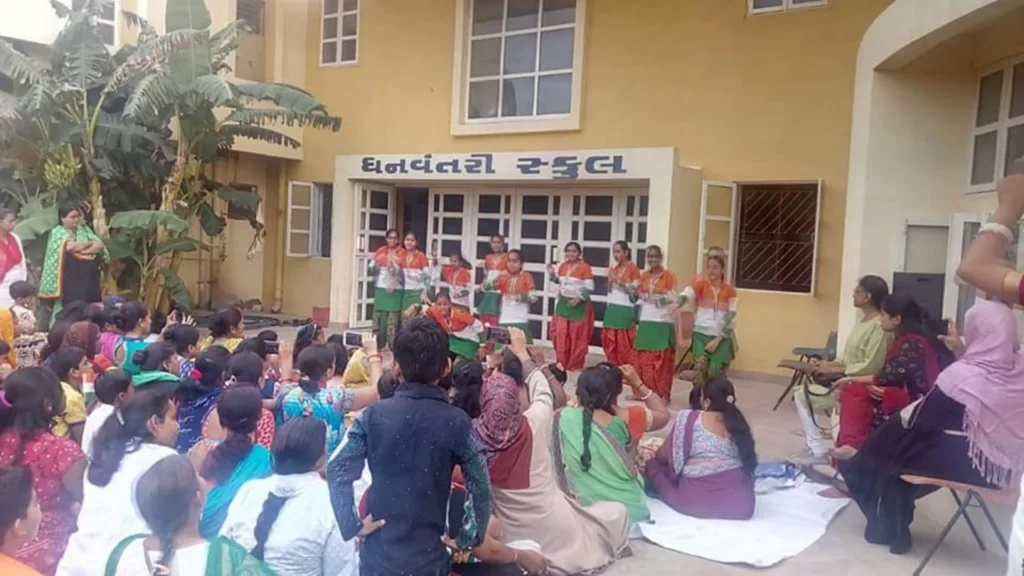

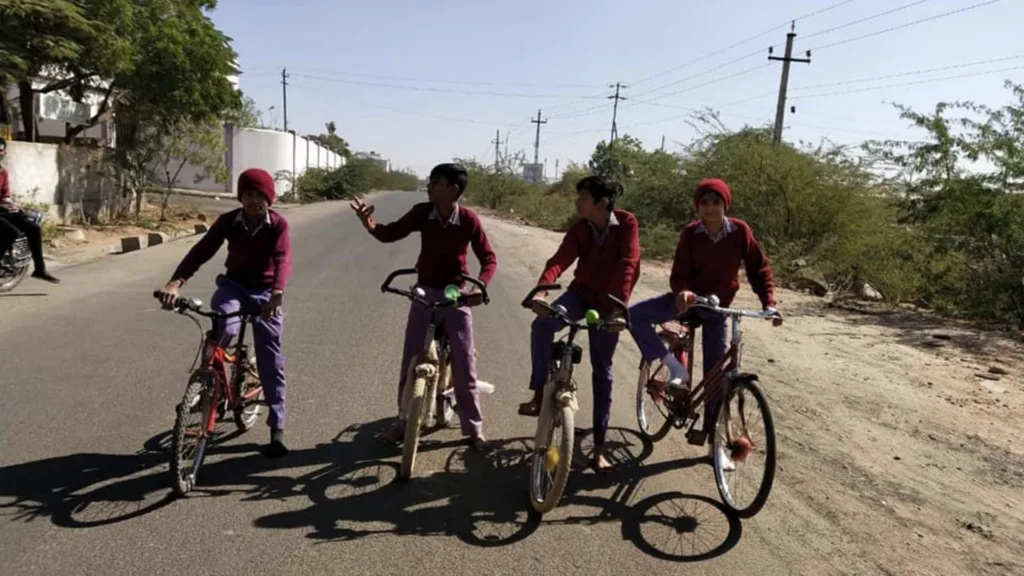
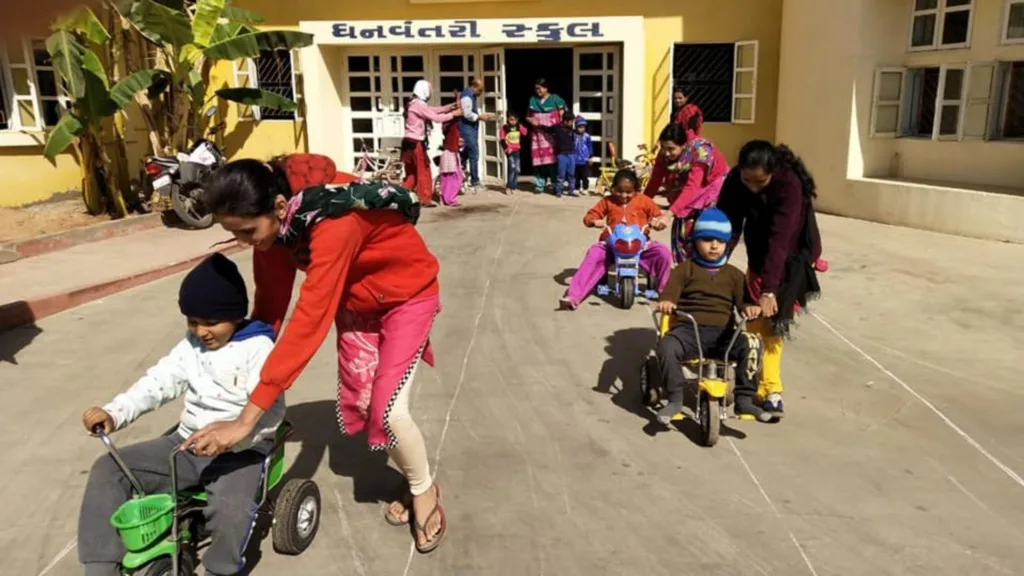
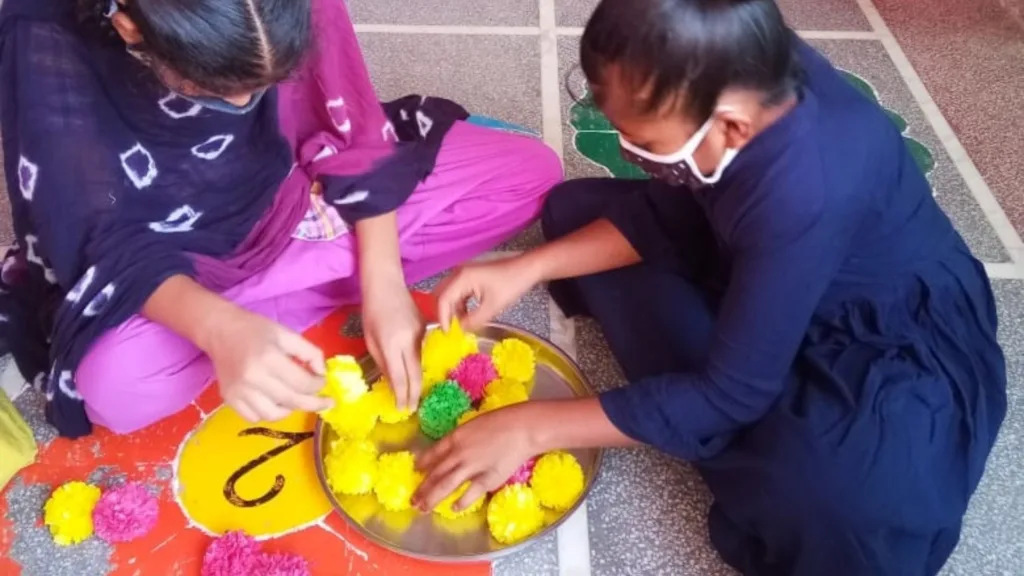
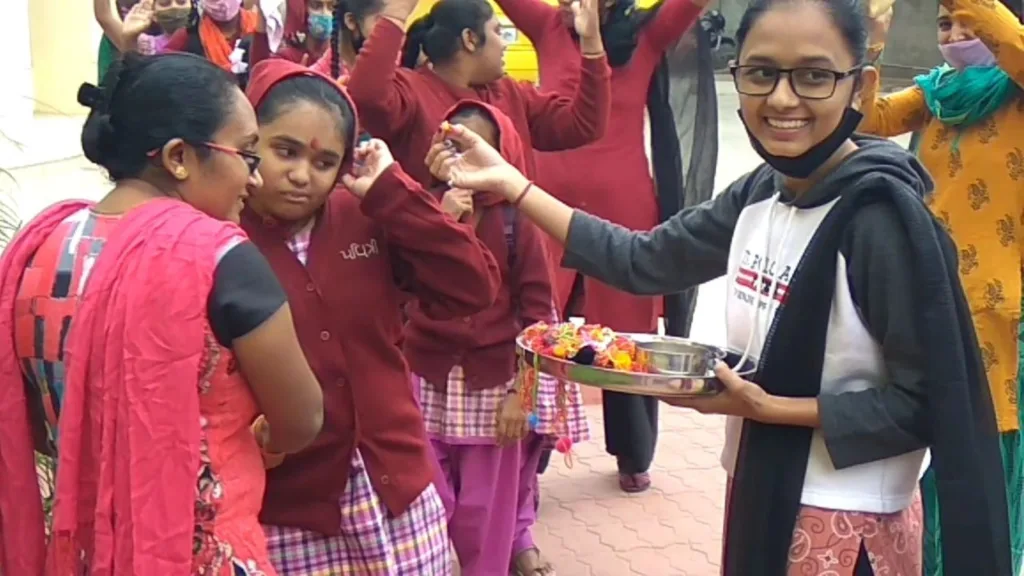


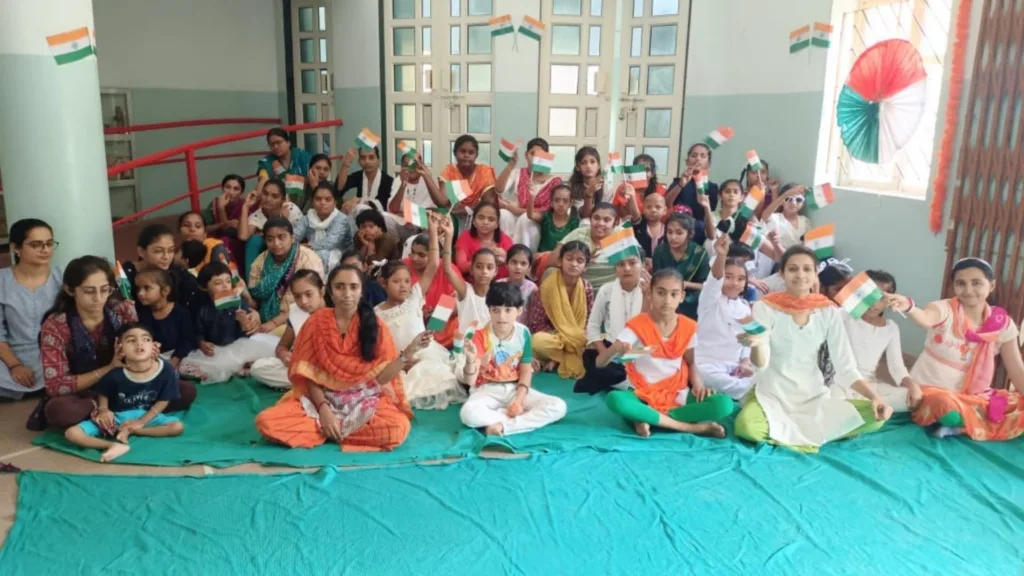
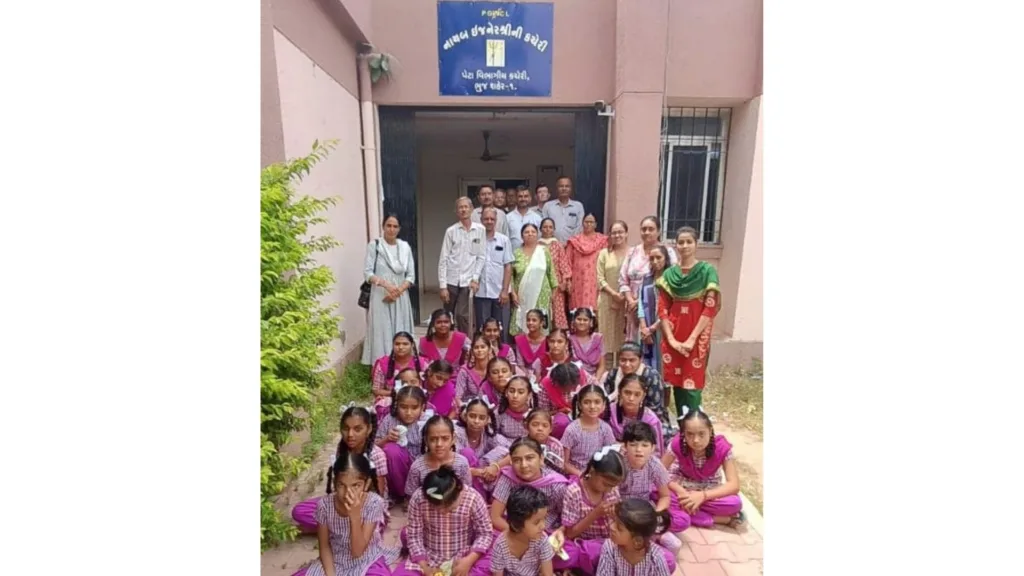

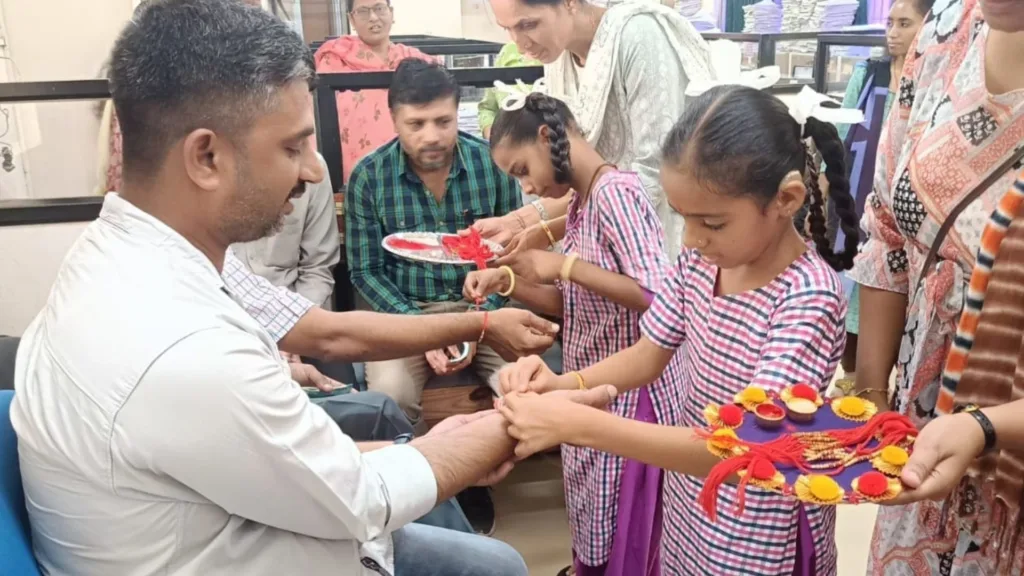
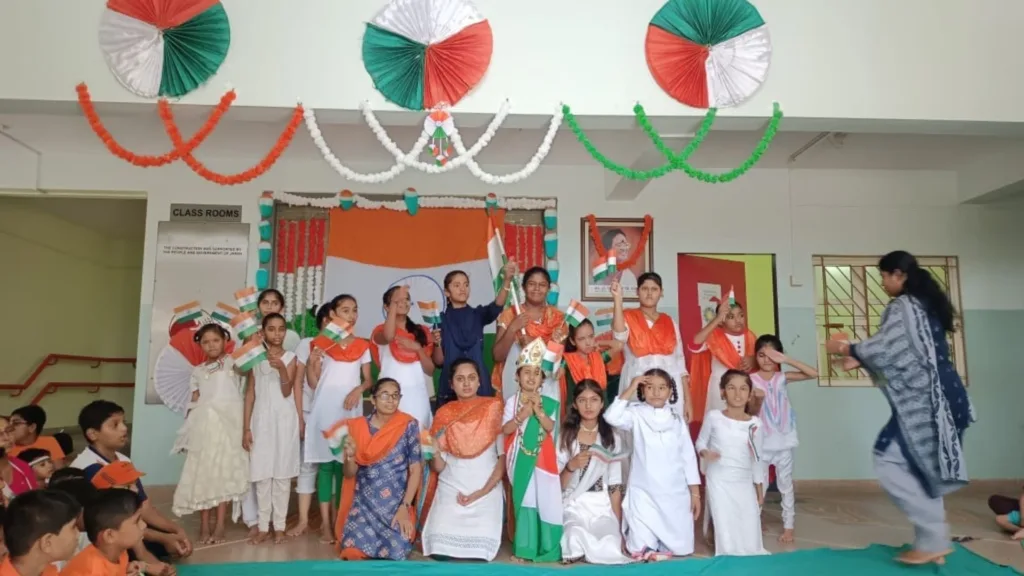
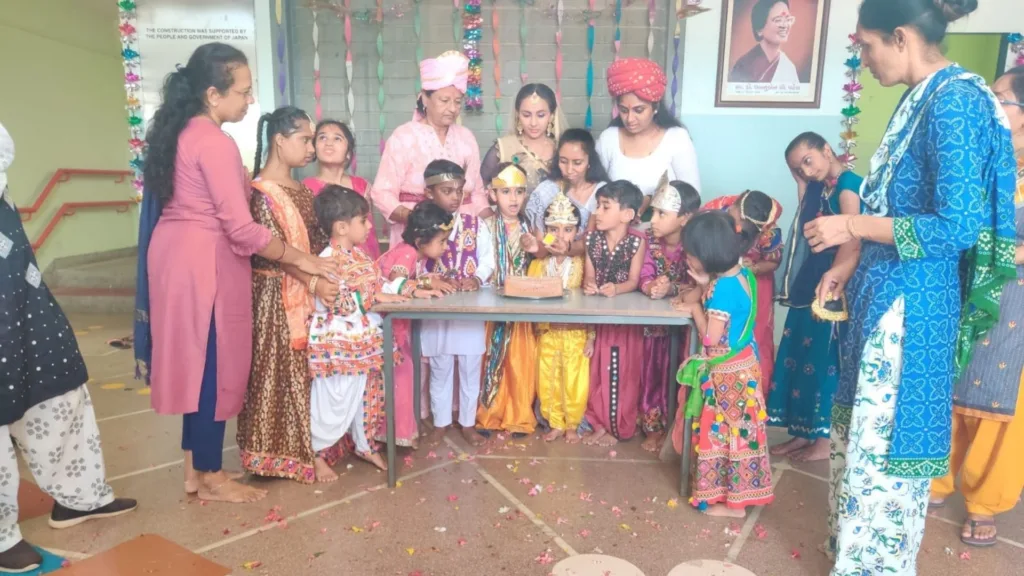

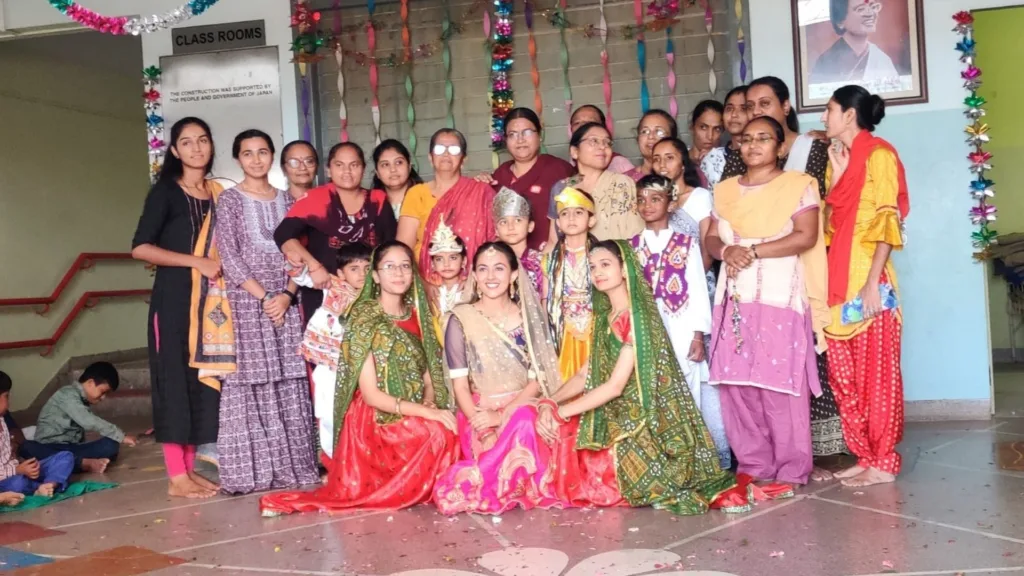
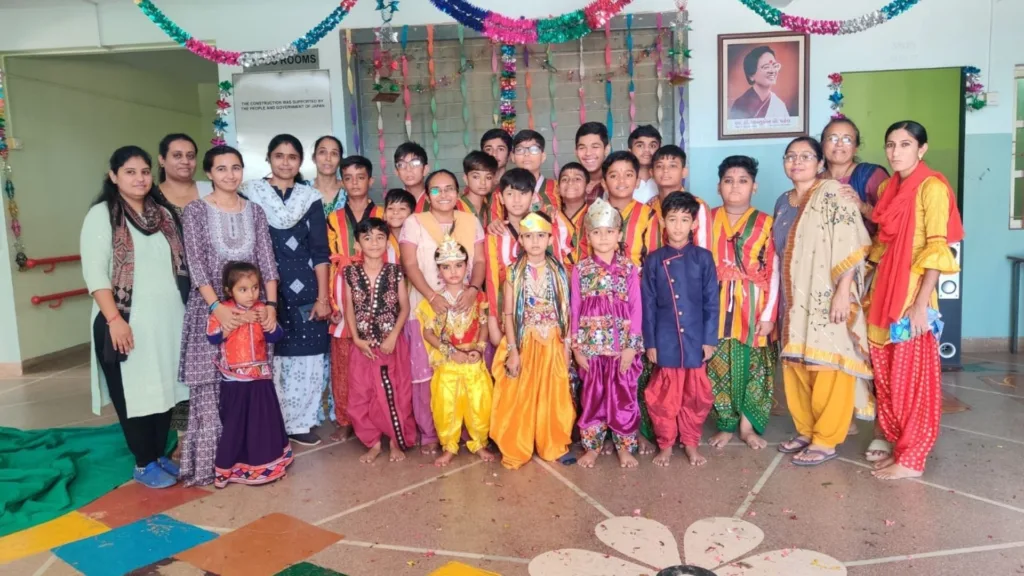

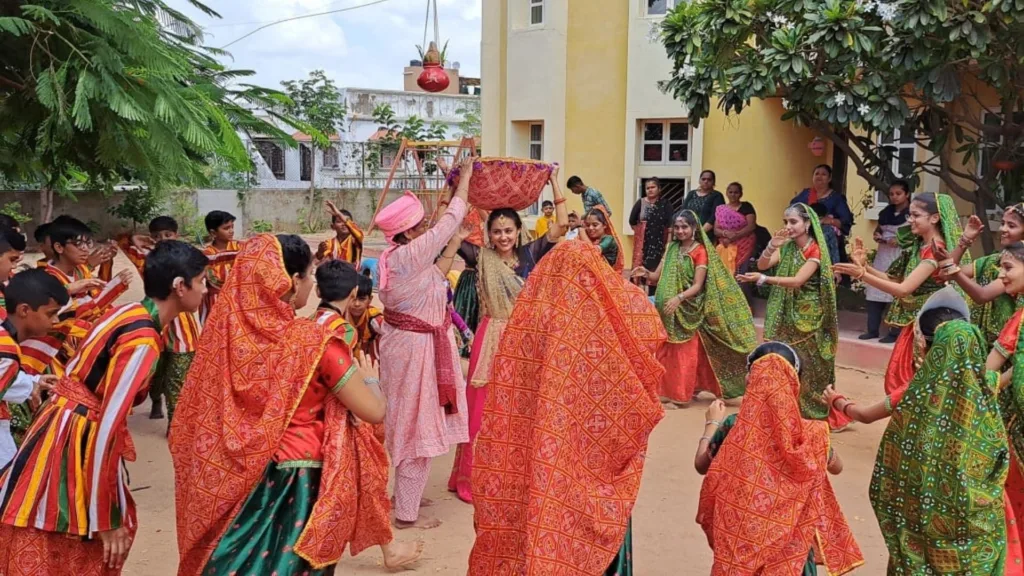
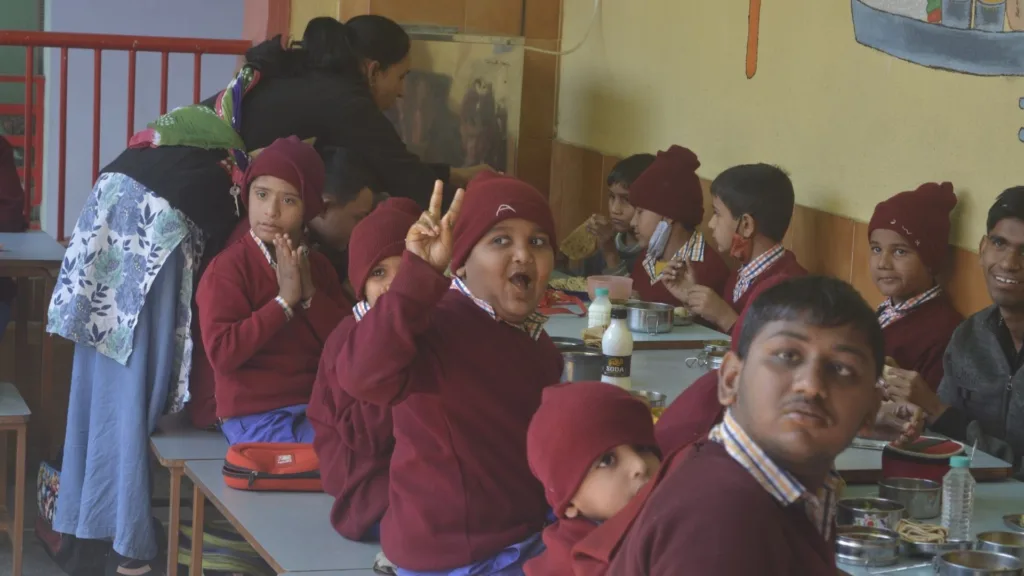
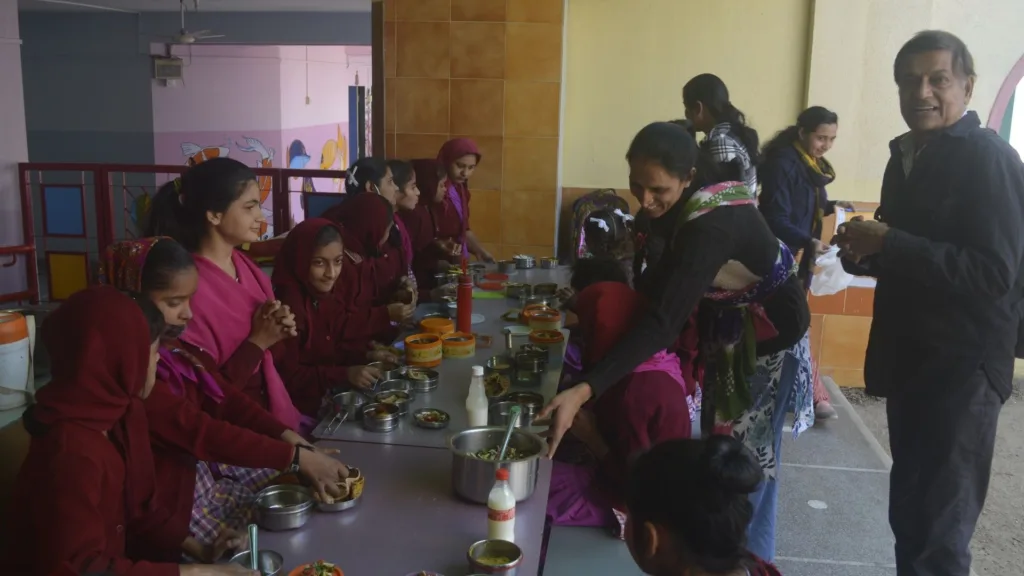
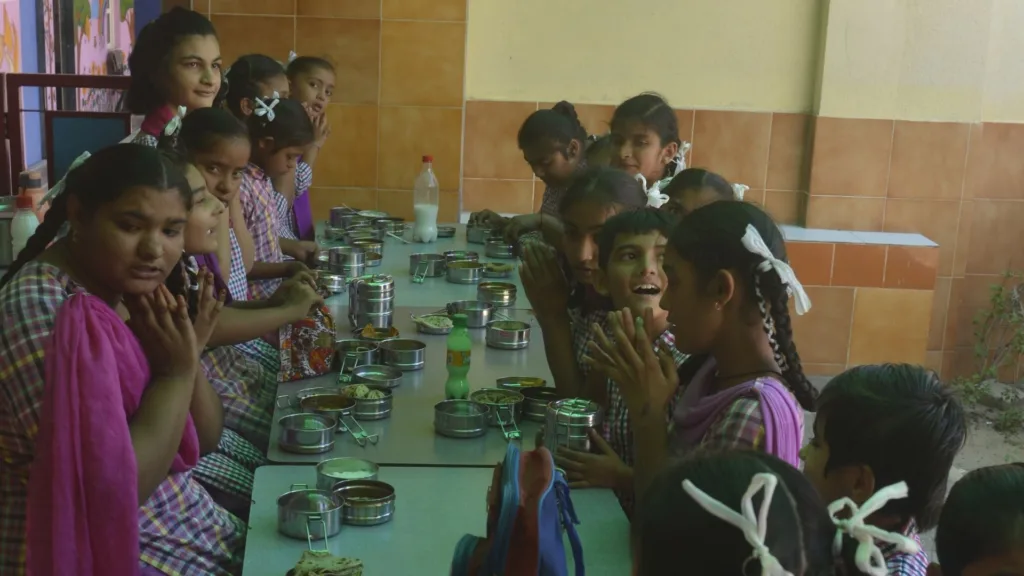

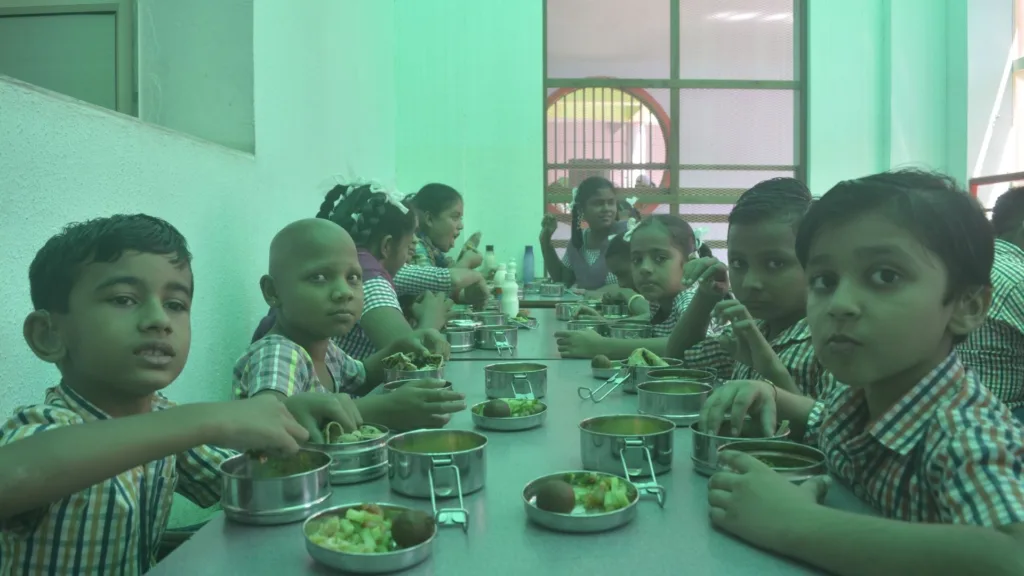
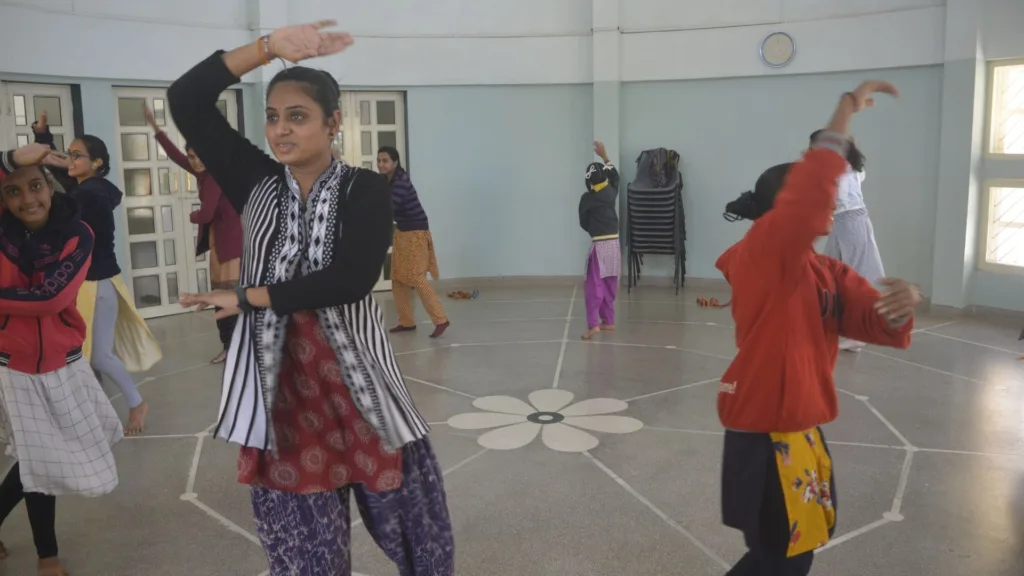
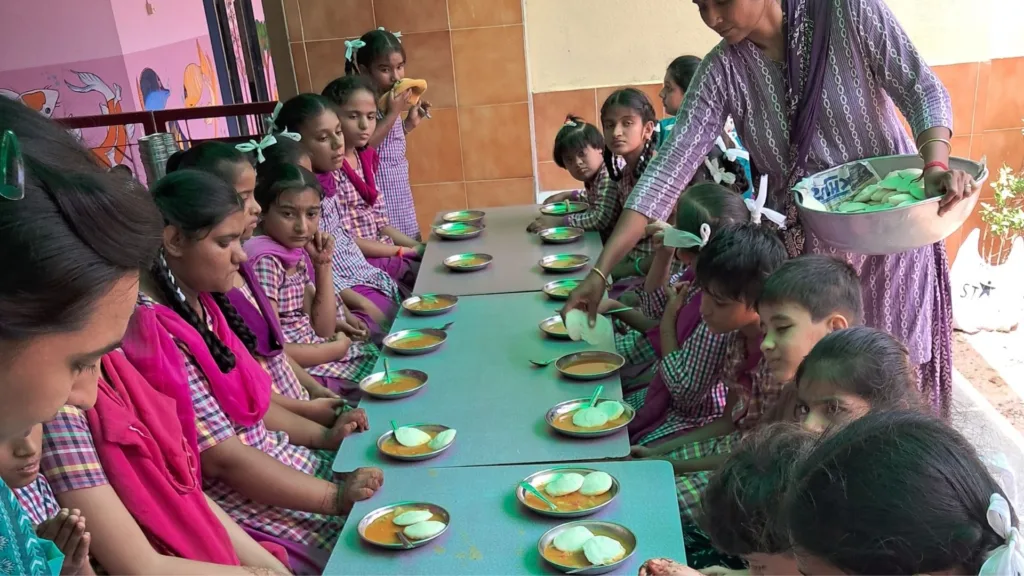
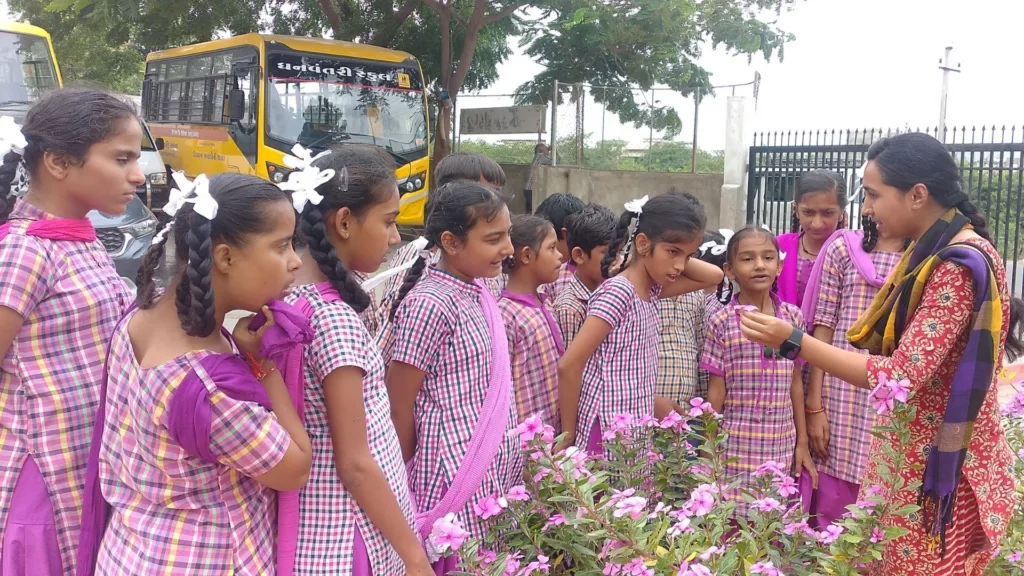
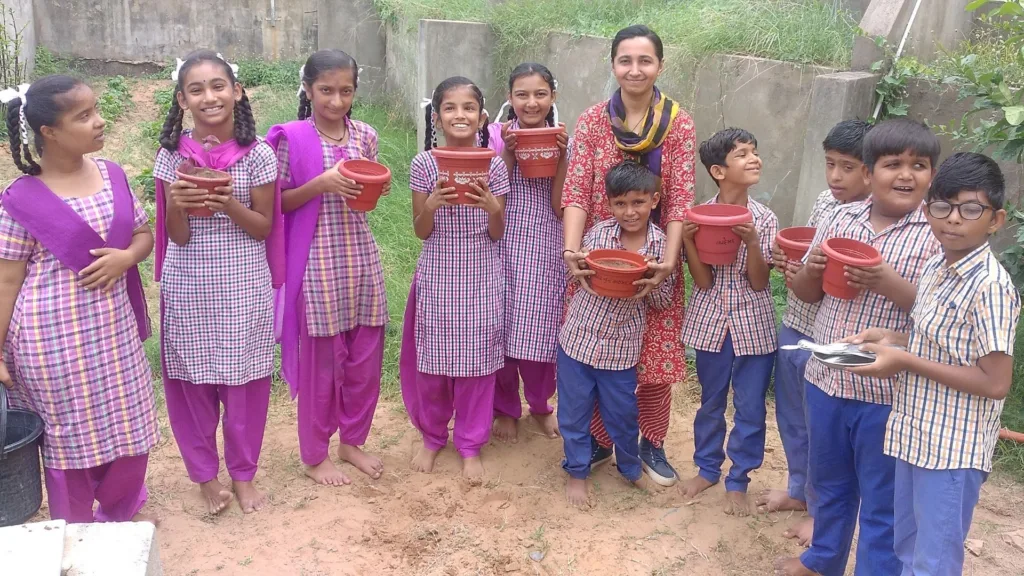

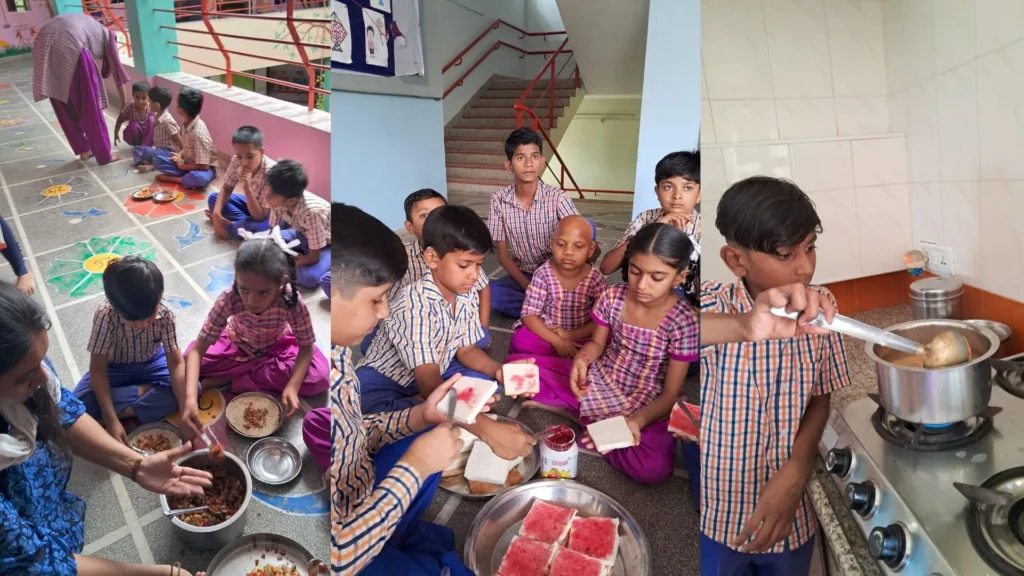
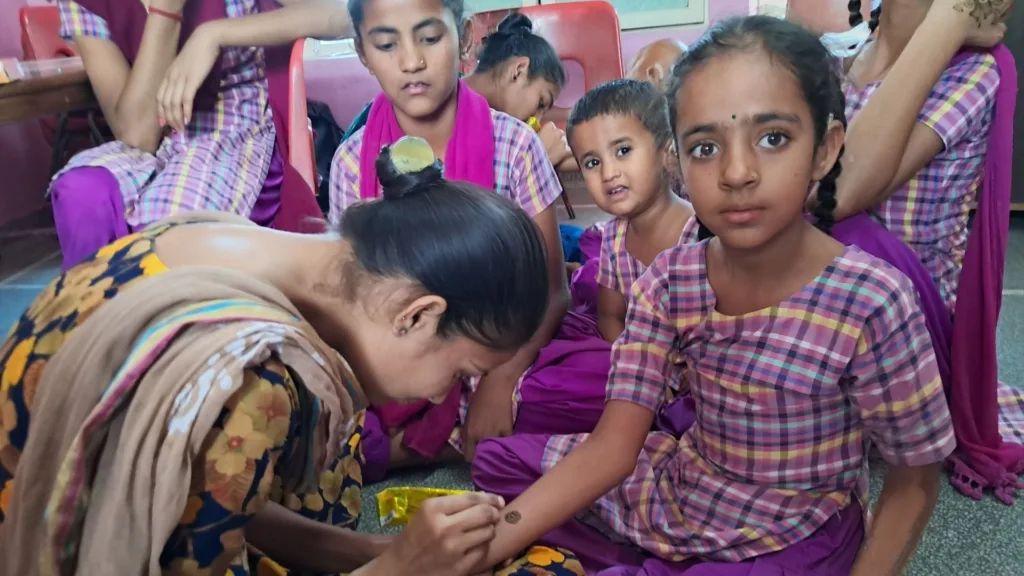
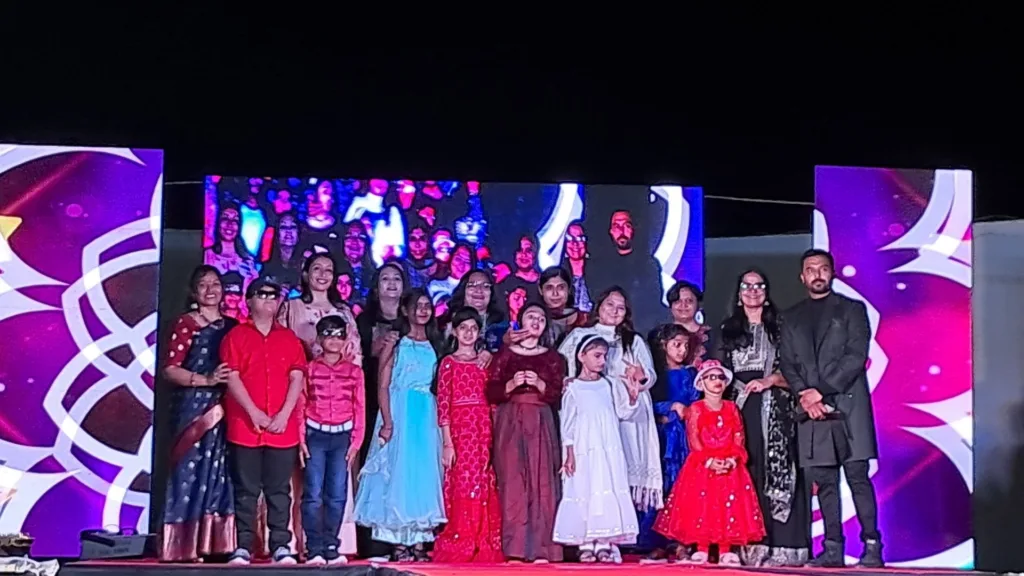
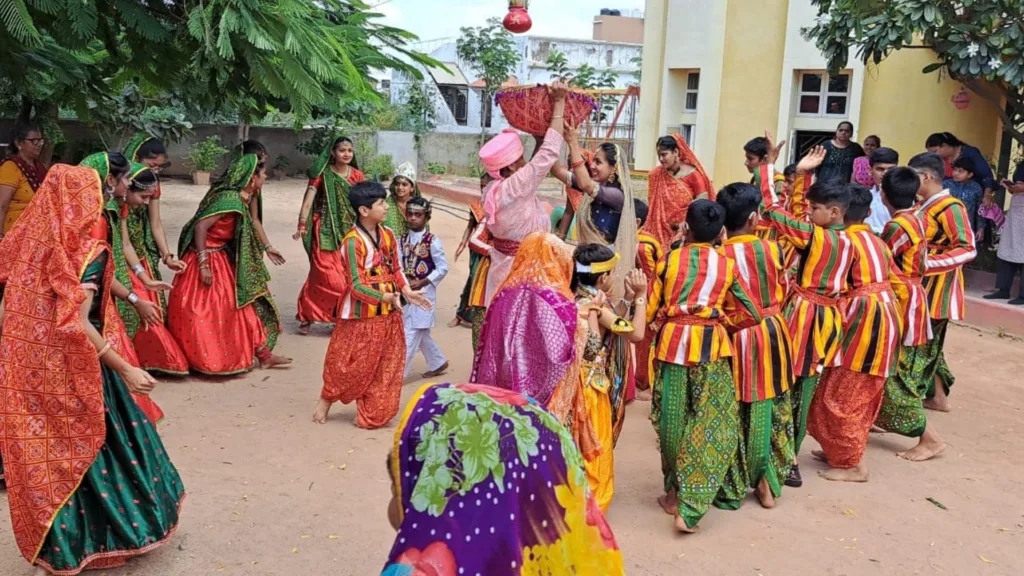
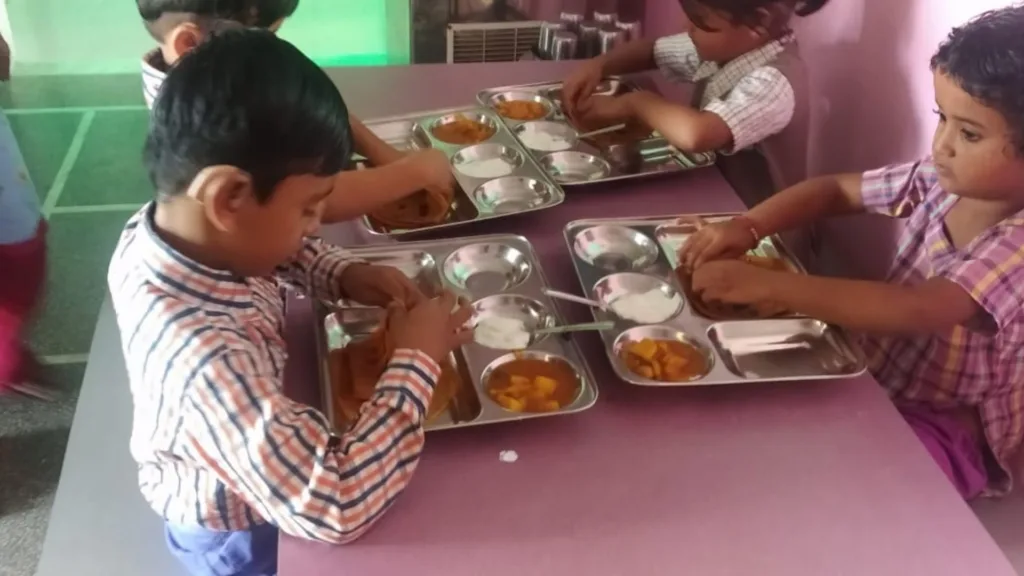
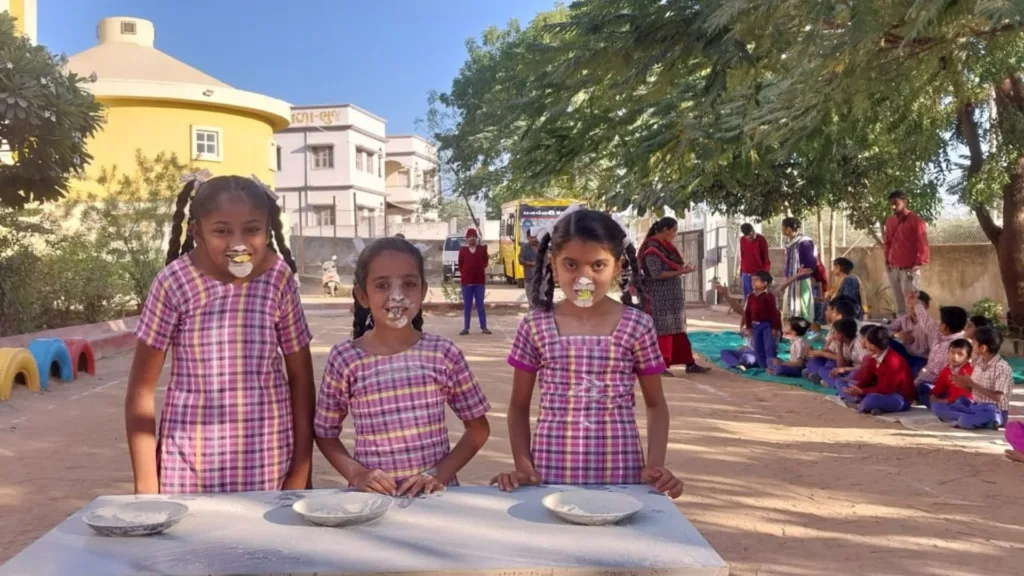
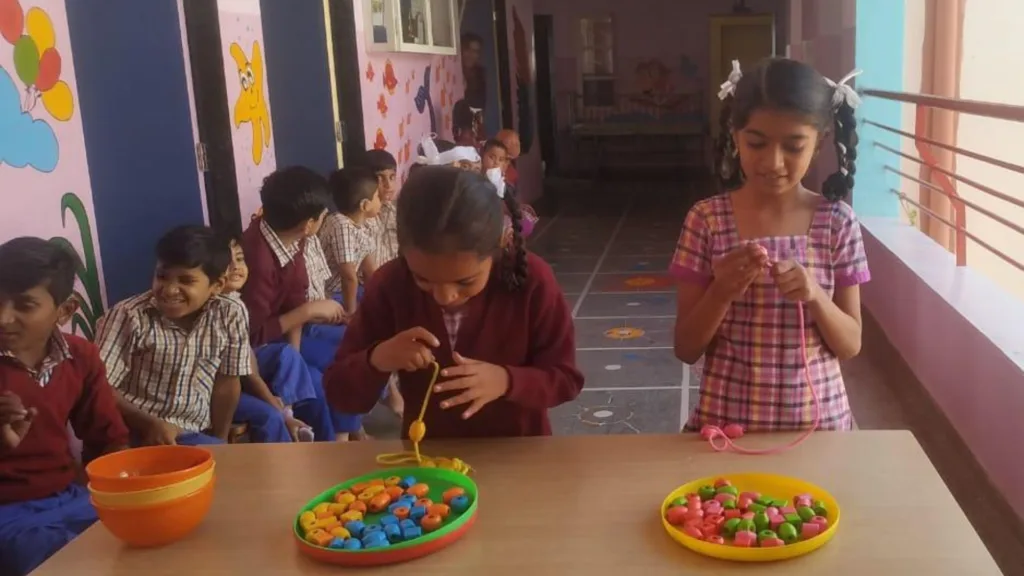

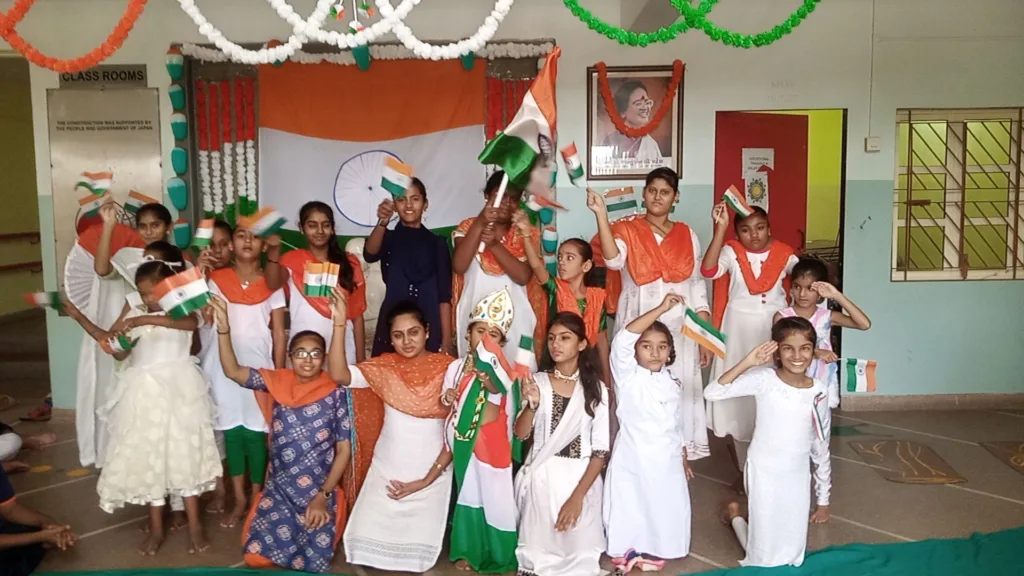
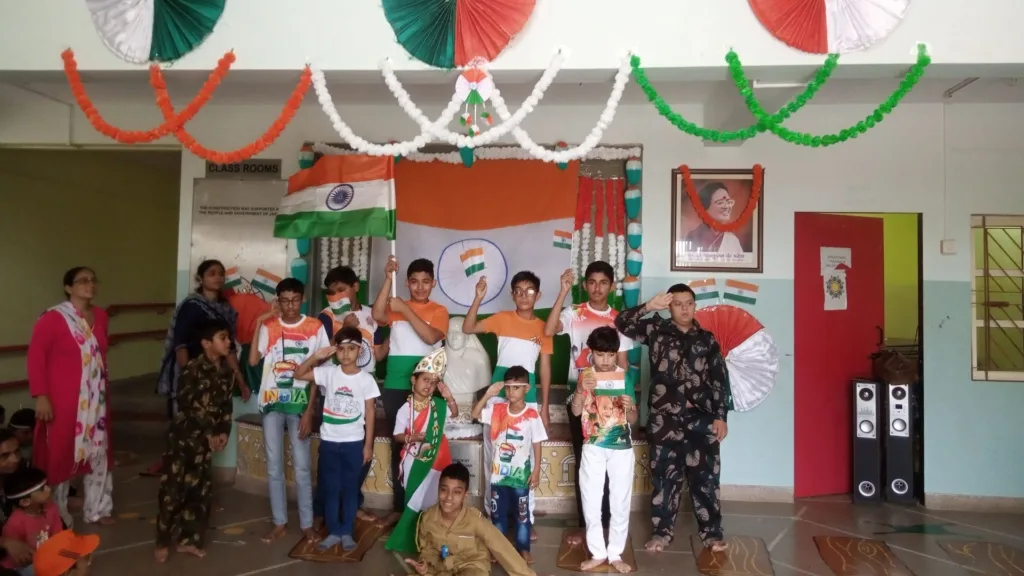

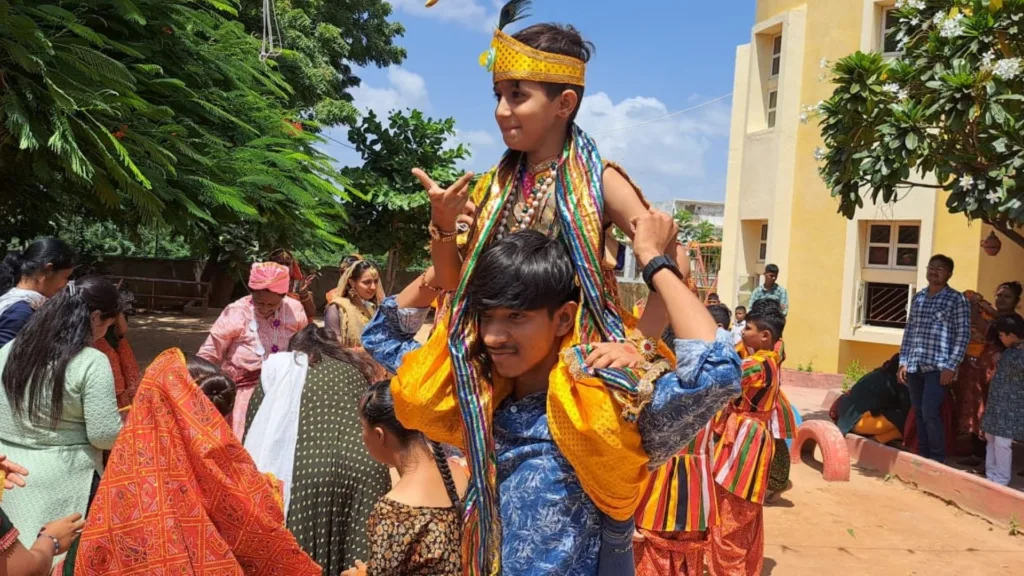

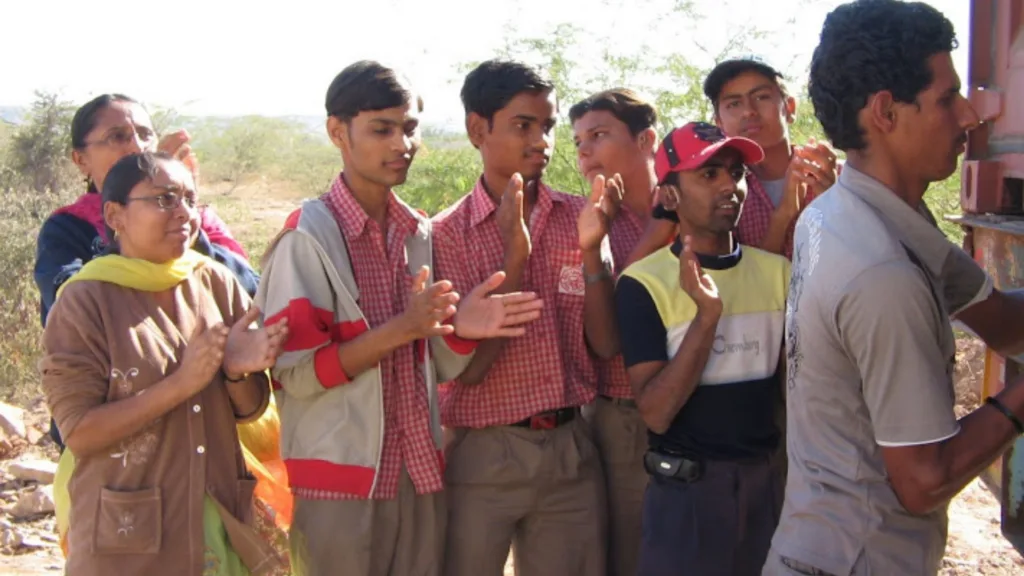

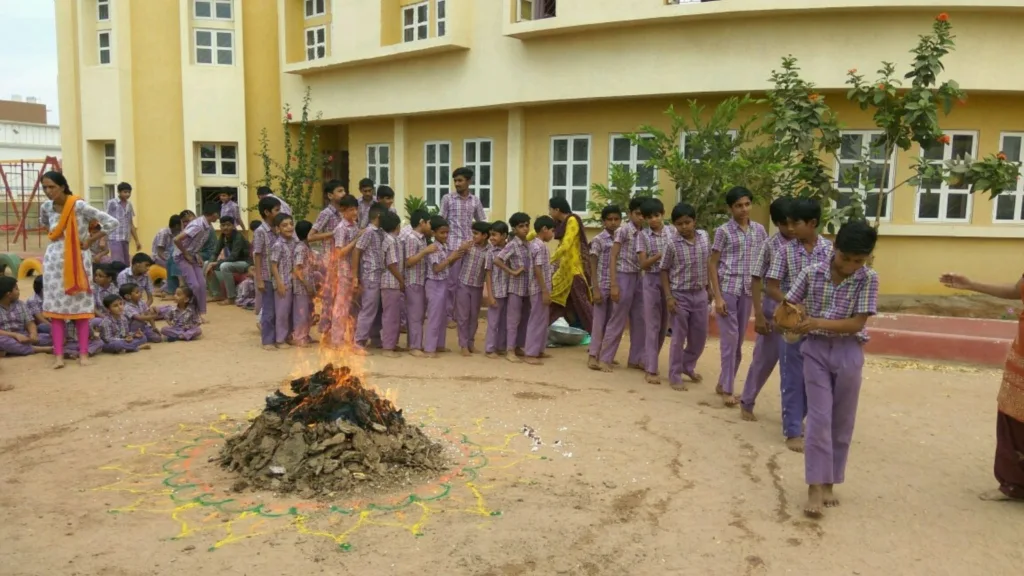



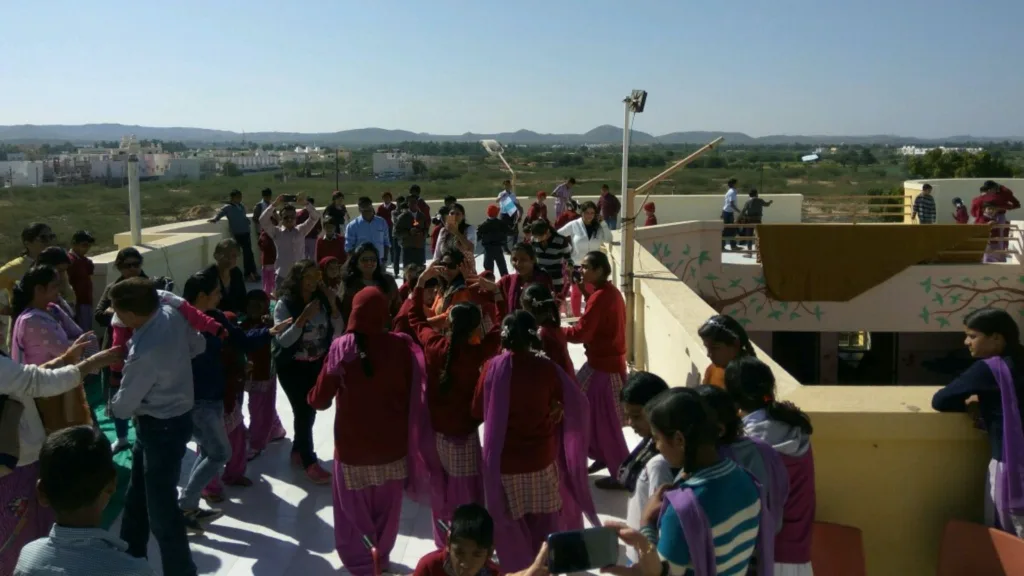
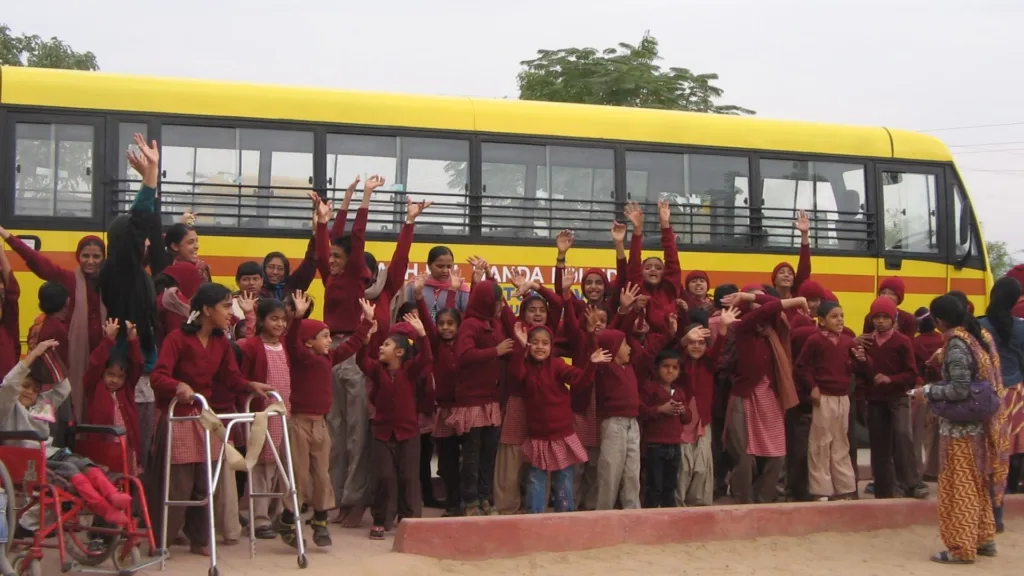

7. Individual Educational Plans
At the beginning of each school year and upon admission, every child enrolling with the Child Welfare Trust undergoes a comprehensive functional assessment conducted by our trained staff members. Based on the results of these assessments, we craft Individual Education Plans tailored to each child’s unique needs and abilities. These plans are then shared with the child and their family.
To ensure a continuous evaluation of each child’s progress, we conduct ongoing assessments, generating weekly reports. These reports are presented in a manner that even a child with significant developmental delays can readily comprehend. For instance, if a child successfully brushes their teeth, we use a smiley face on the report card to convey that they have done well.
In addition to weekly reports, we also create monthly progress reports for each child. Our commitment is to provide clear and accessible feedback to both the child and their parents, facilitating a collaborative approach to their education and development.
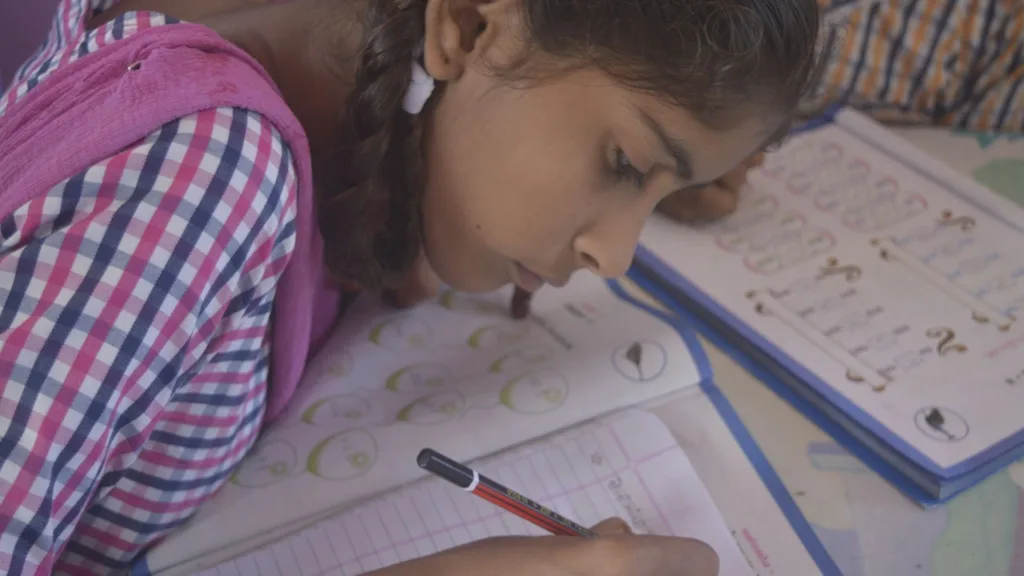
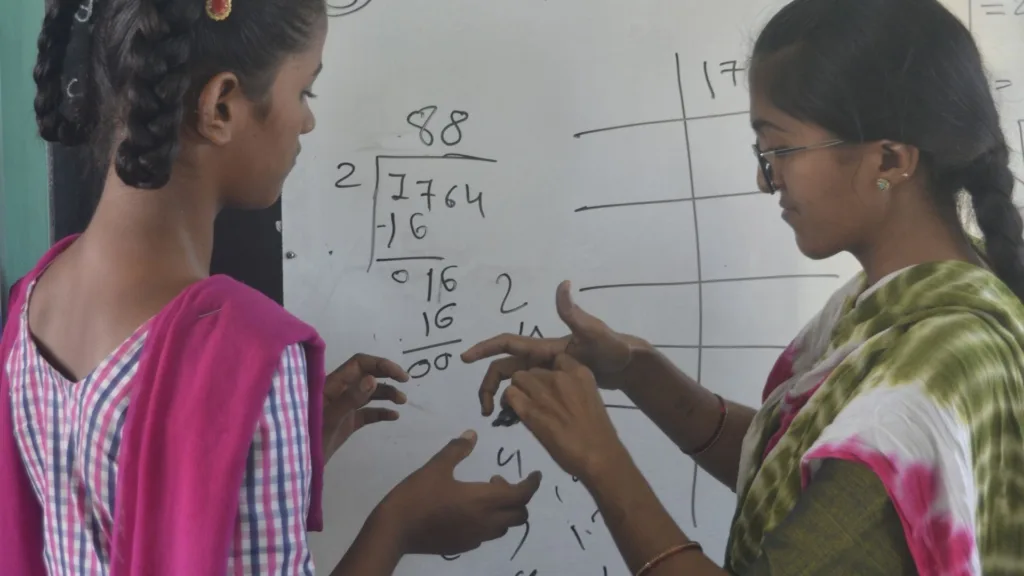
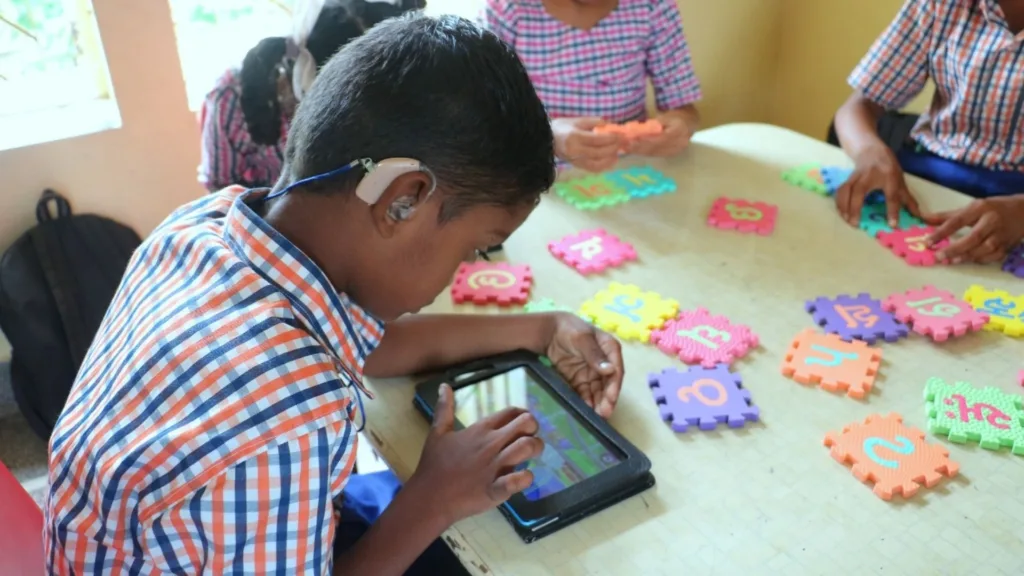
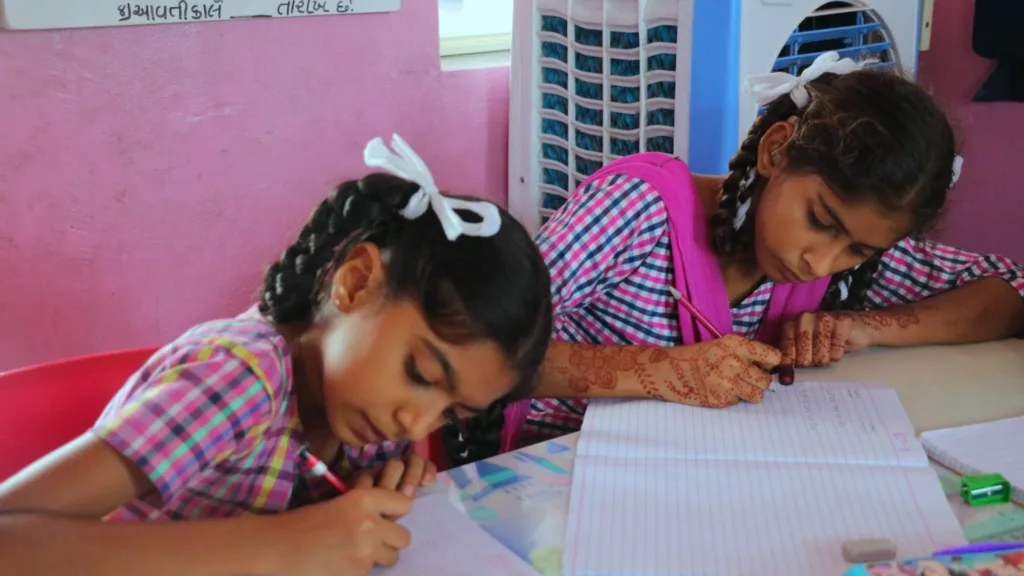

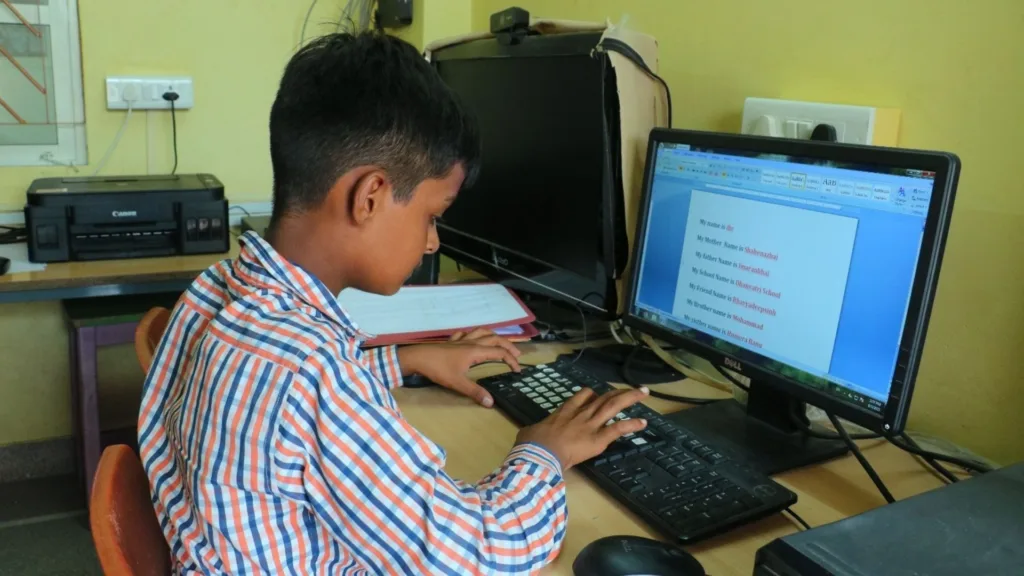
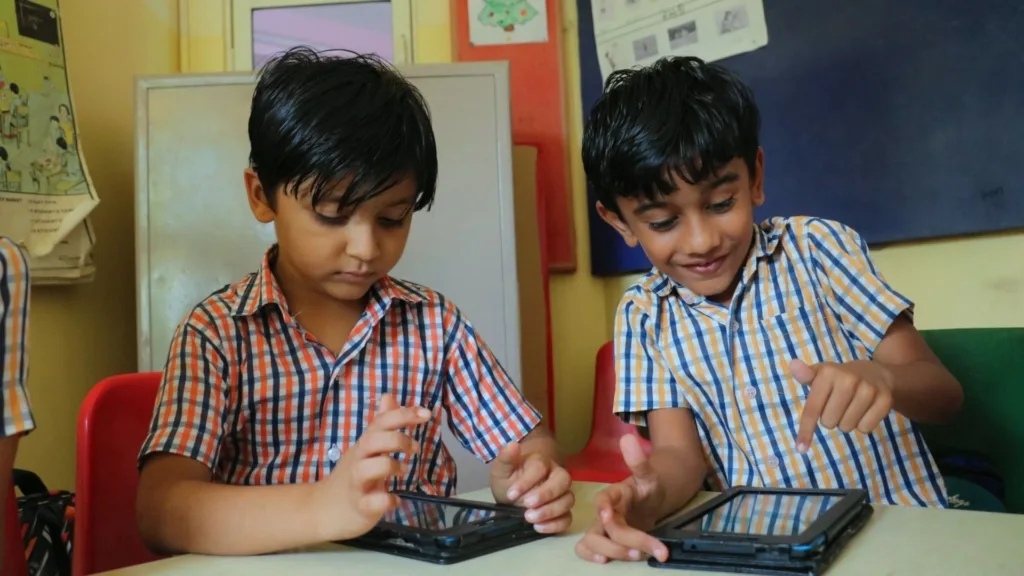
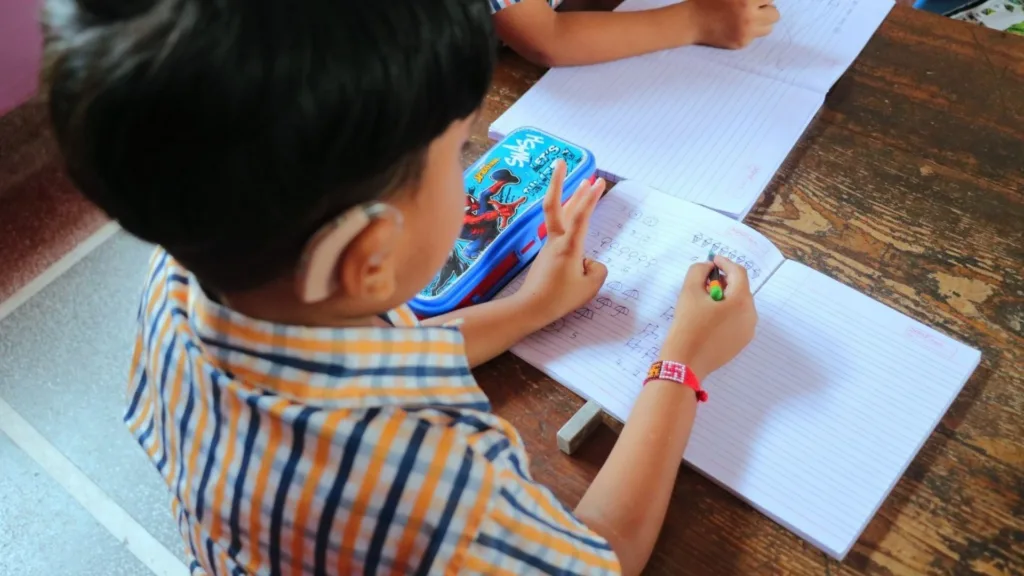


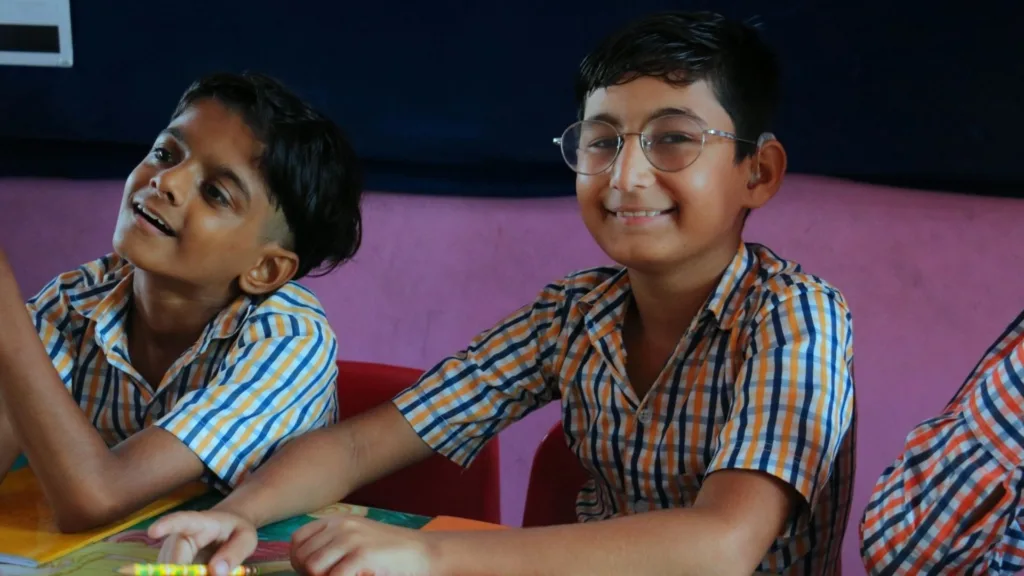
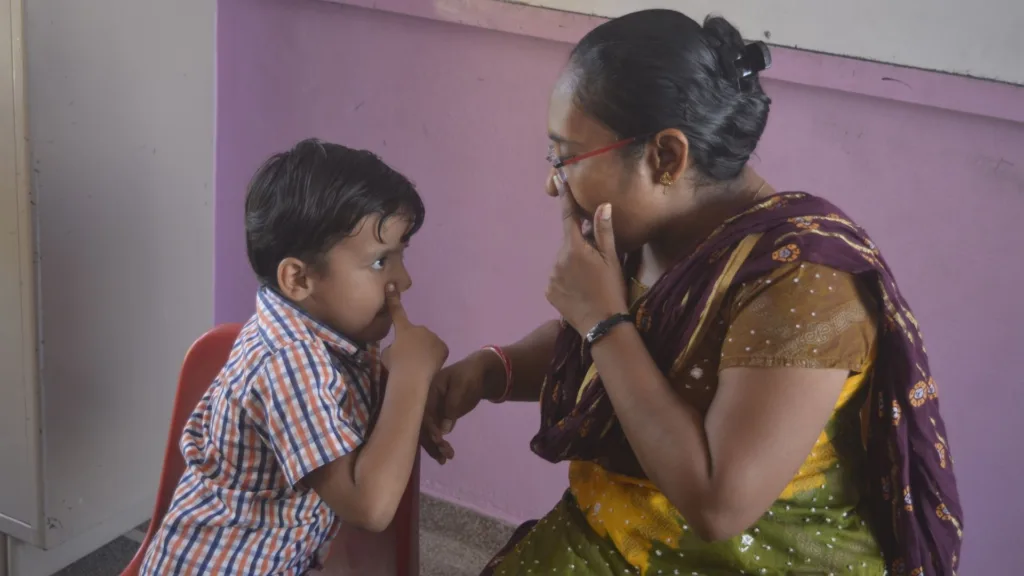
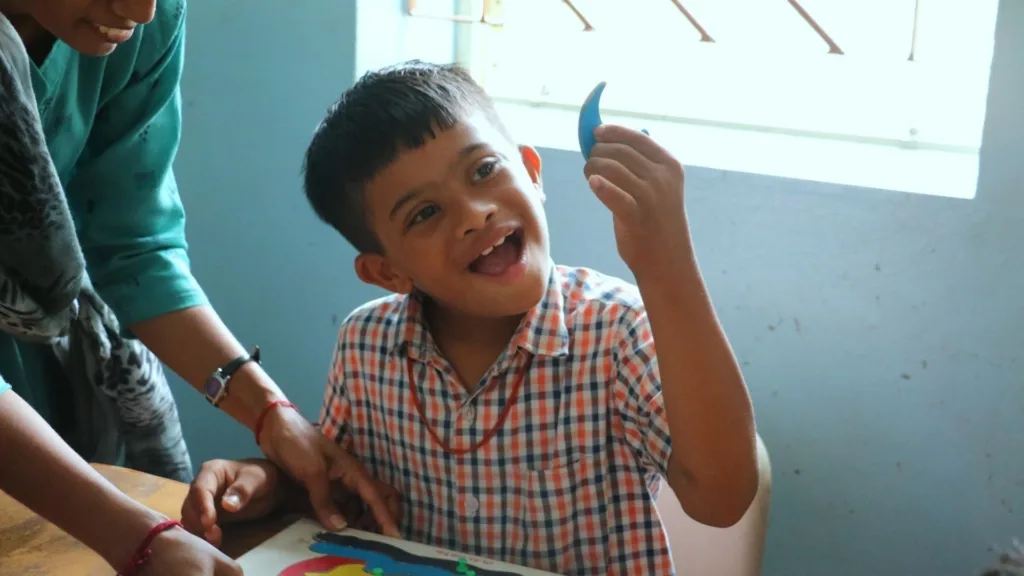
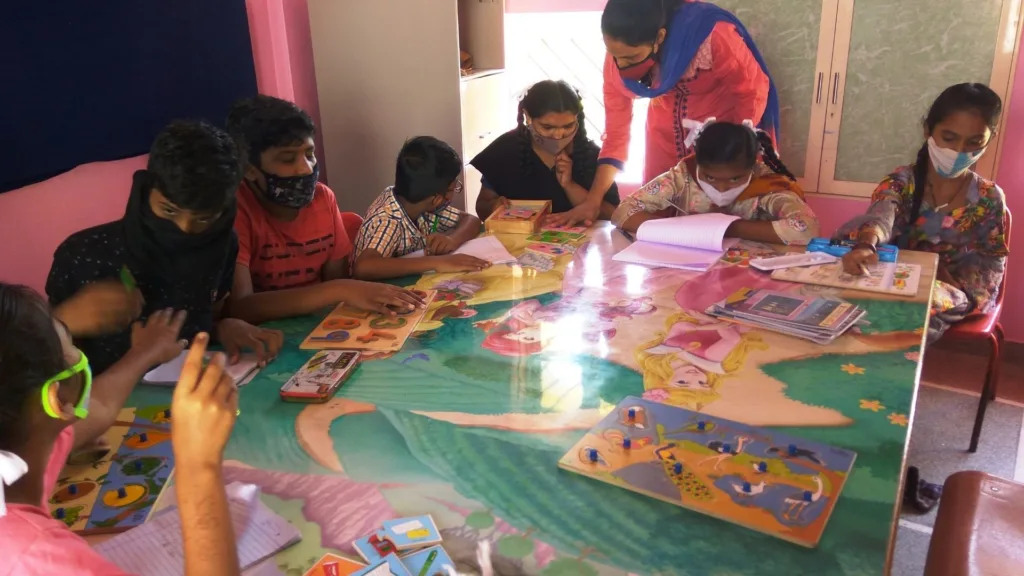
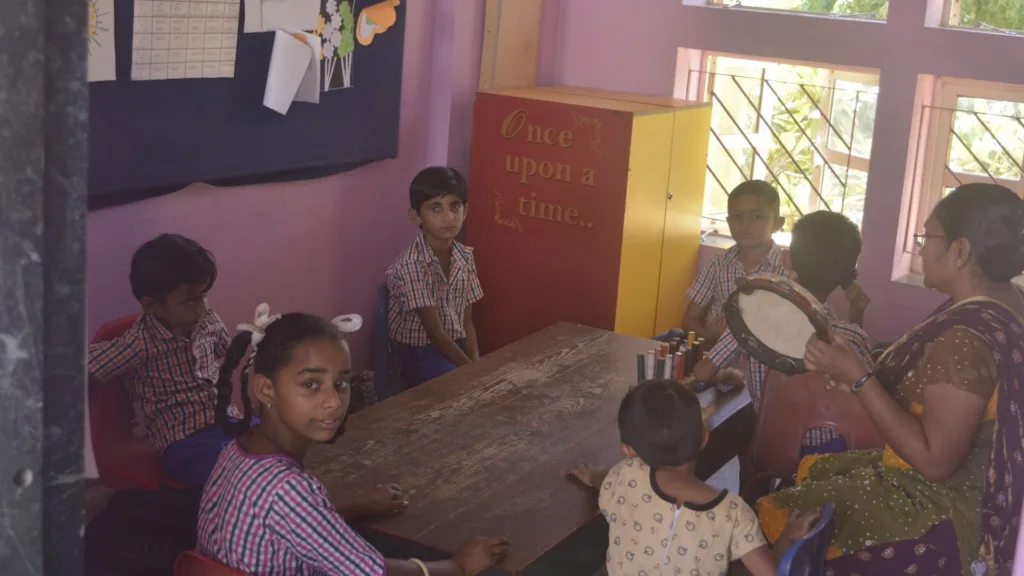
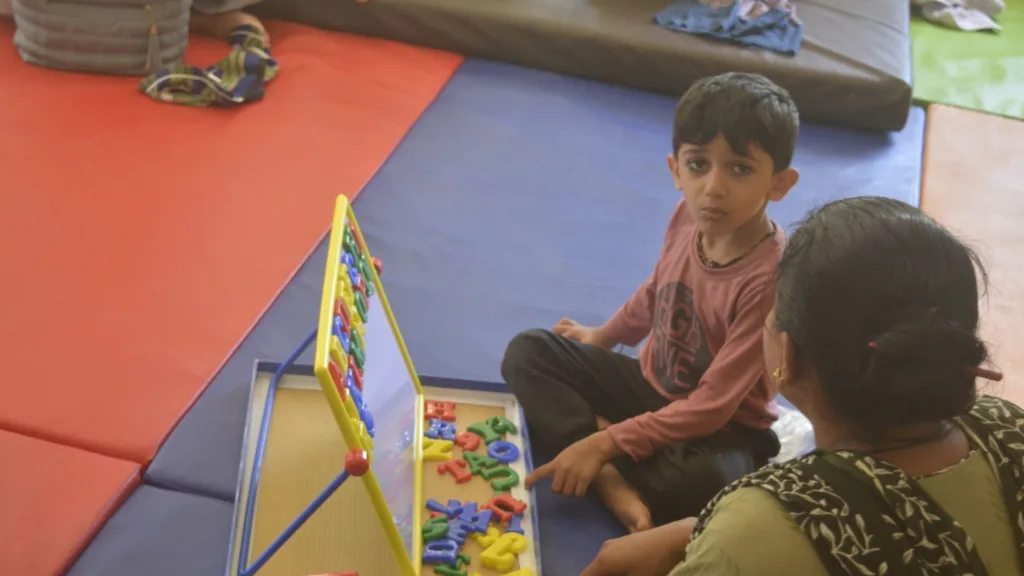
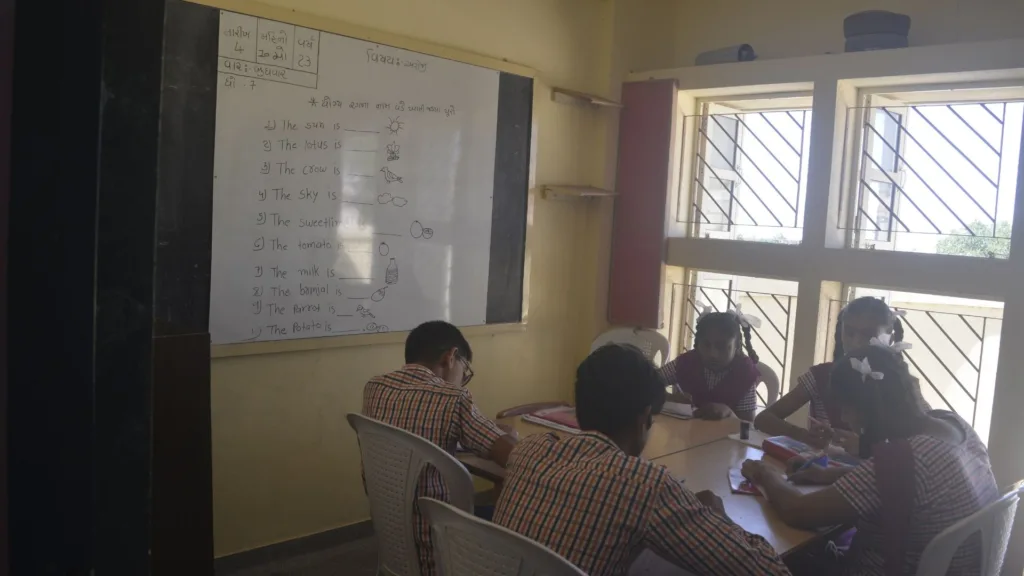


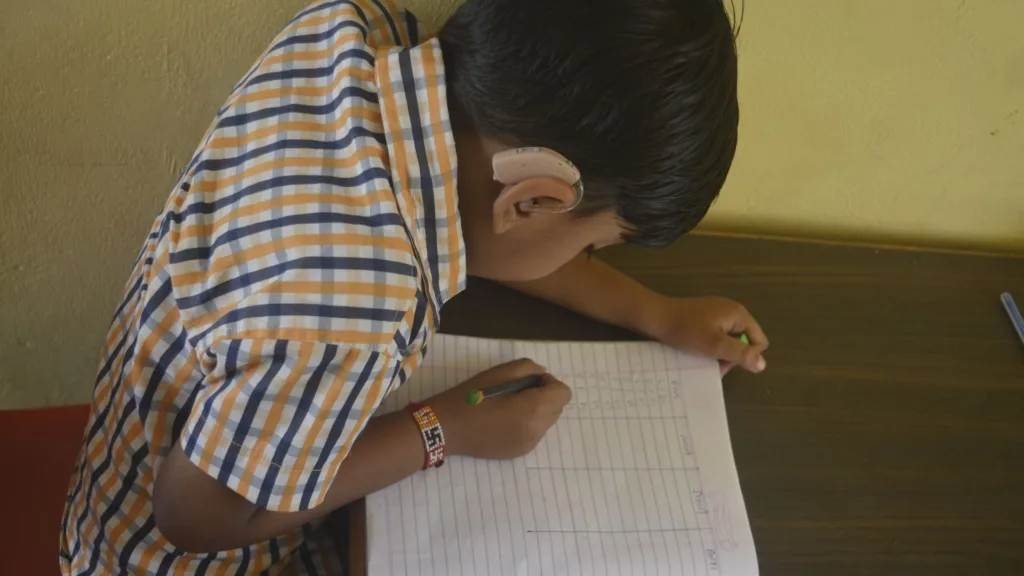
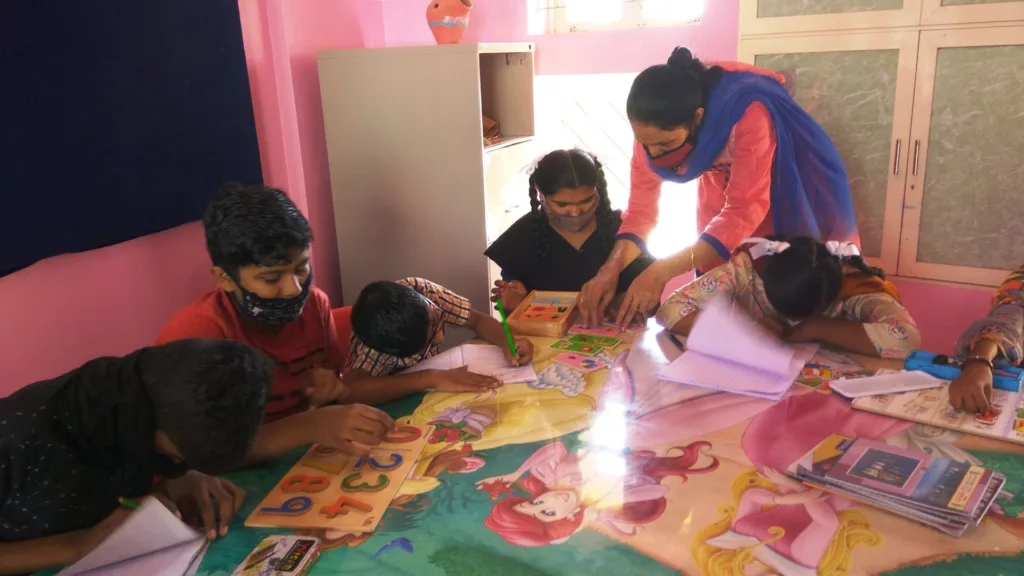

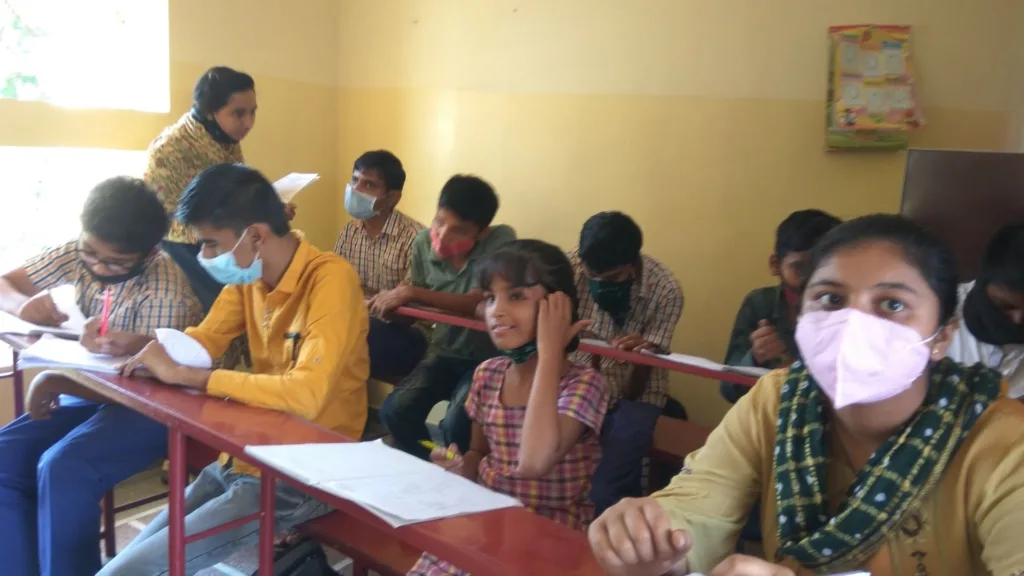

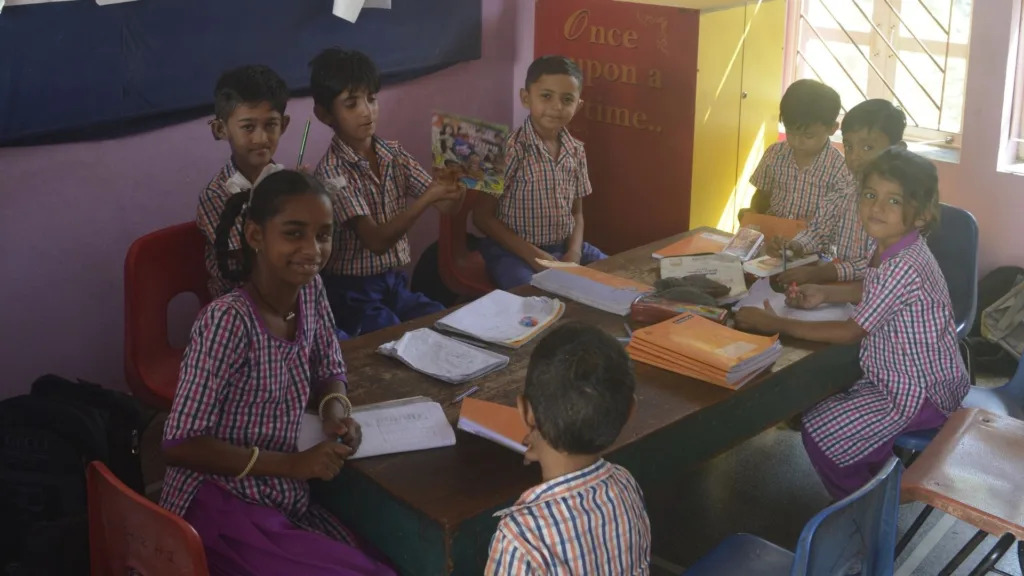
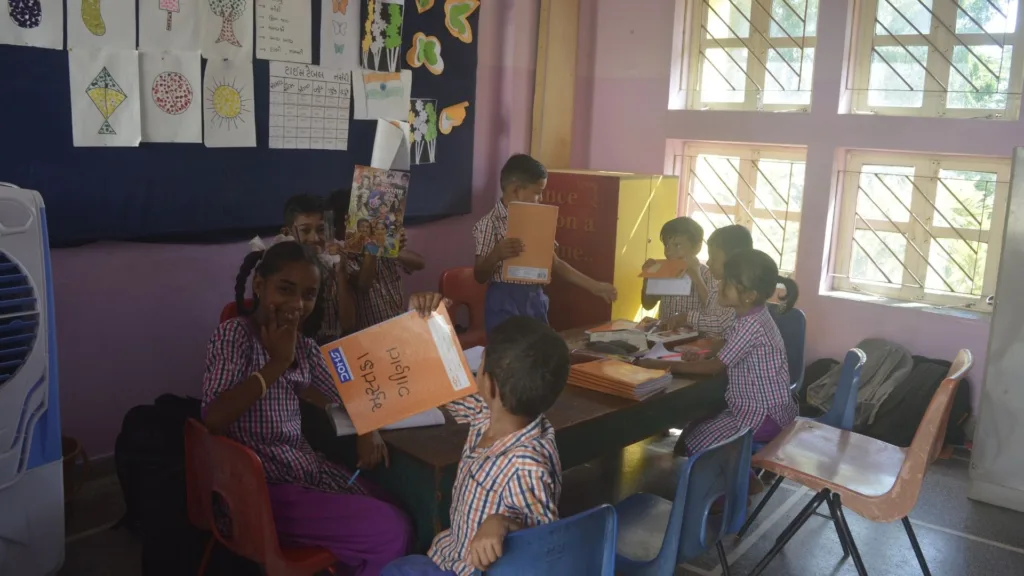
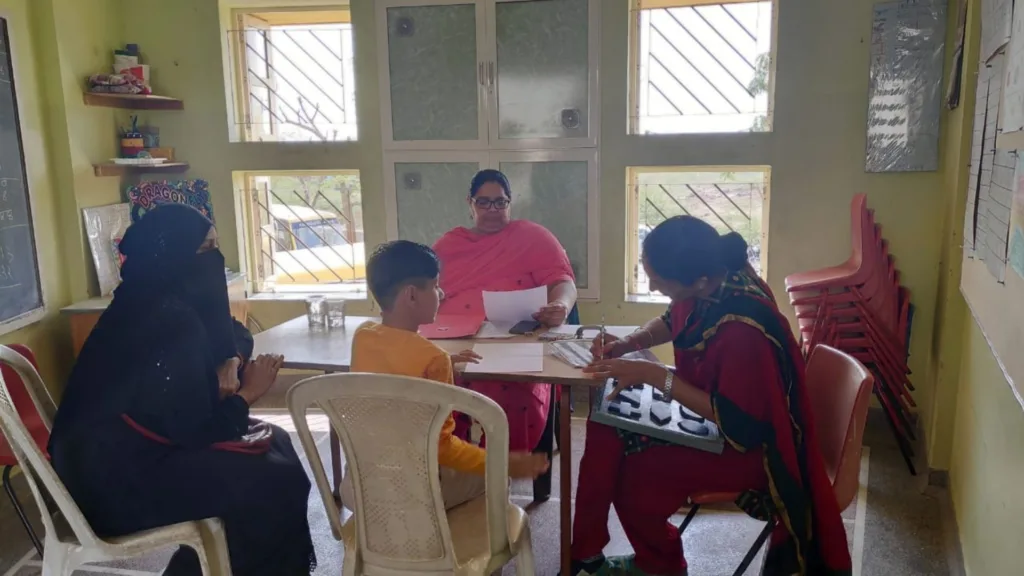
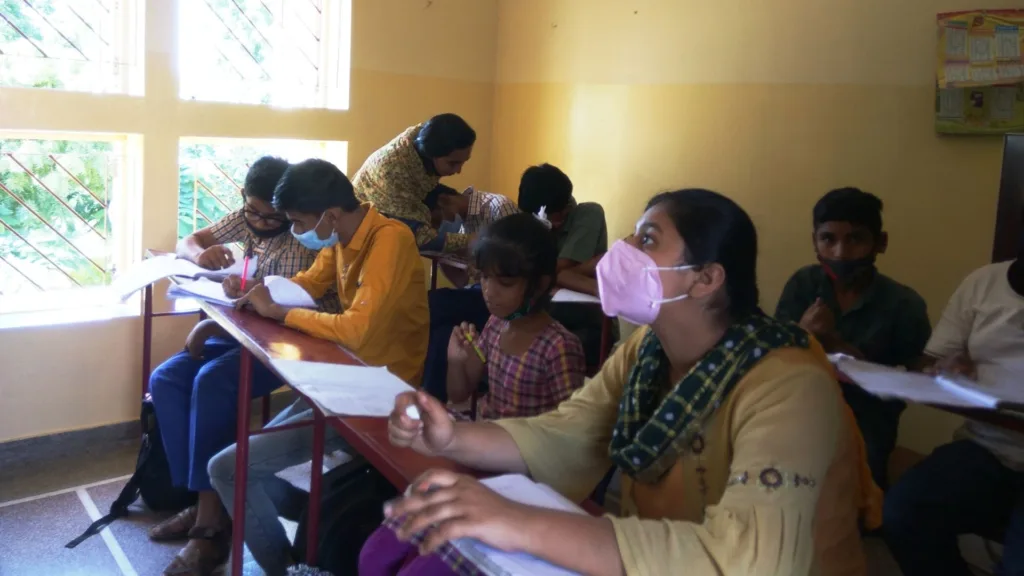
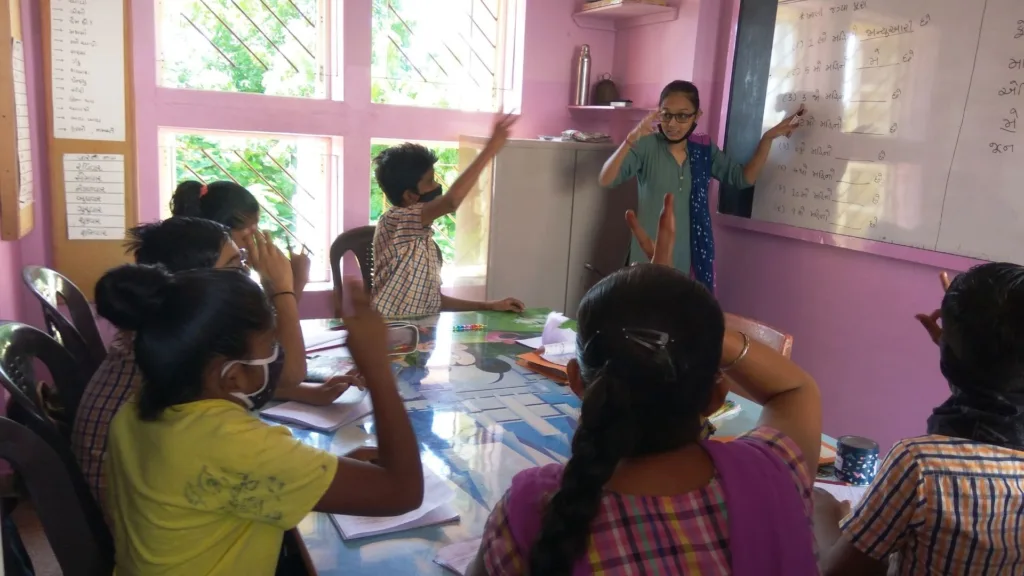
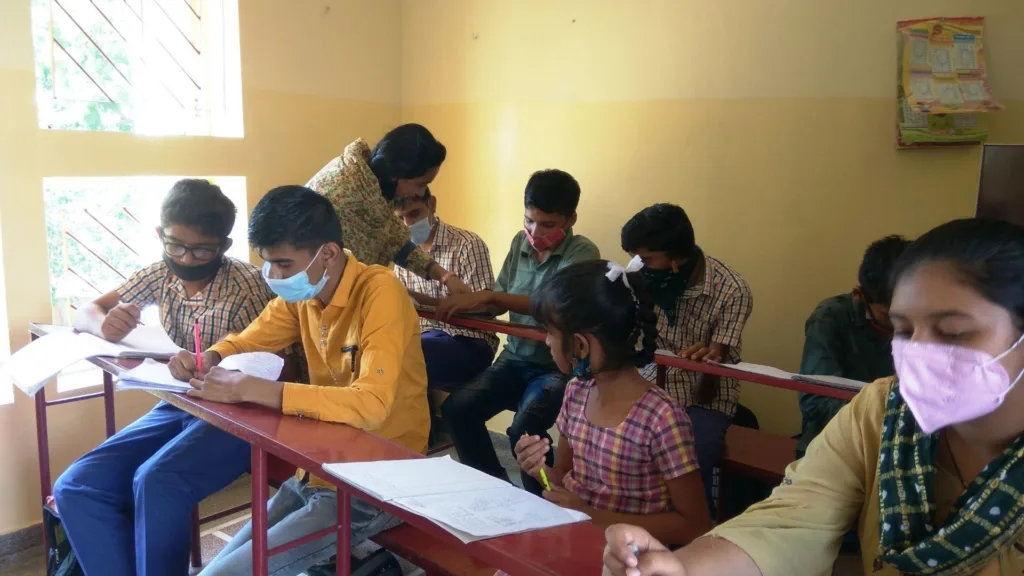


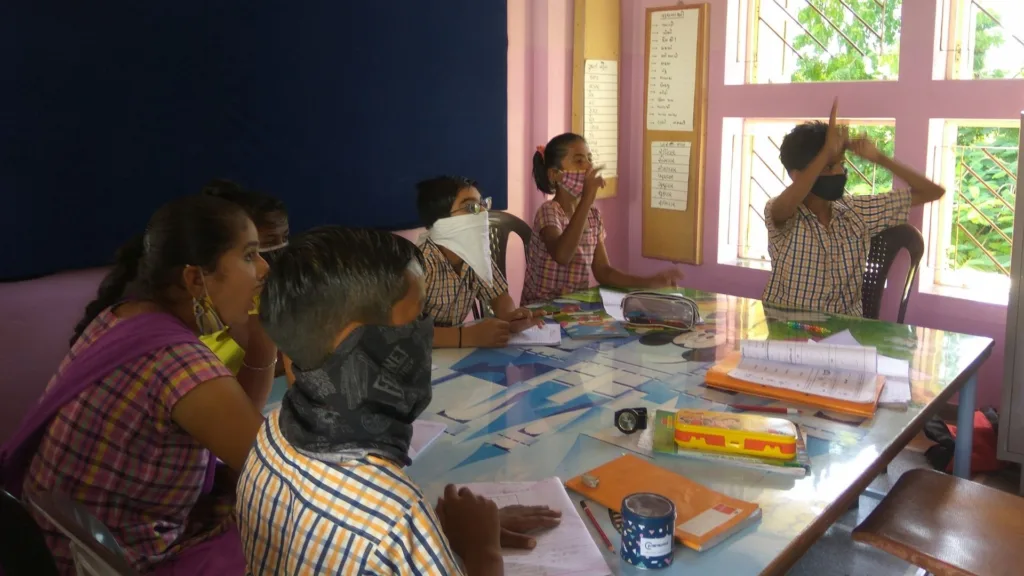


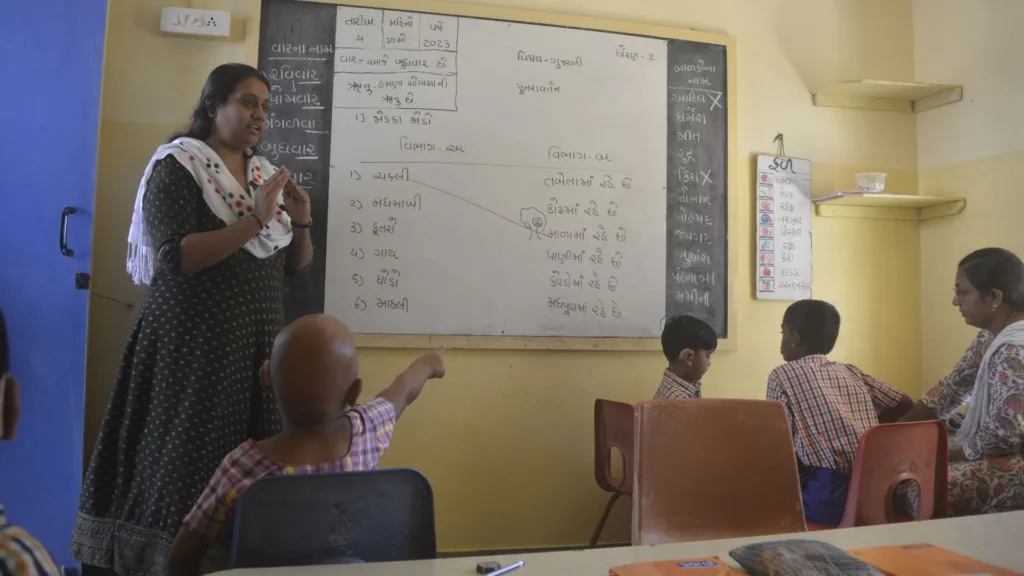
8. Meditation
Children at our school engage in Anapana meditation, an ancient mindfulness meditation technique rooted in Indian tradition. This practice centers on the mindful observation of the breath as it enters and exits the body.
Our students are guided in learning this technique through a task analysis approach. This structured method begins with building their capacity to sit comfortably, progressing to the gentle closing of their eyes, and gradually shifting their focus to feeling the breath against their fingers before advancing to the observation of the breath itself.
The benefits of Anapana meditation for children are substantial. It has been observed to reduce hyperactivity and aggression while enhancing their attention and concentration. This practice plays a crucial role in promoting a sense of calm and well-being among our students.
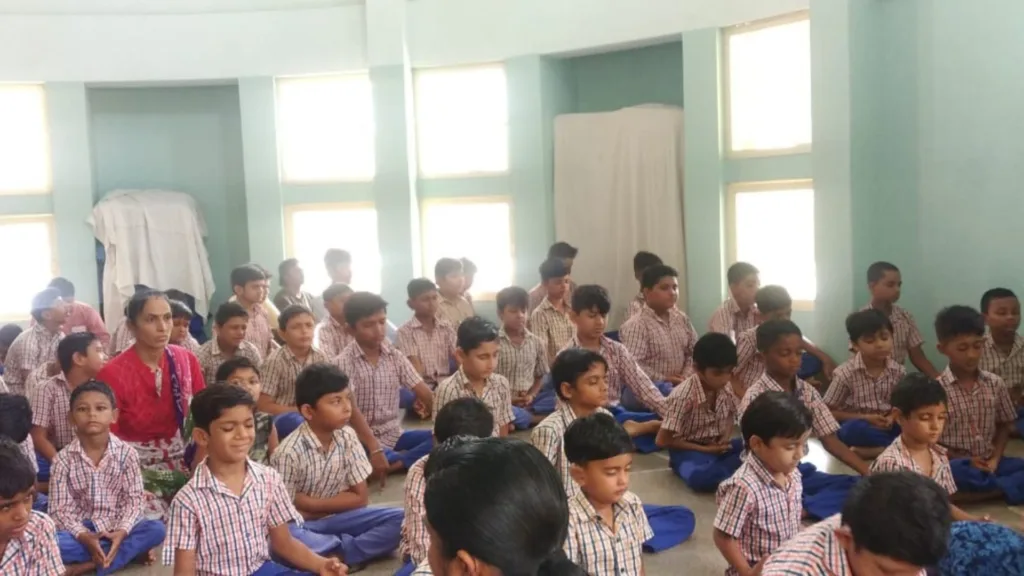
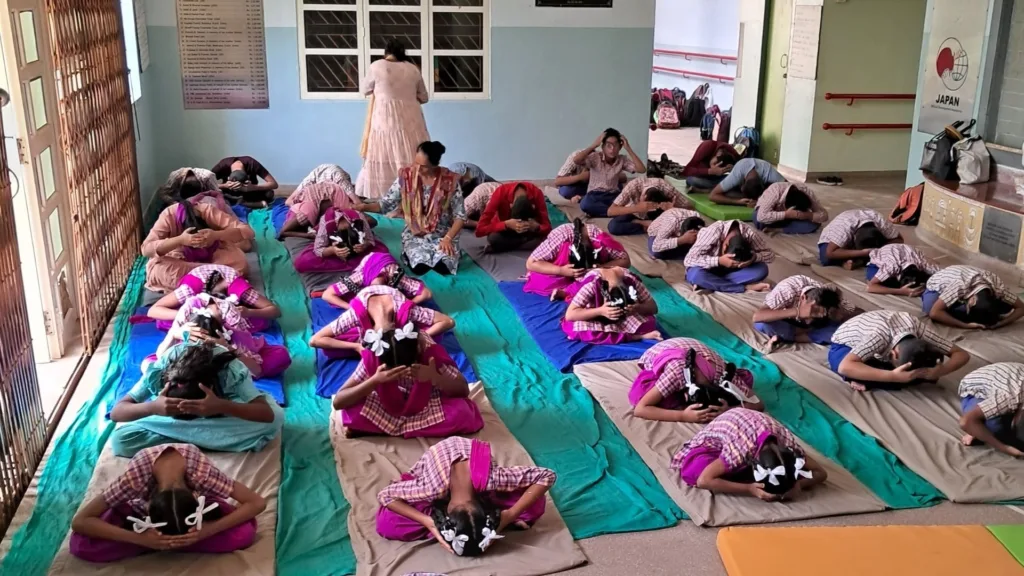
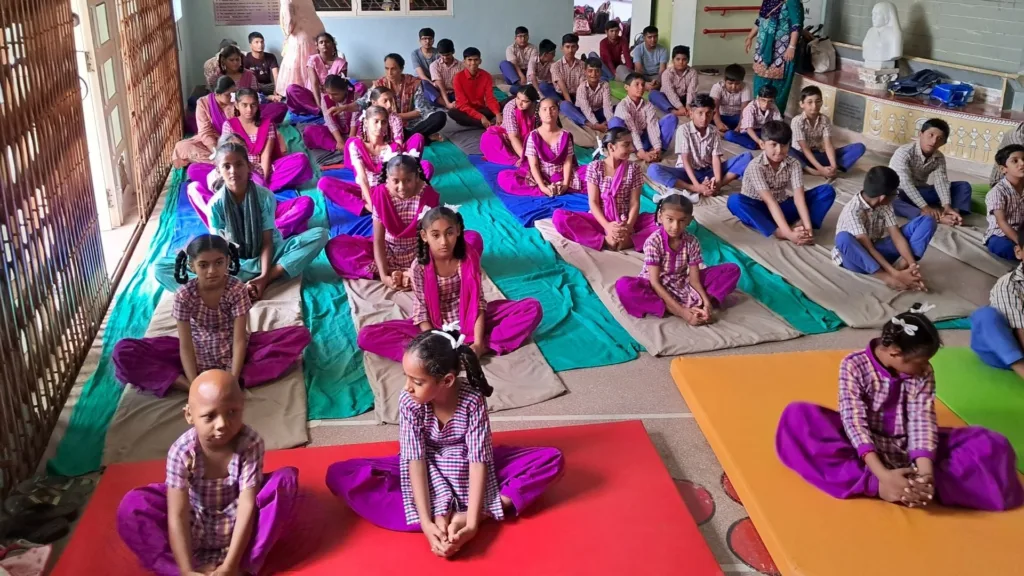

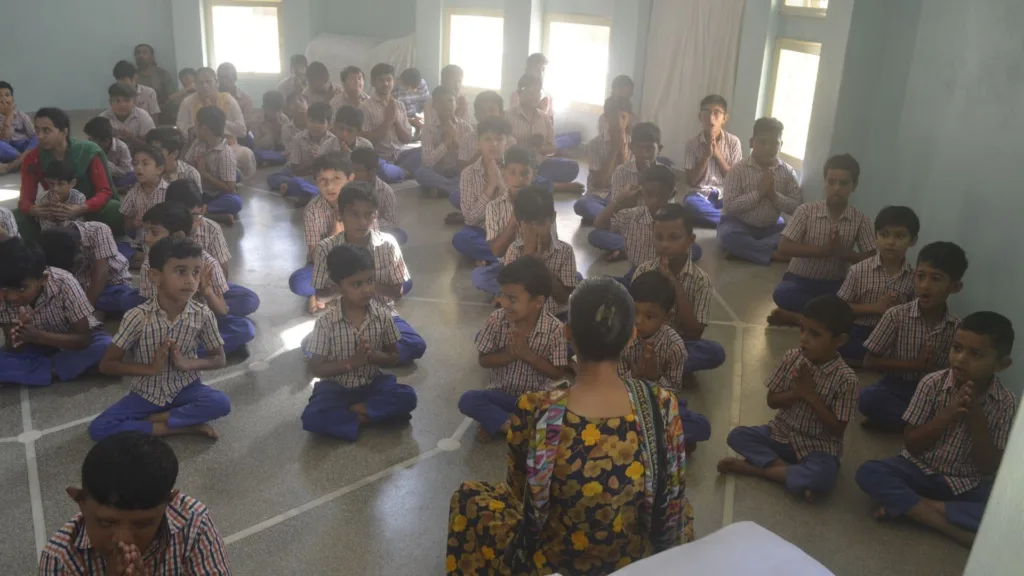

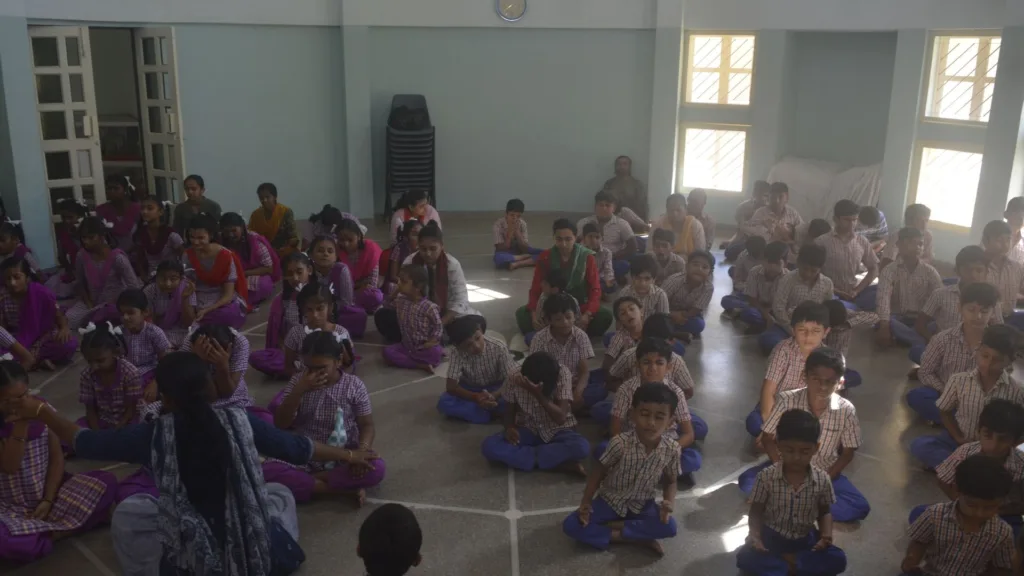

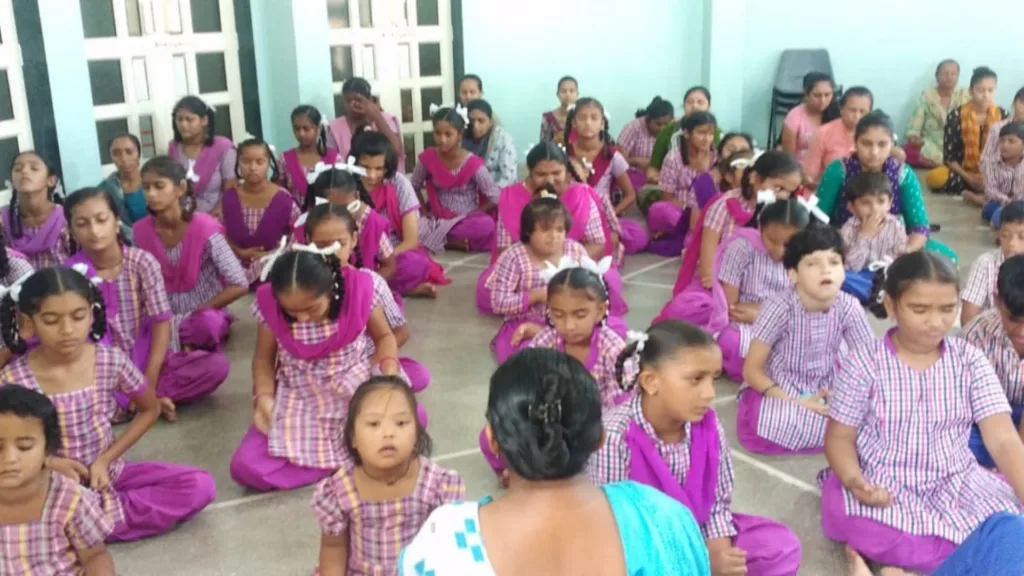
We Made a Difference












































Events at Dhanvantri School
In order to foster social integration and adaptability, Dhanvantri School organizes regular events for the children for different occasions. Some of the events are:
- Annual Day Programs such as ‘Aavishkar’
- Annual Festivals such as Raksha Bandhan, Independence Day, Diwali, Navratri, etc
- Competitions – Drawing Competition, Rangoli
Competition, National Level Karate and Championship - Educational Field Visits – Supermarket,
Temple, Museum, Lake, Aina Mahal - Workshop and Training for Teachers
- Training for Parents such as Sign Language courses








